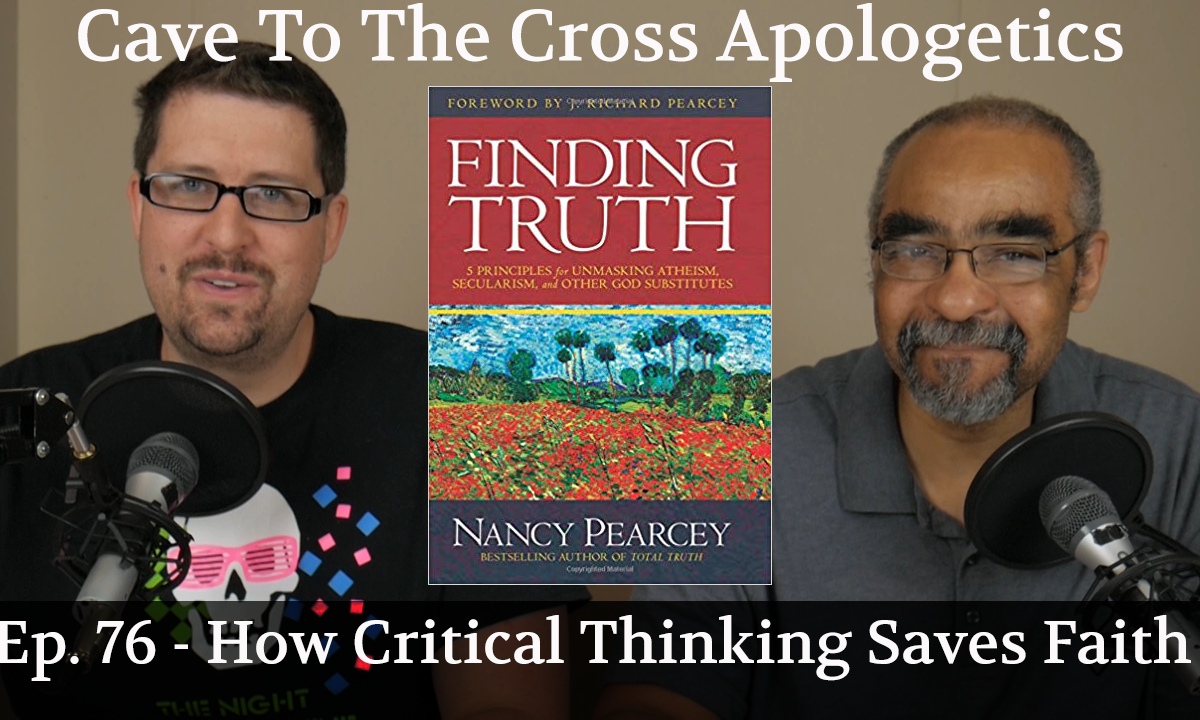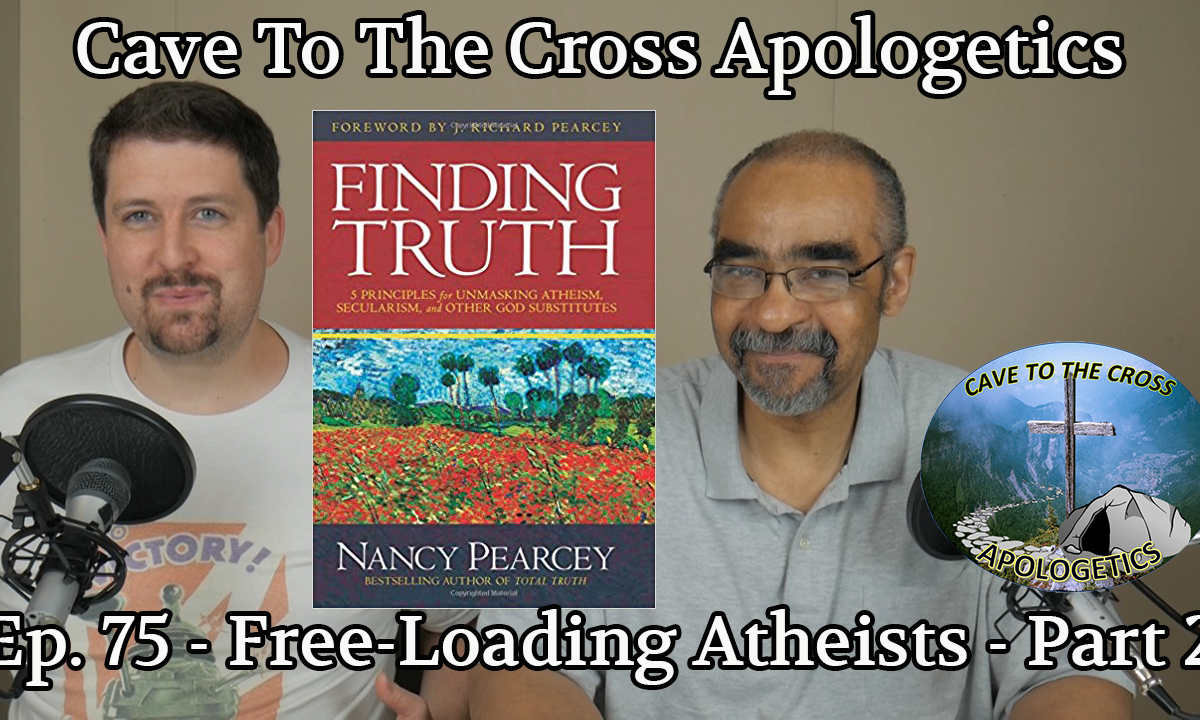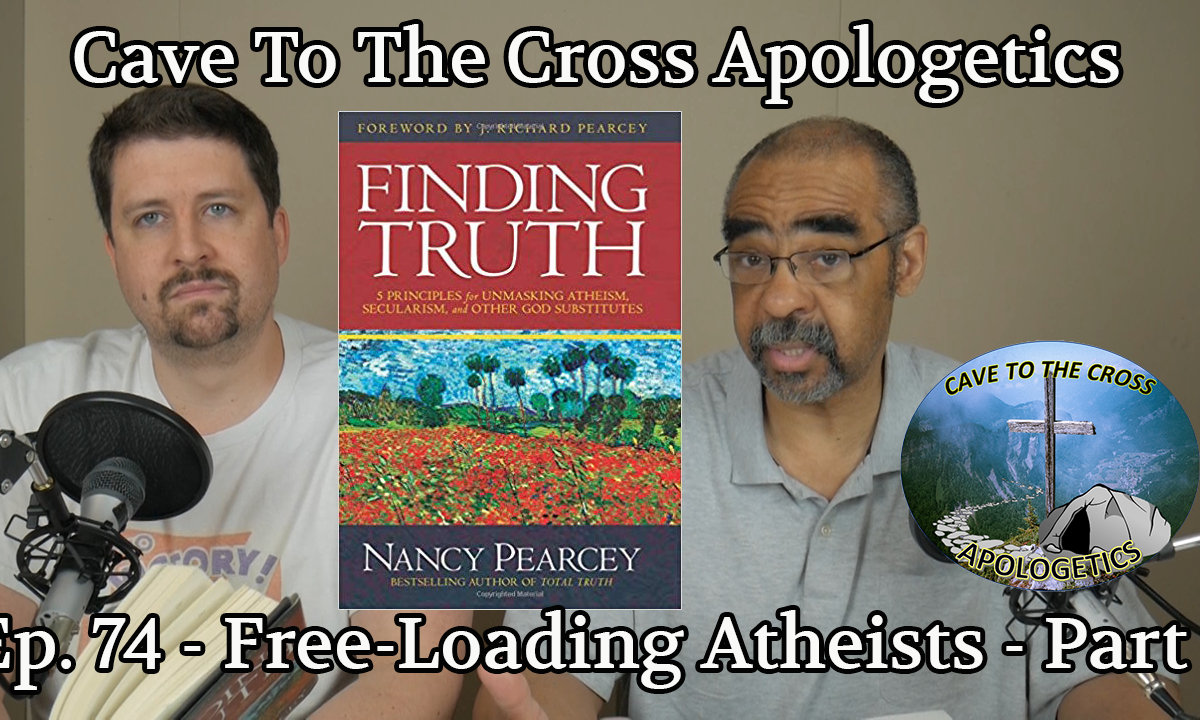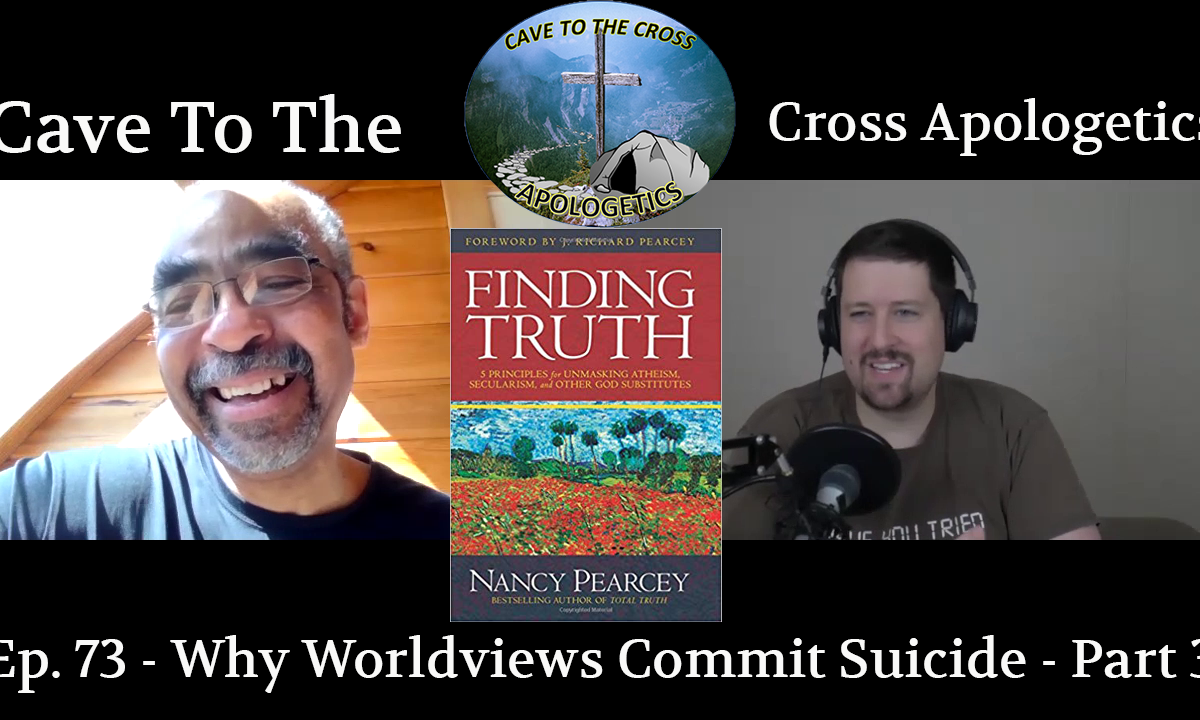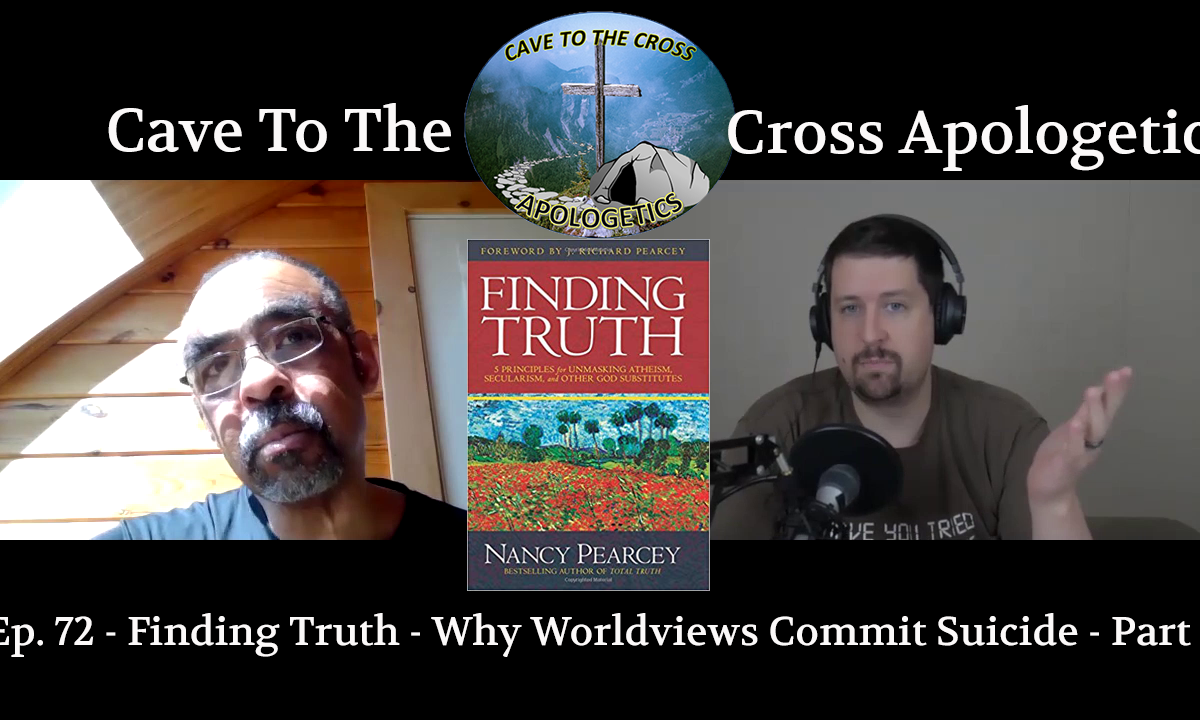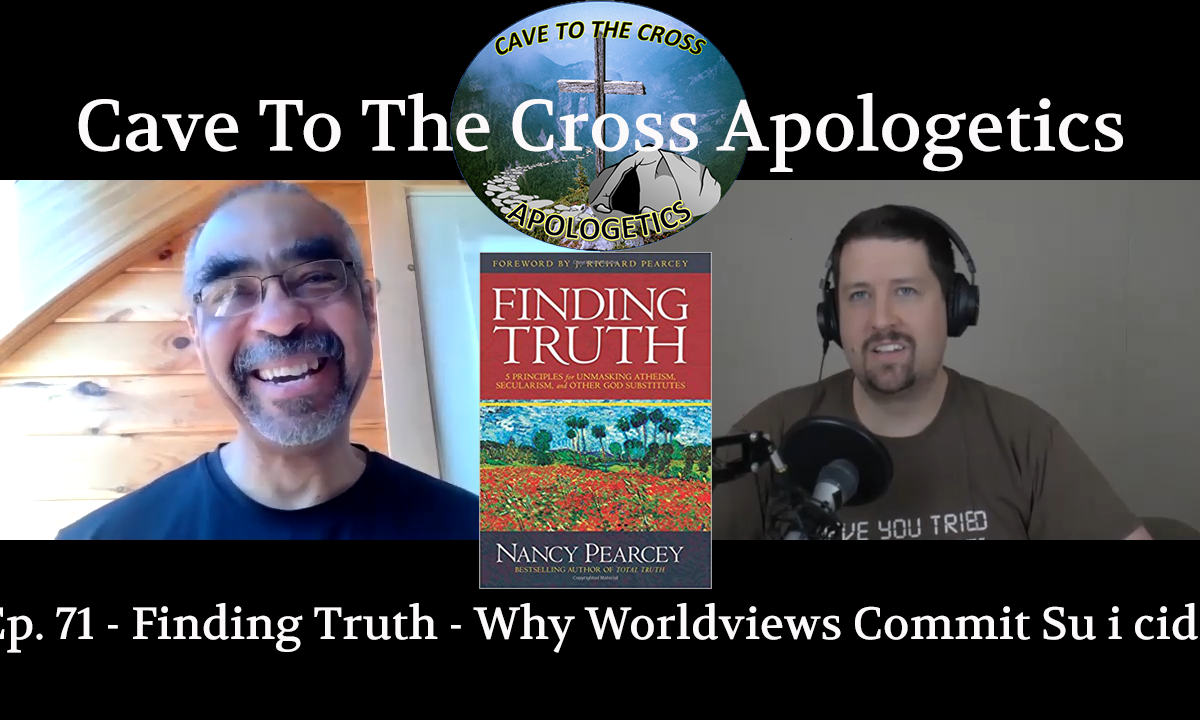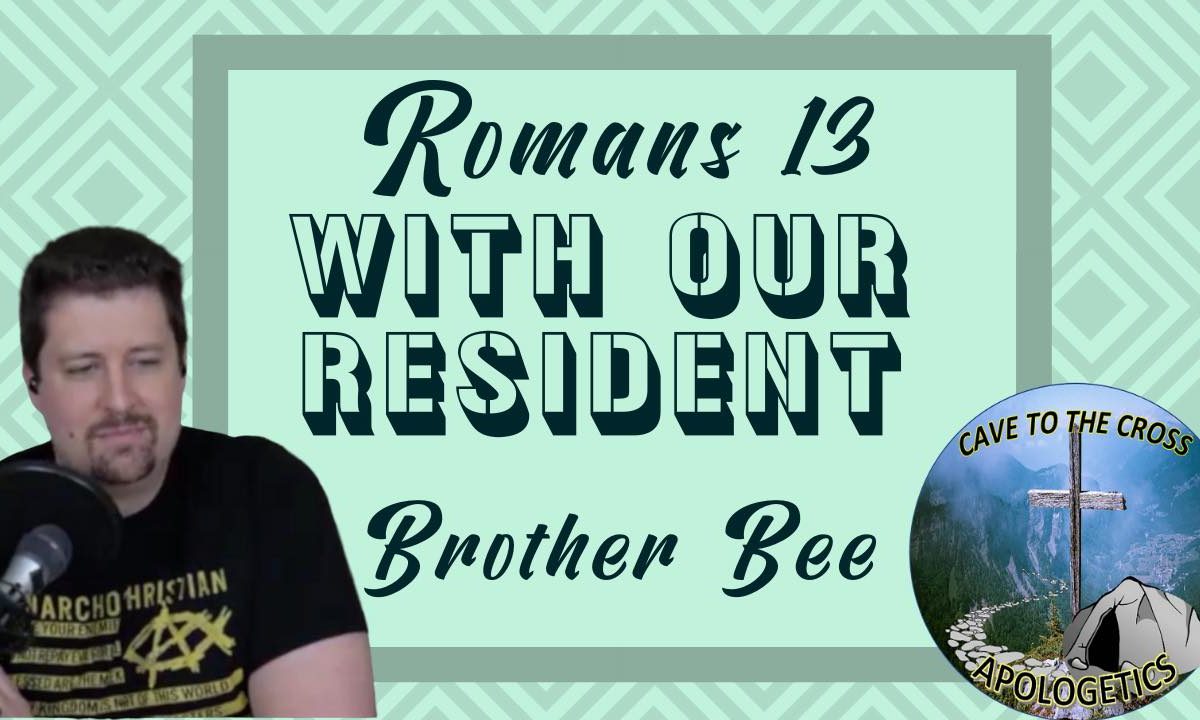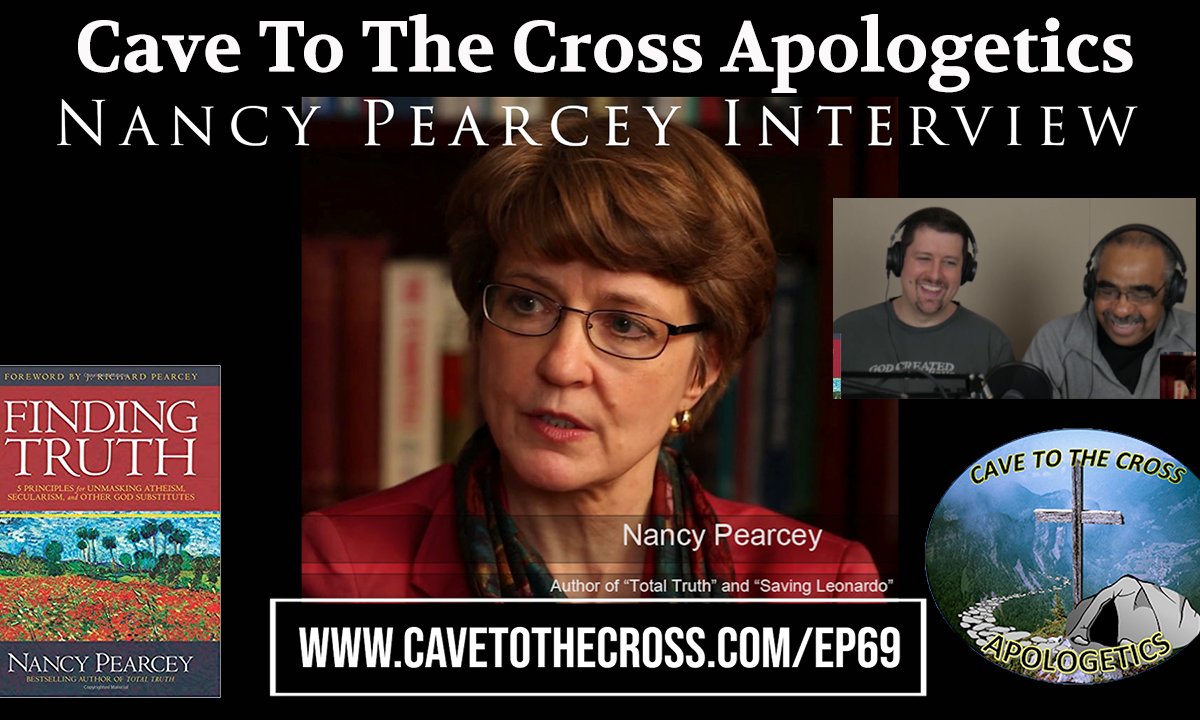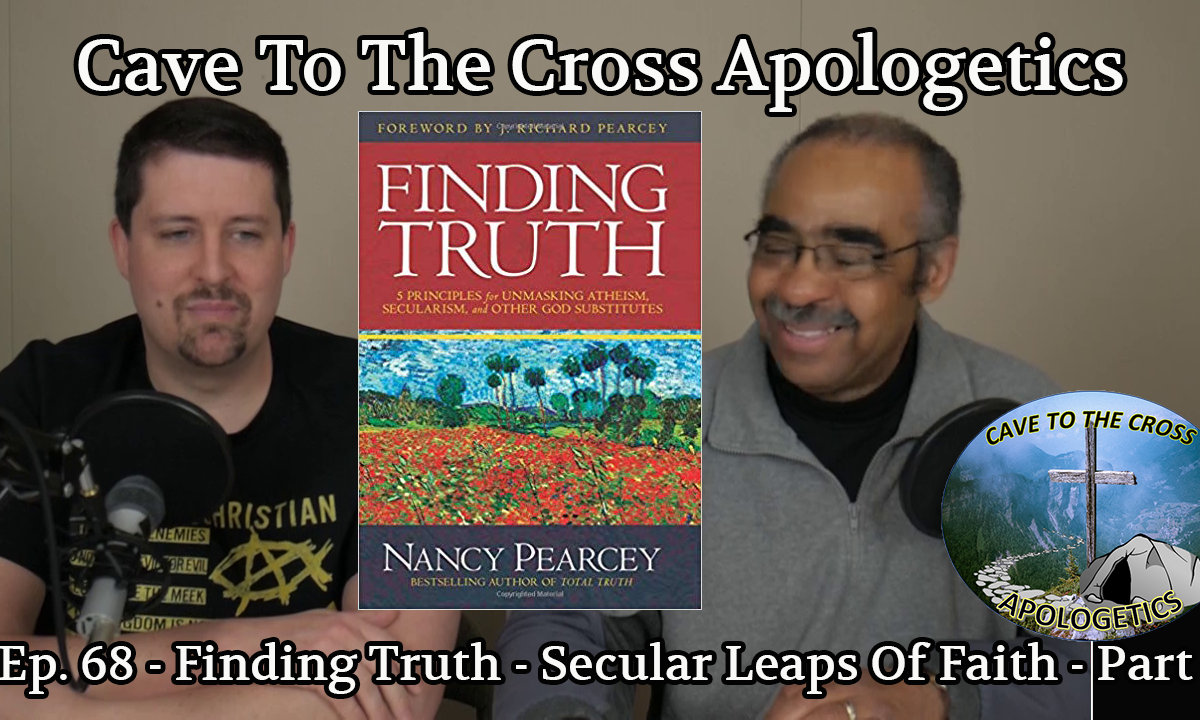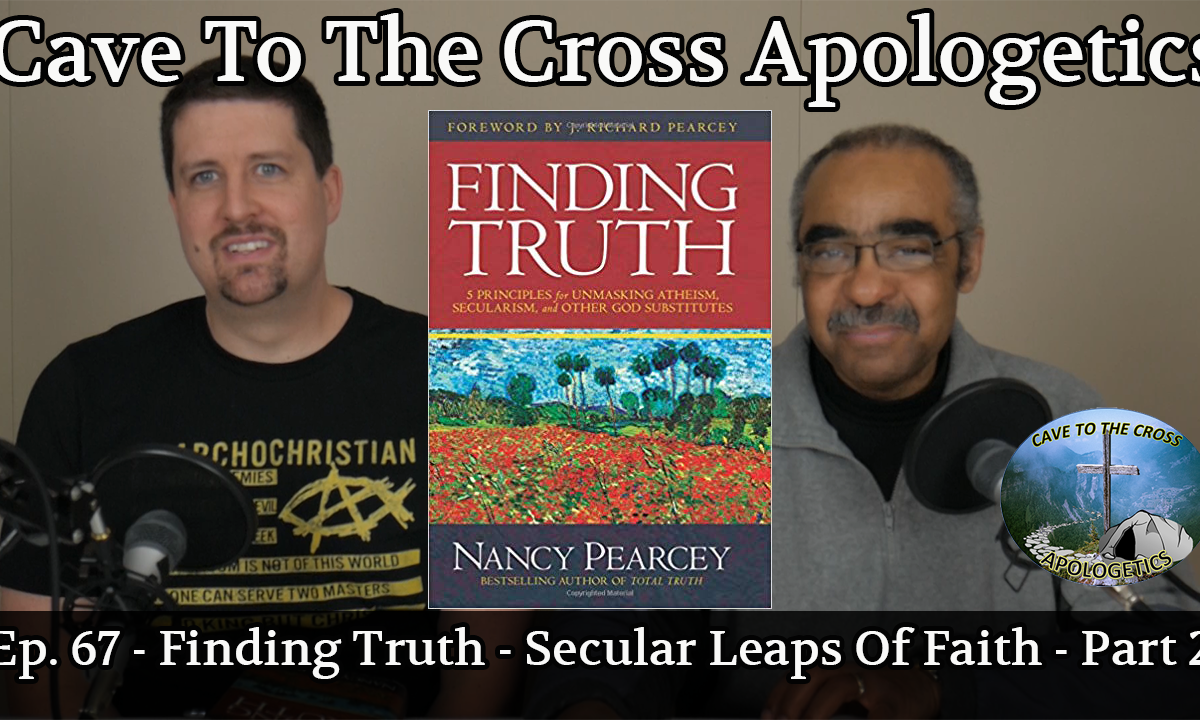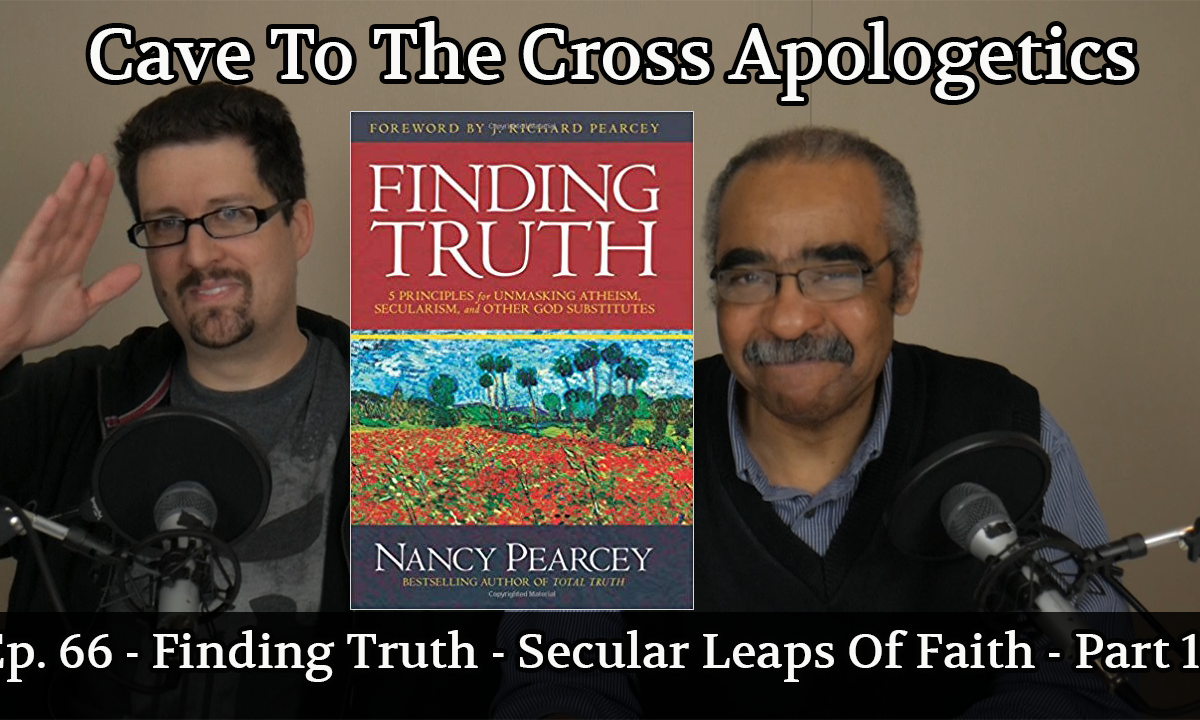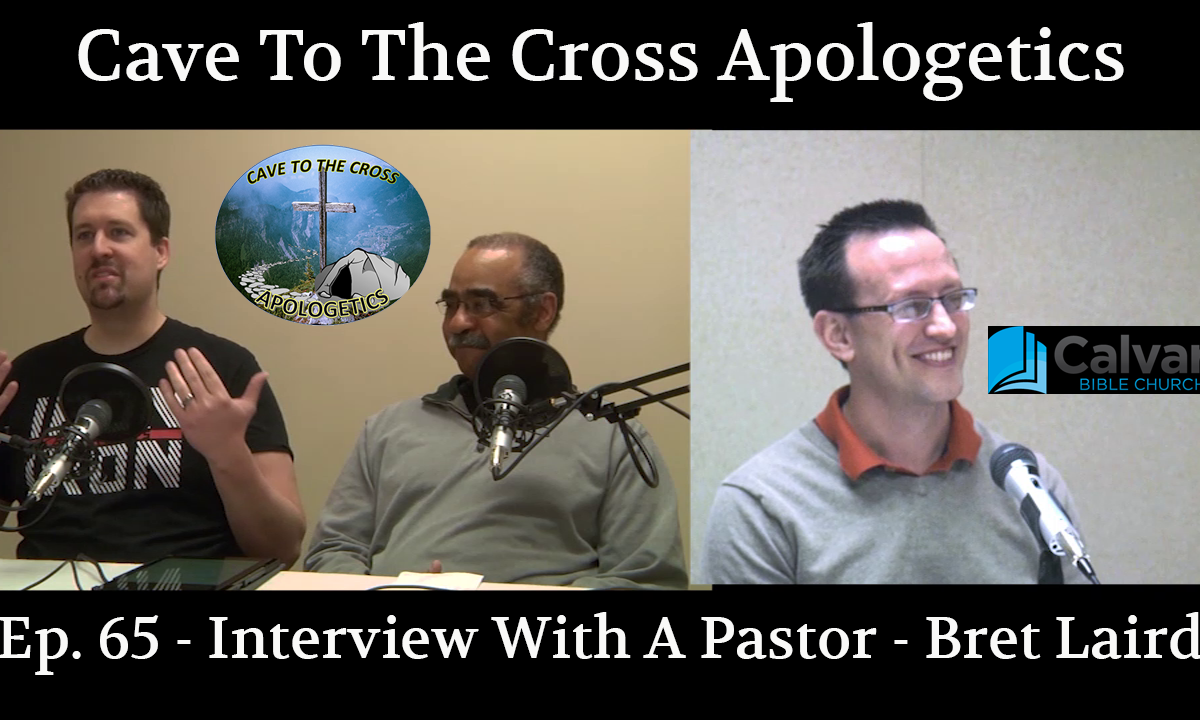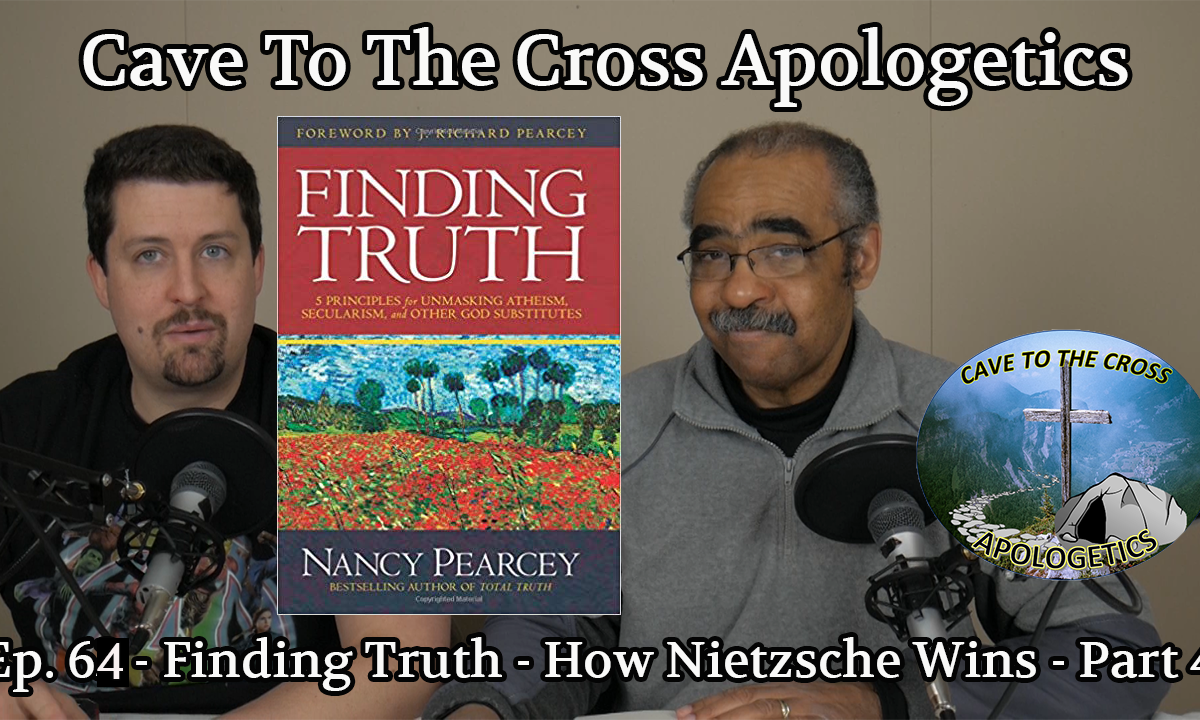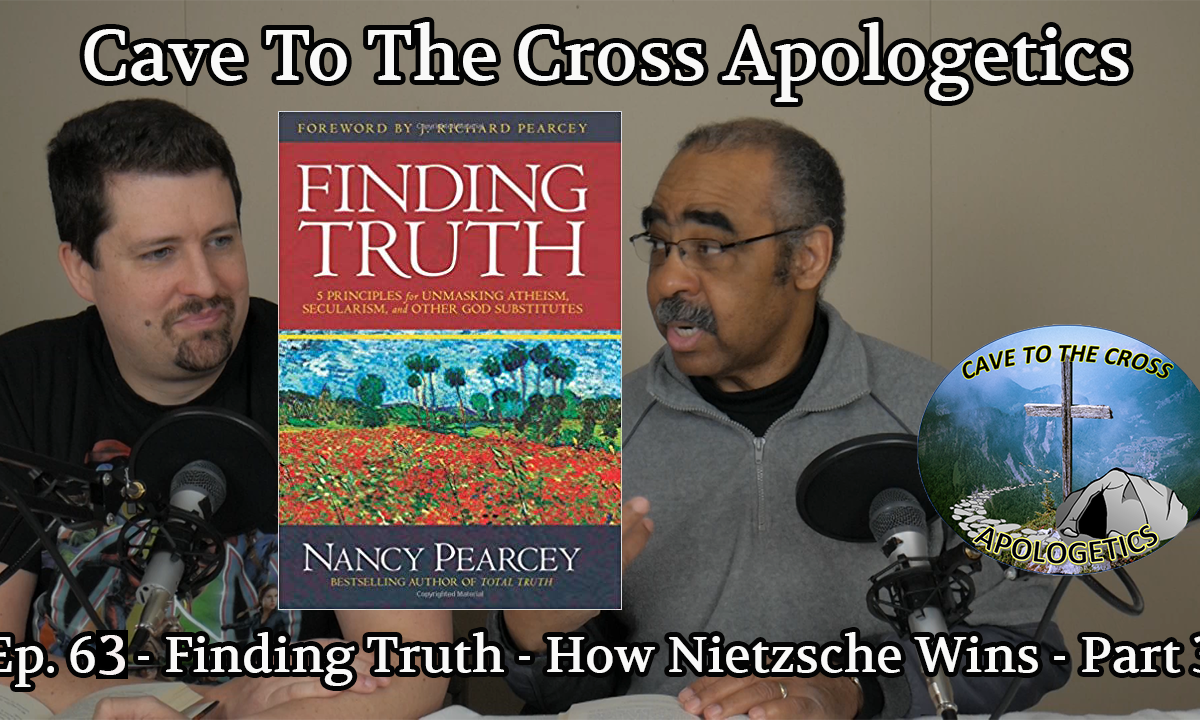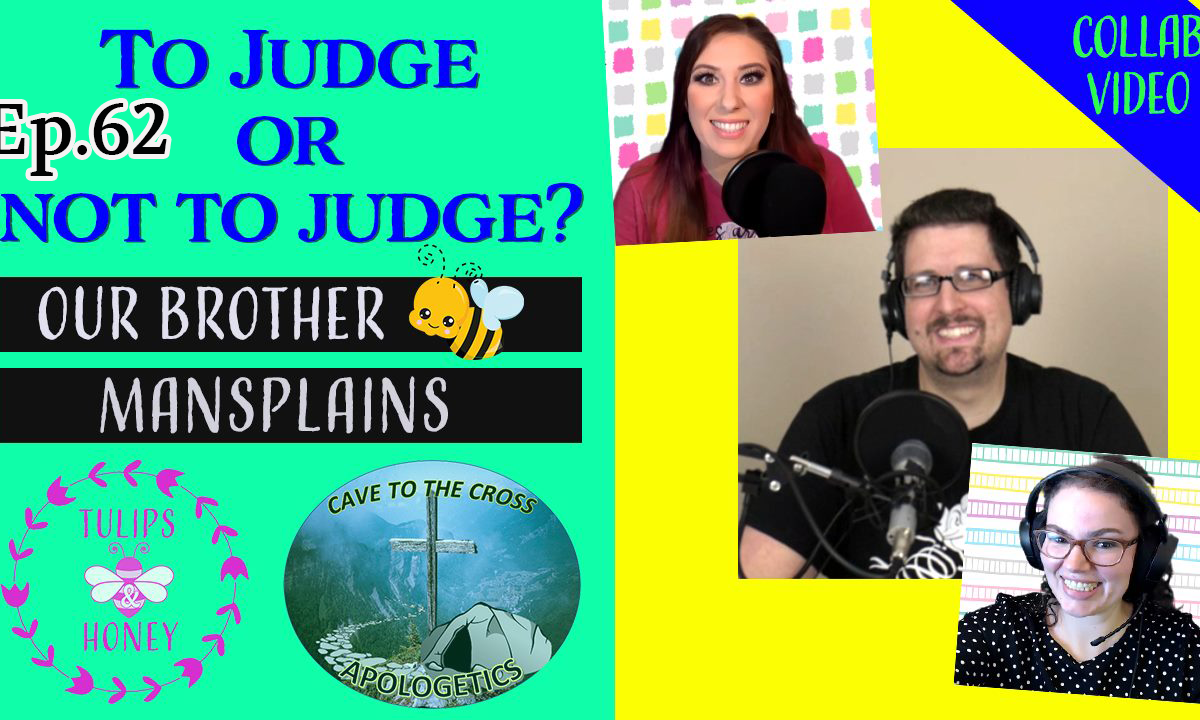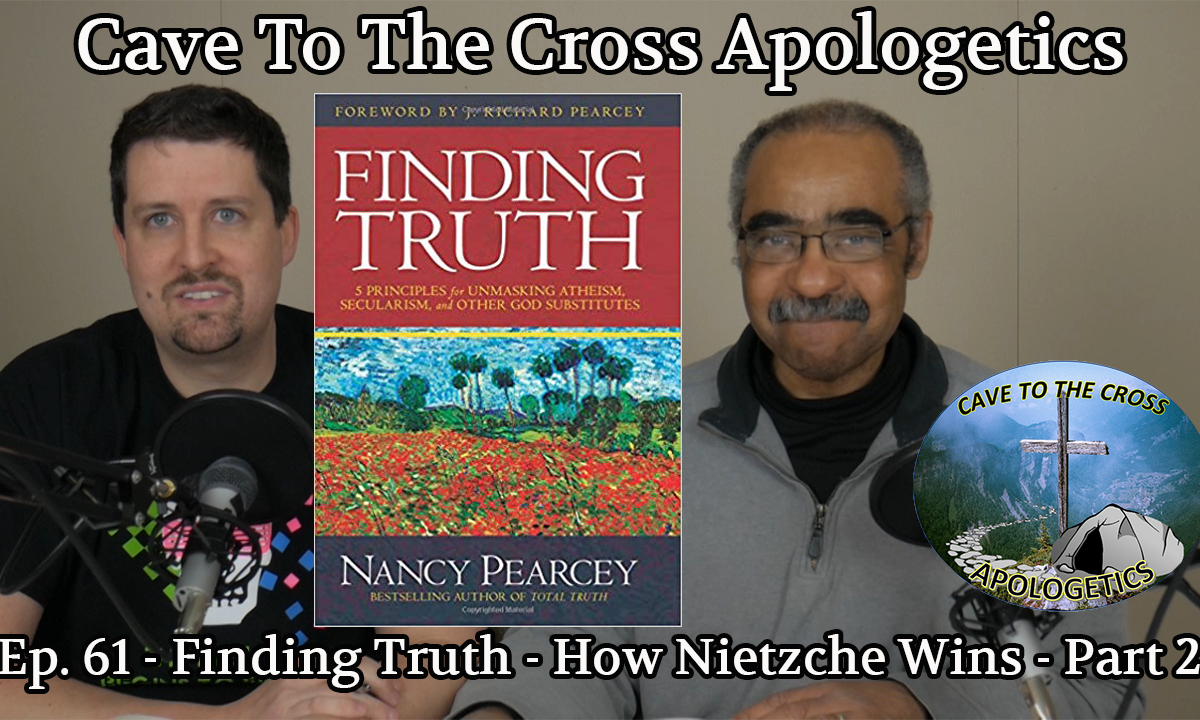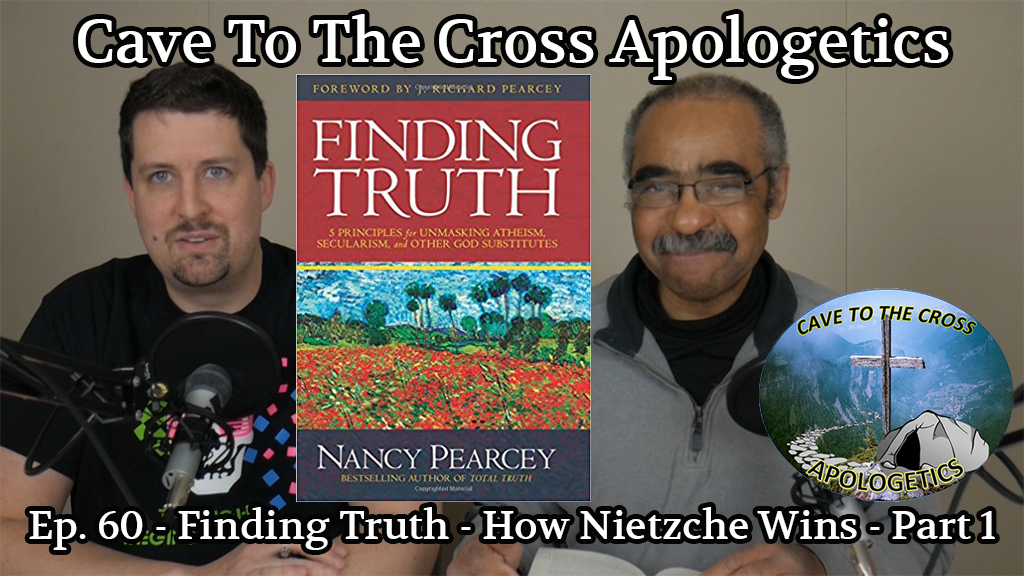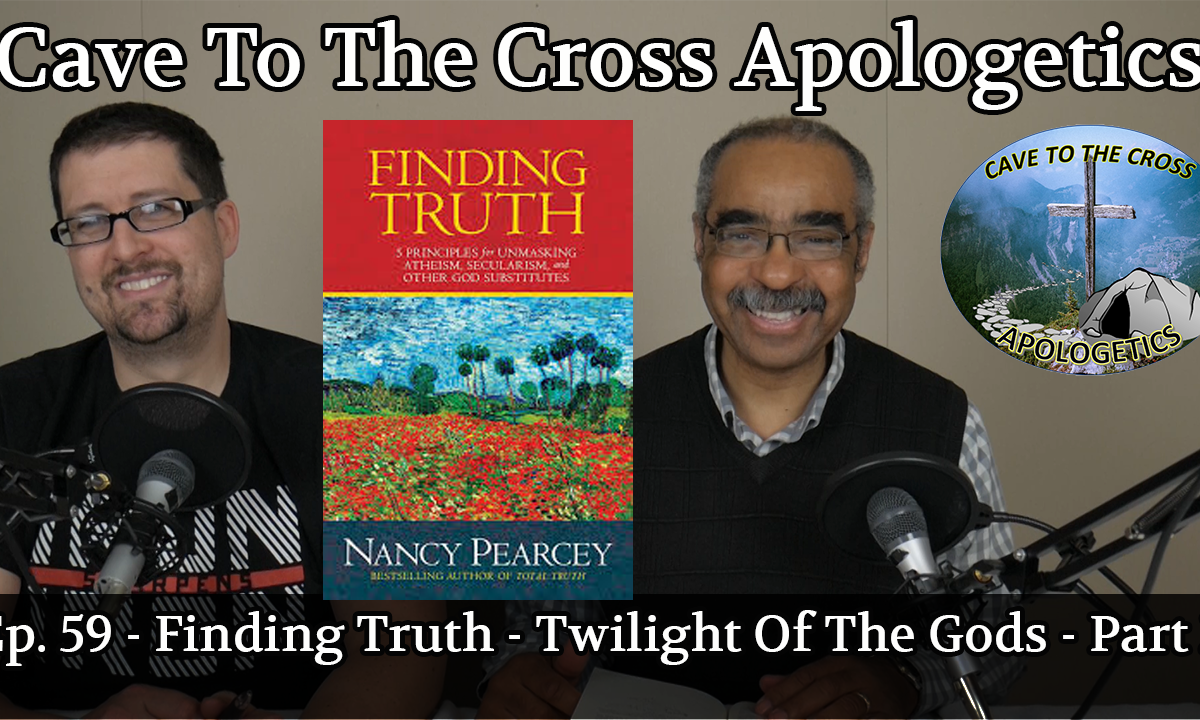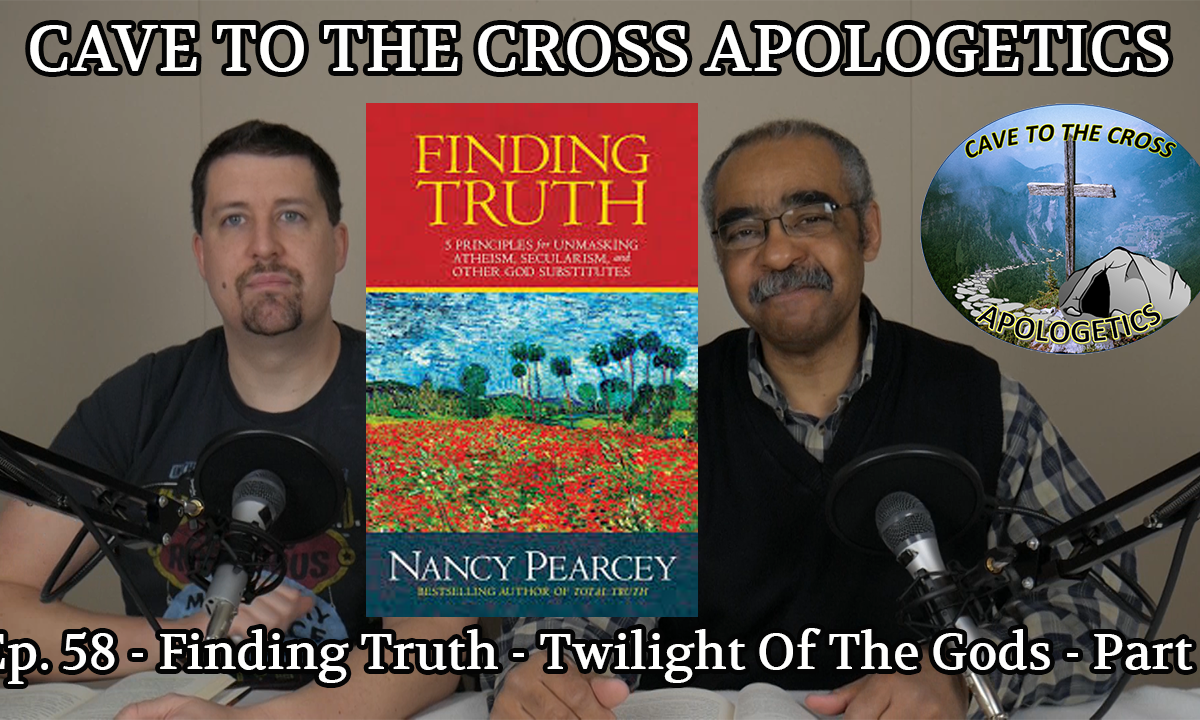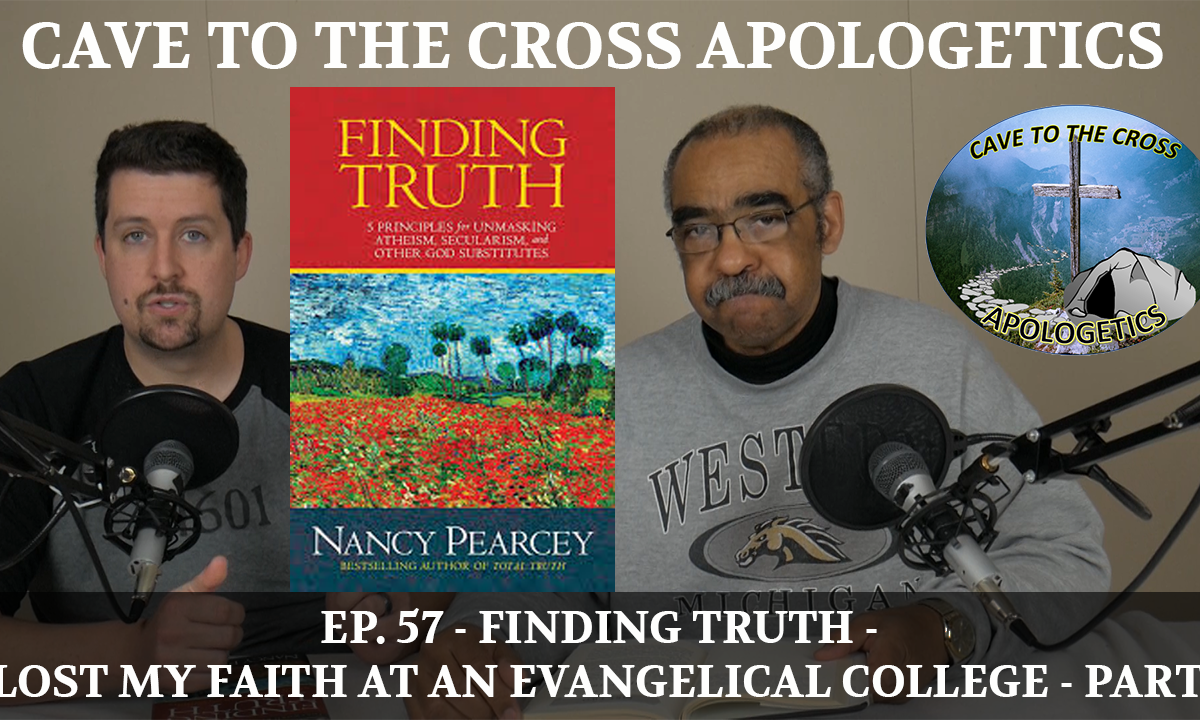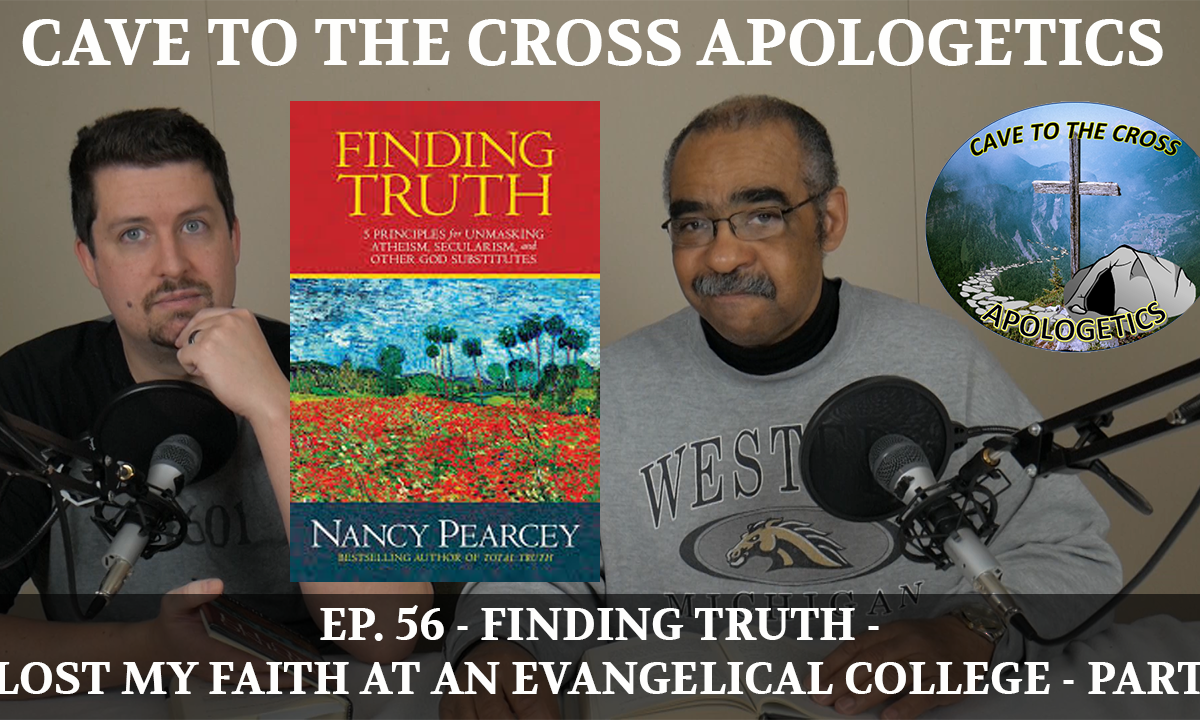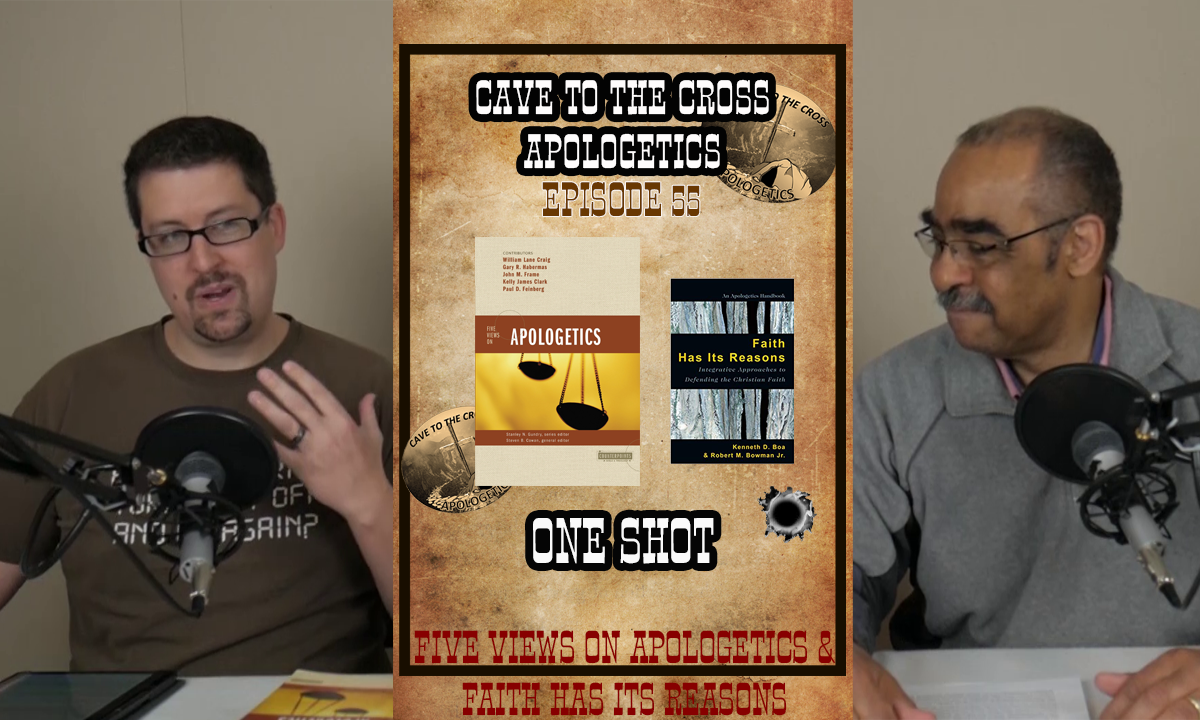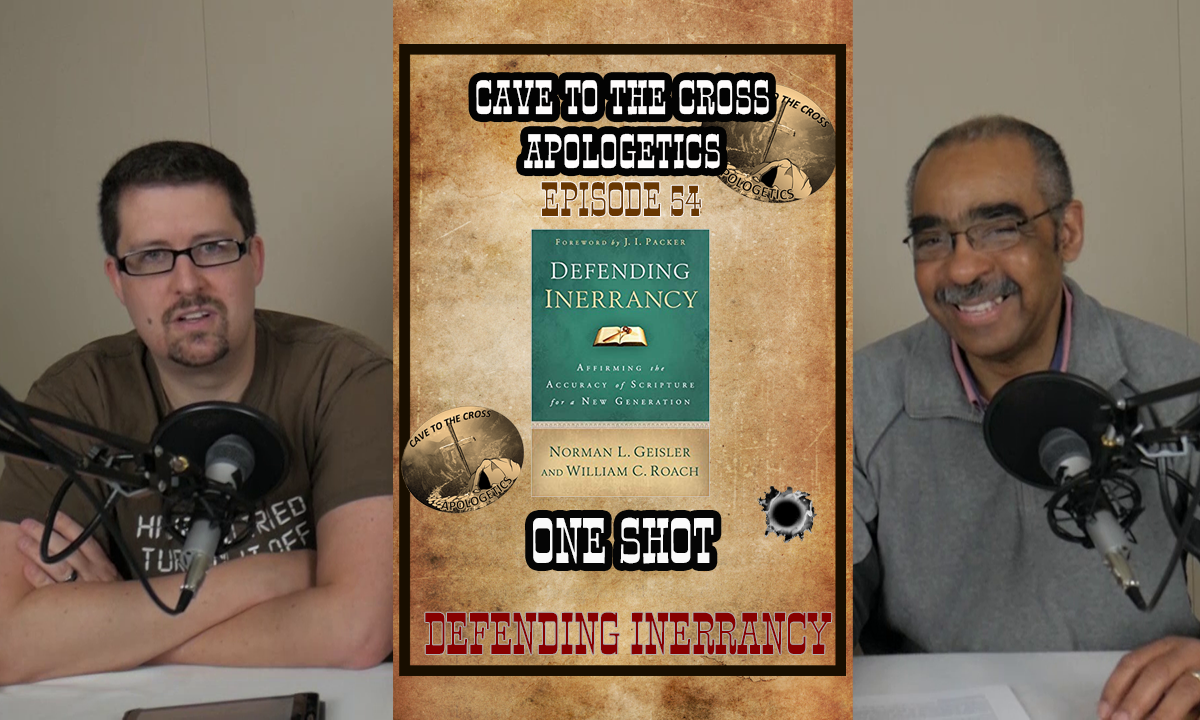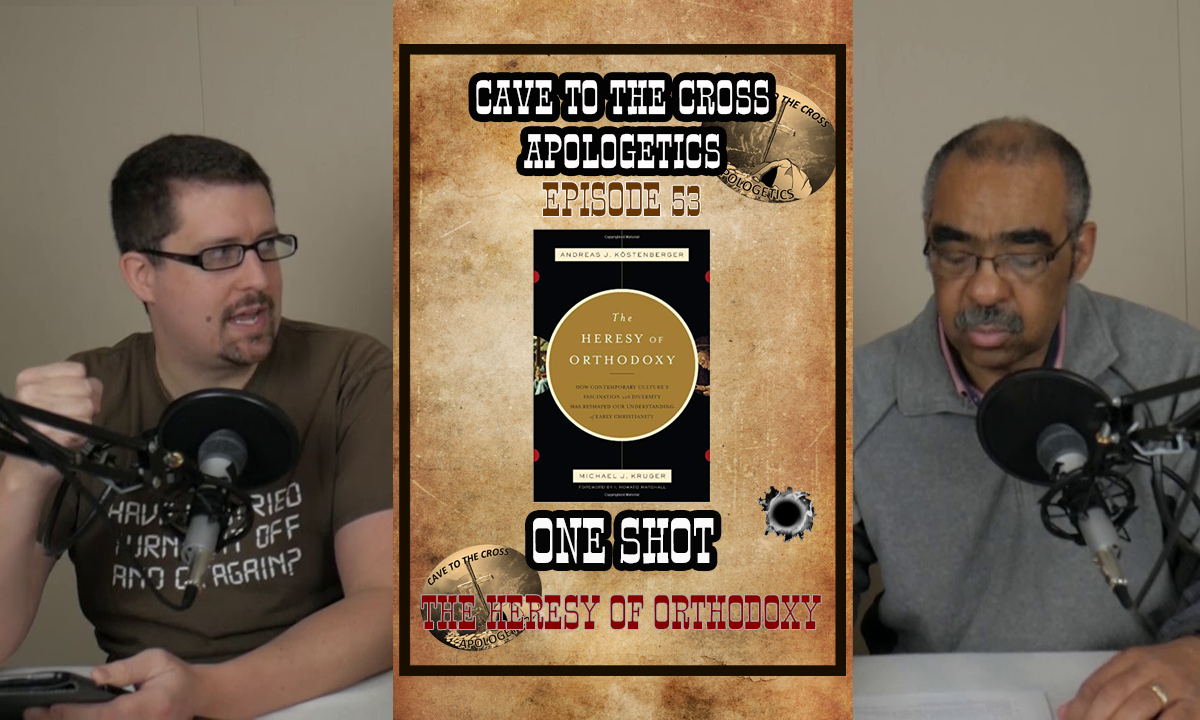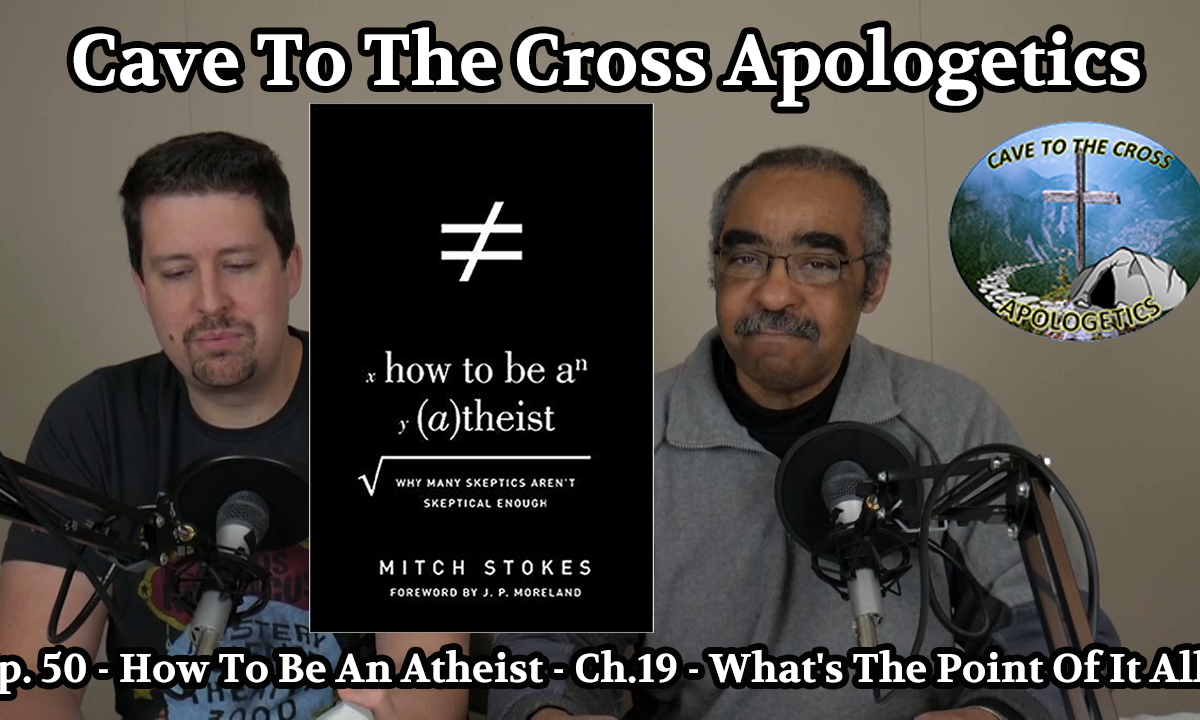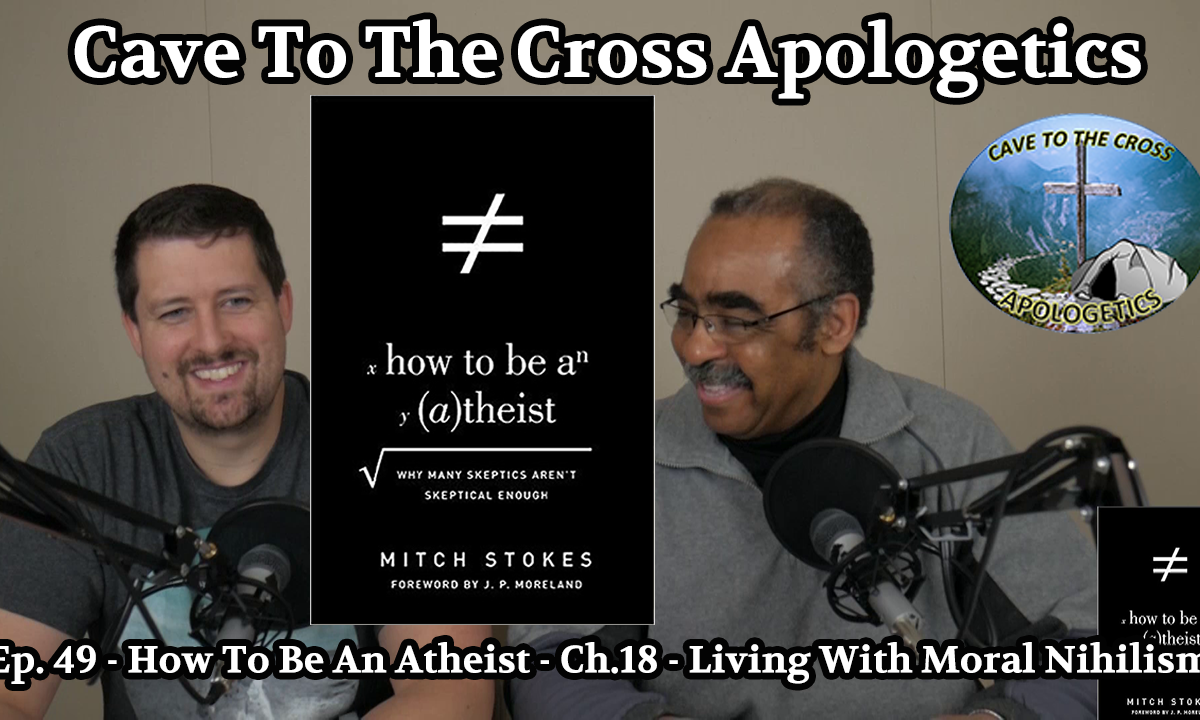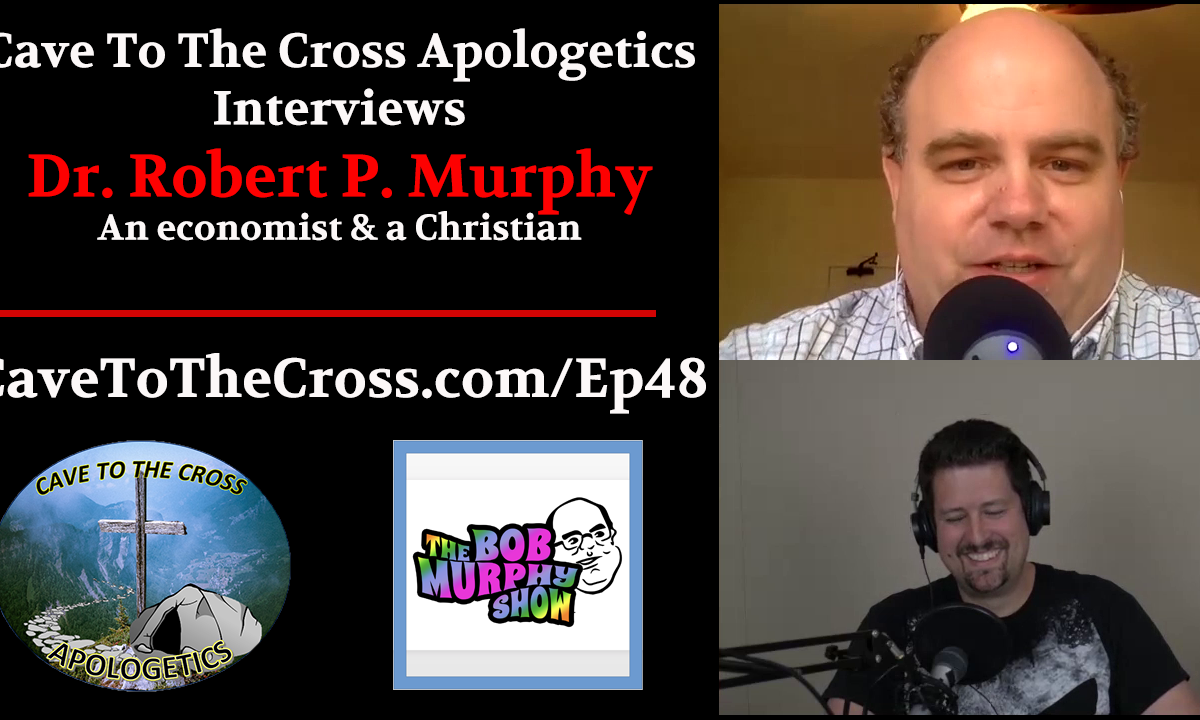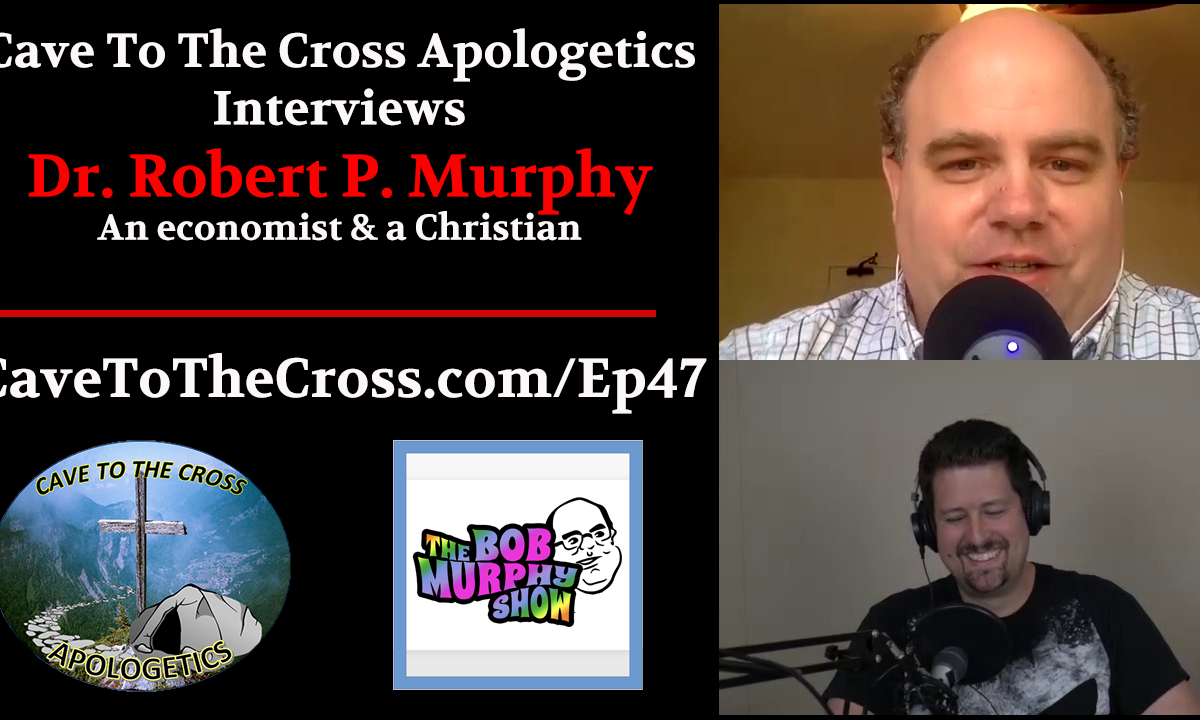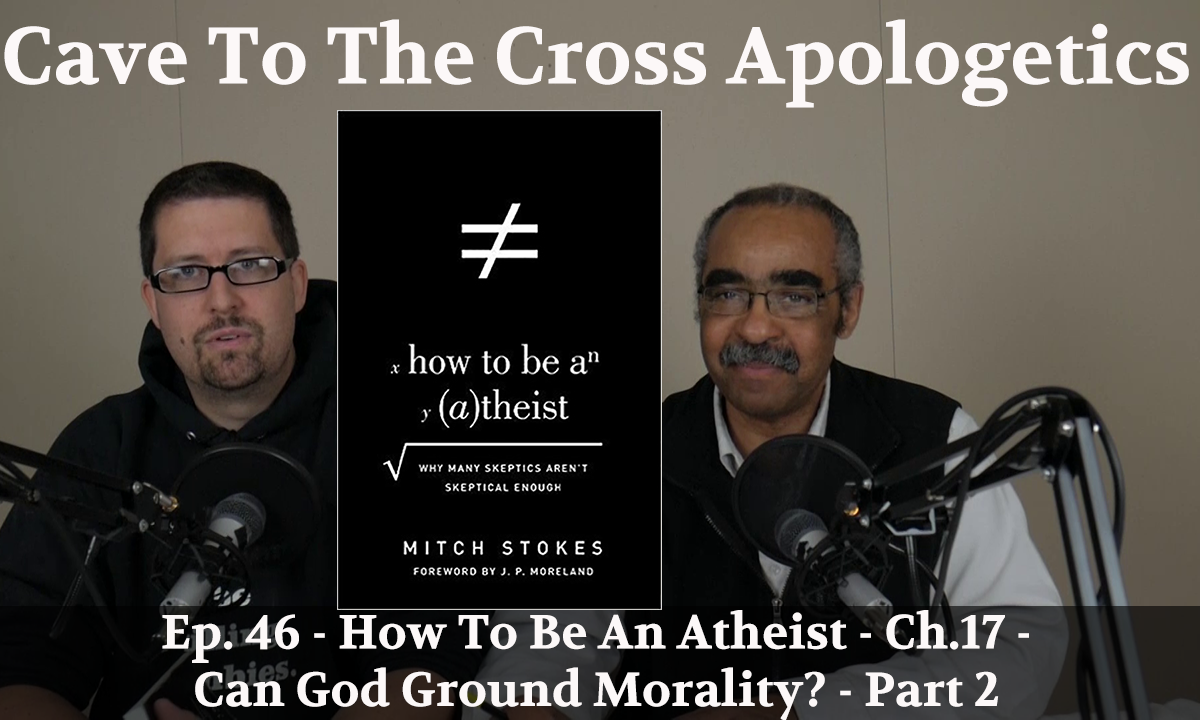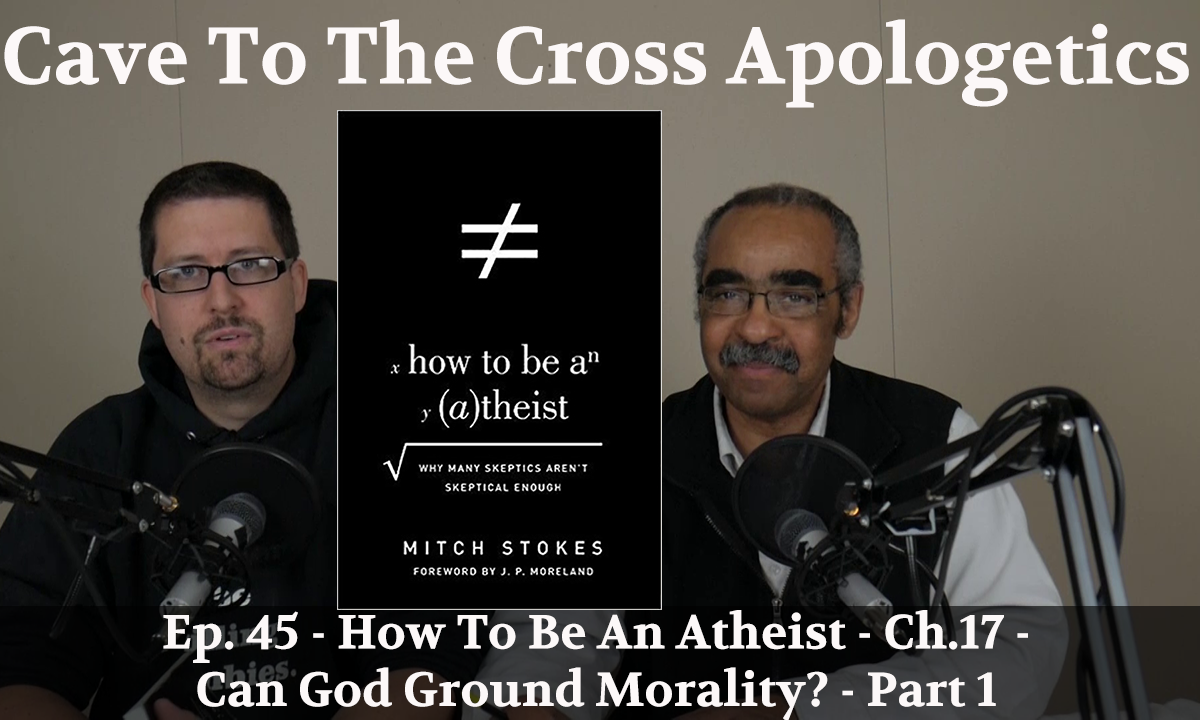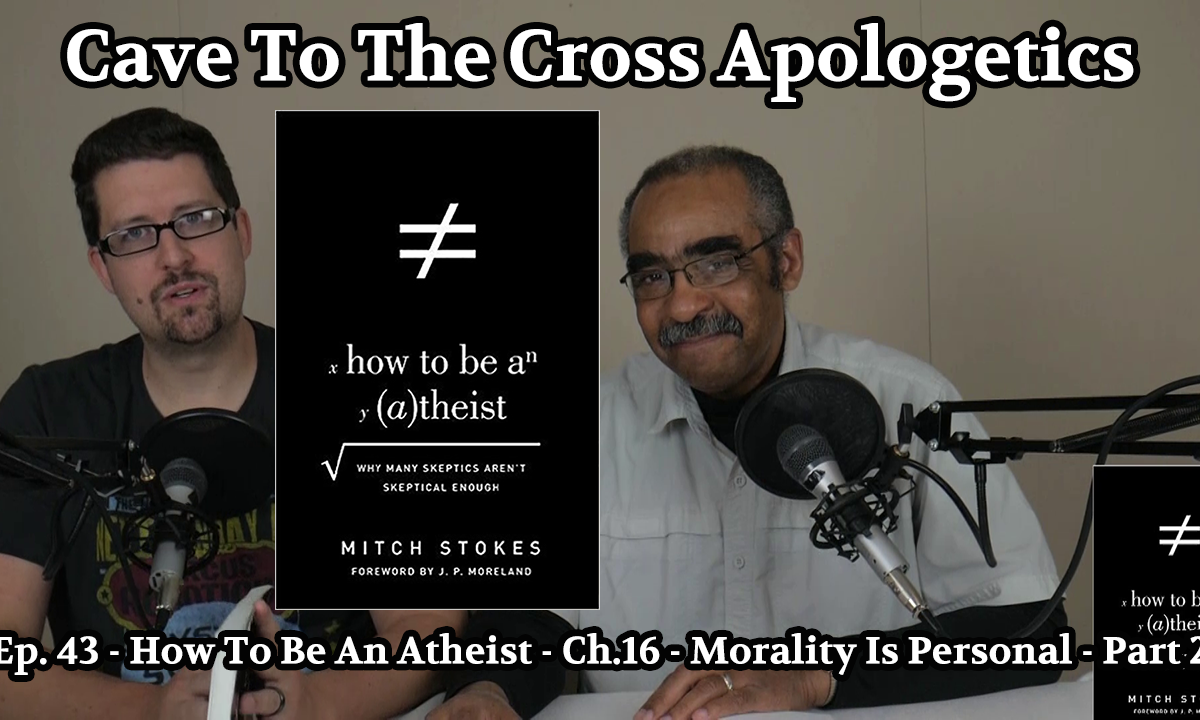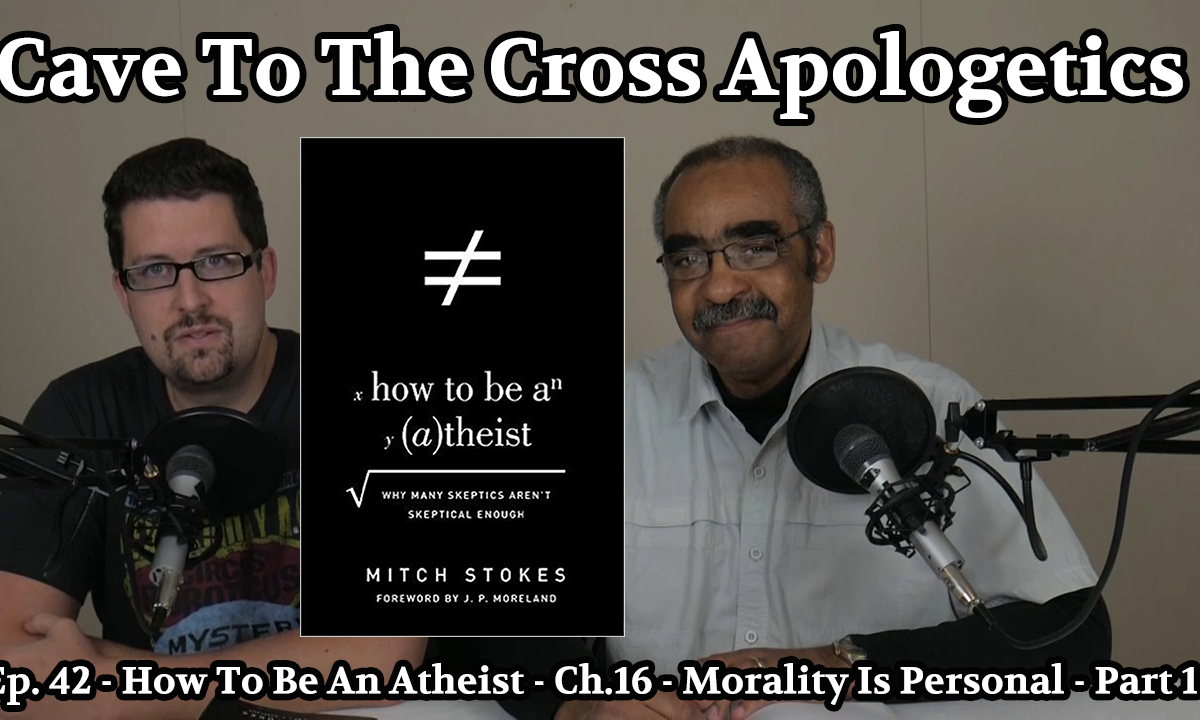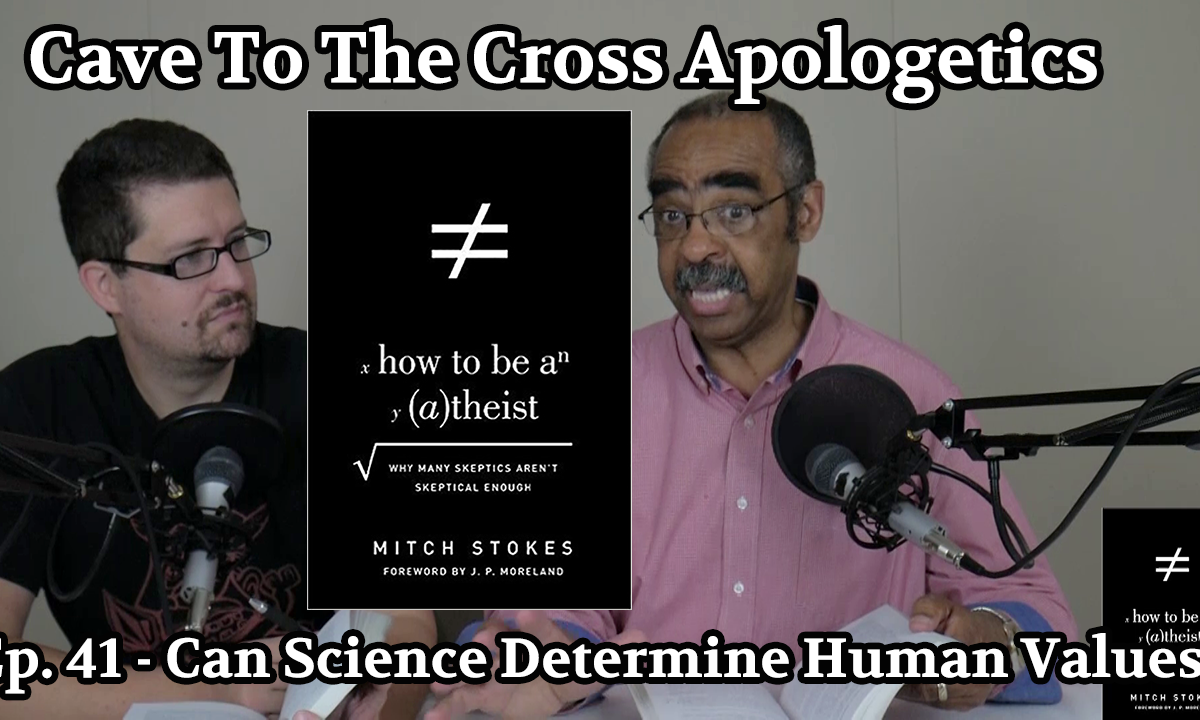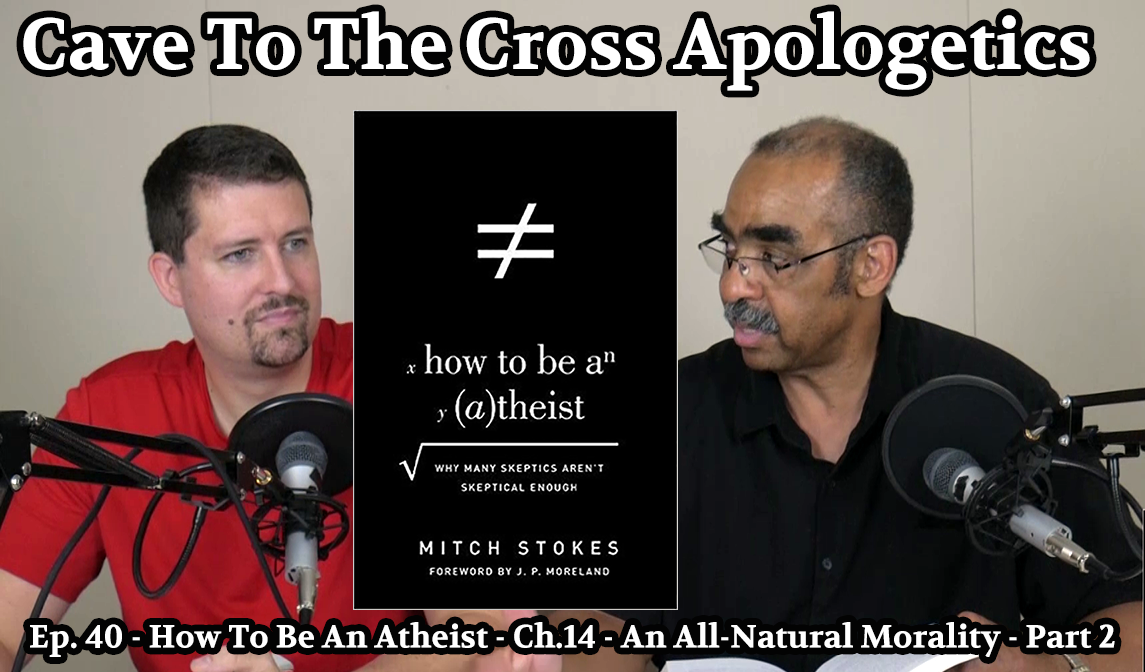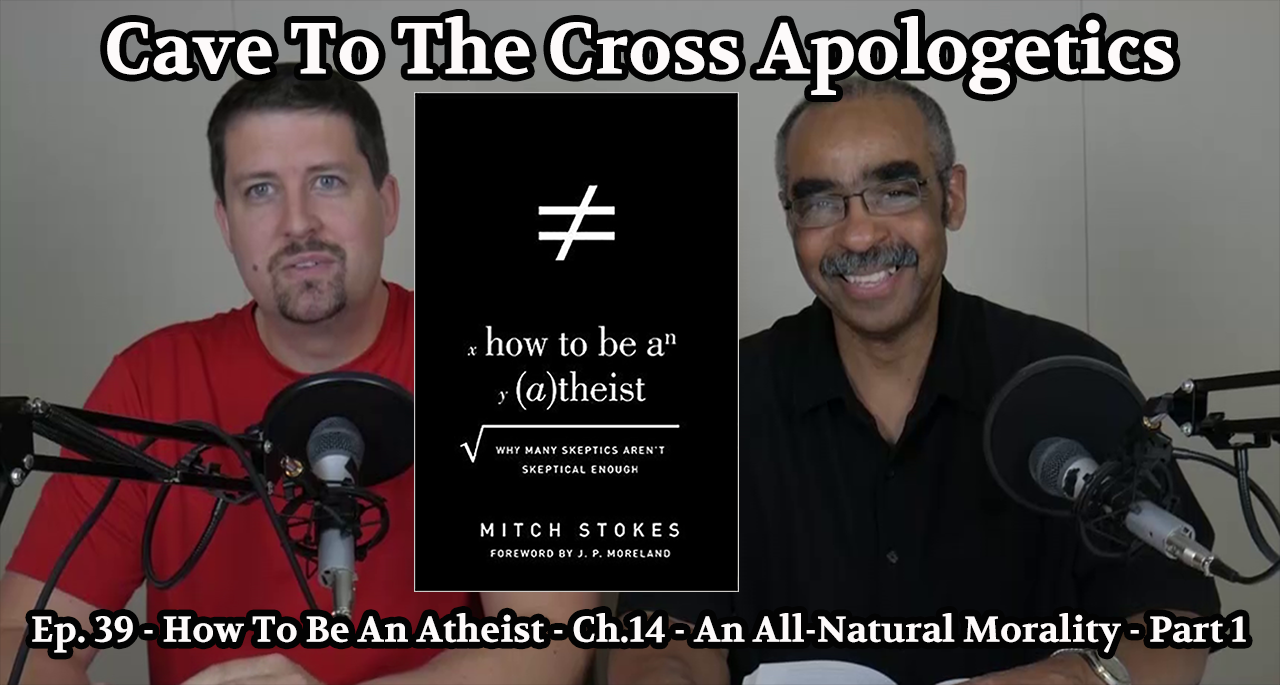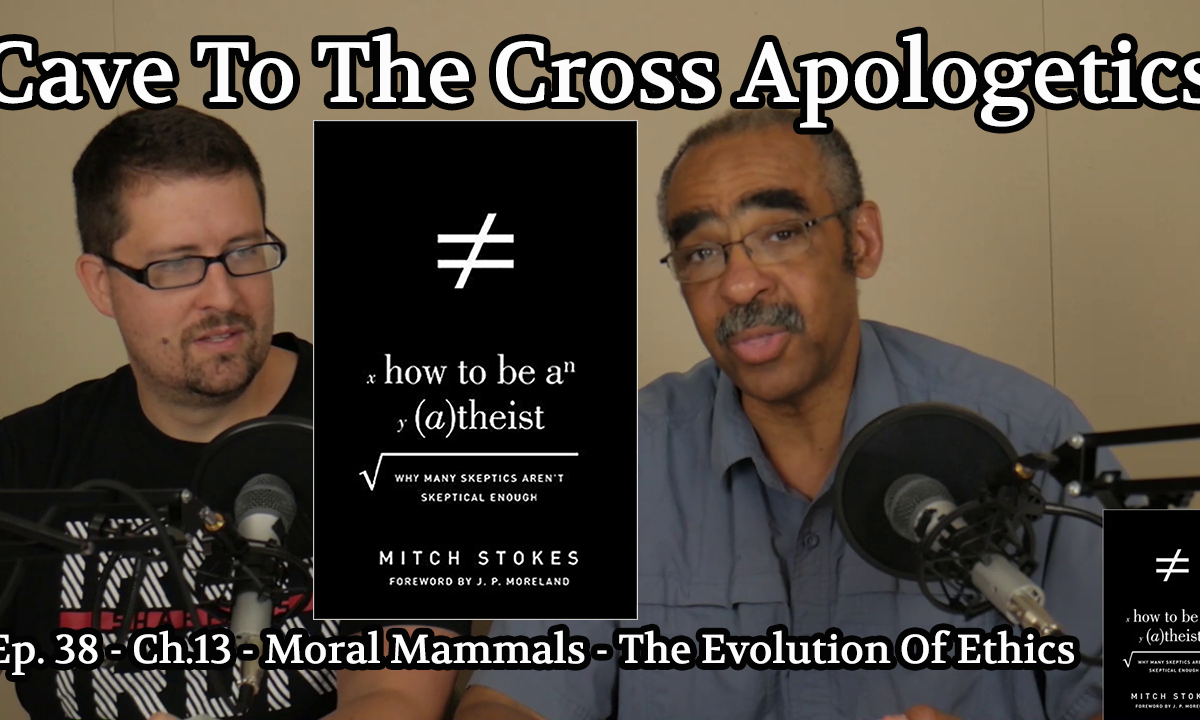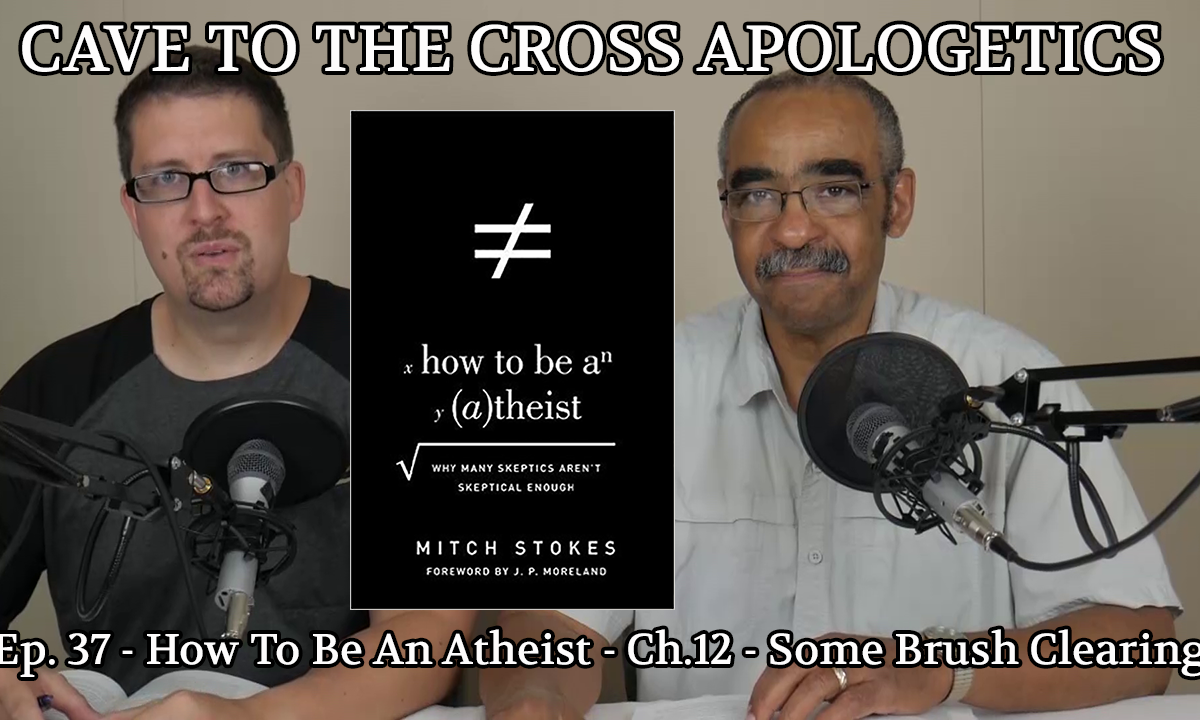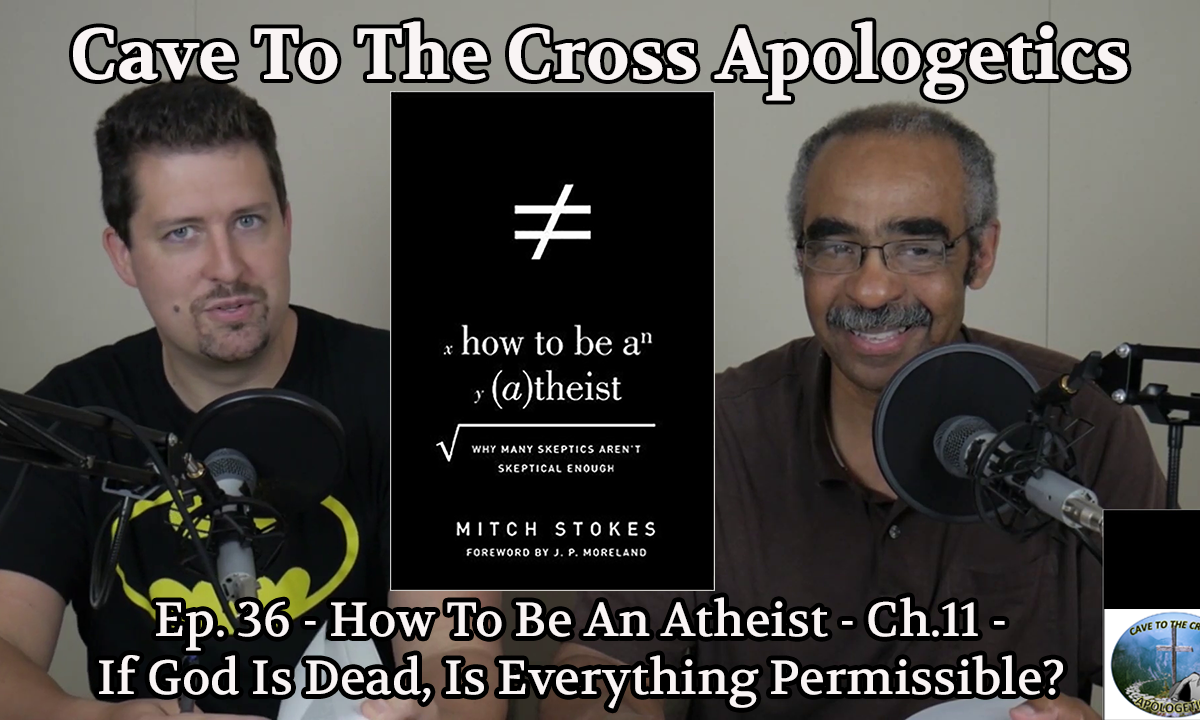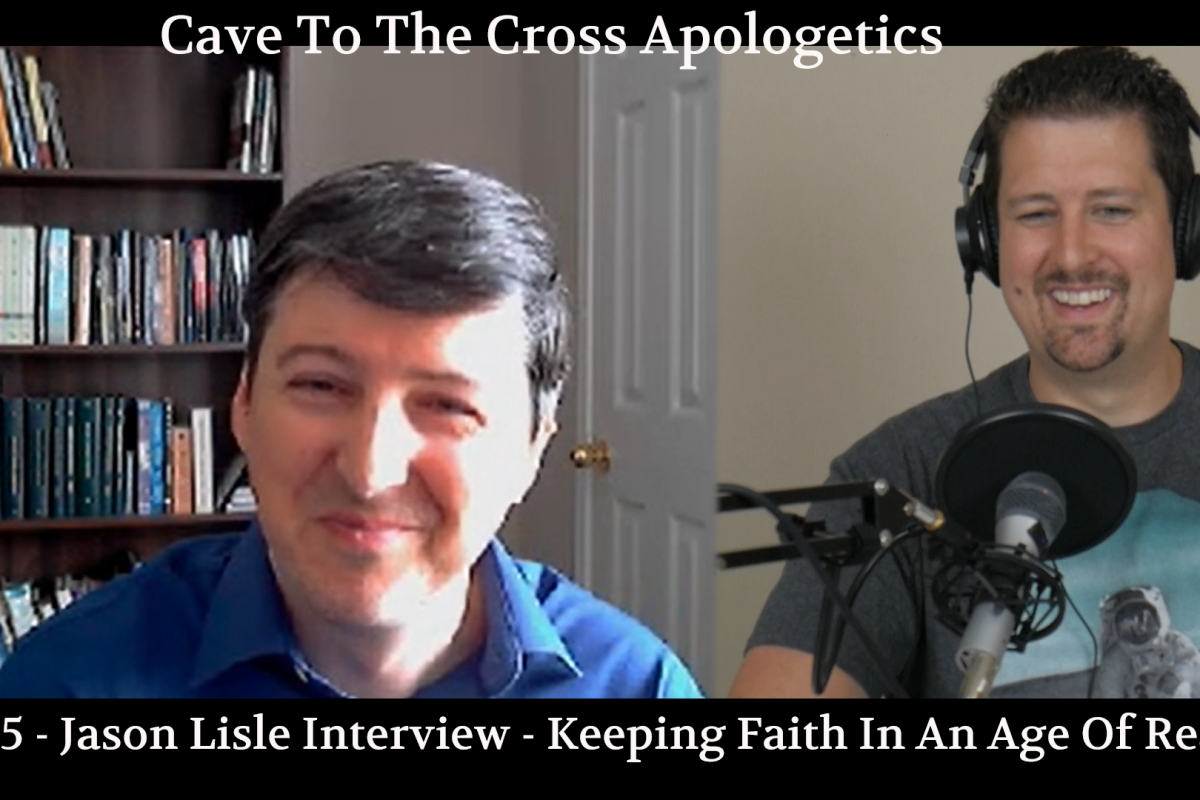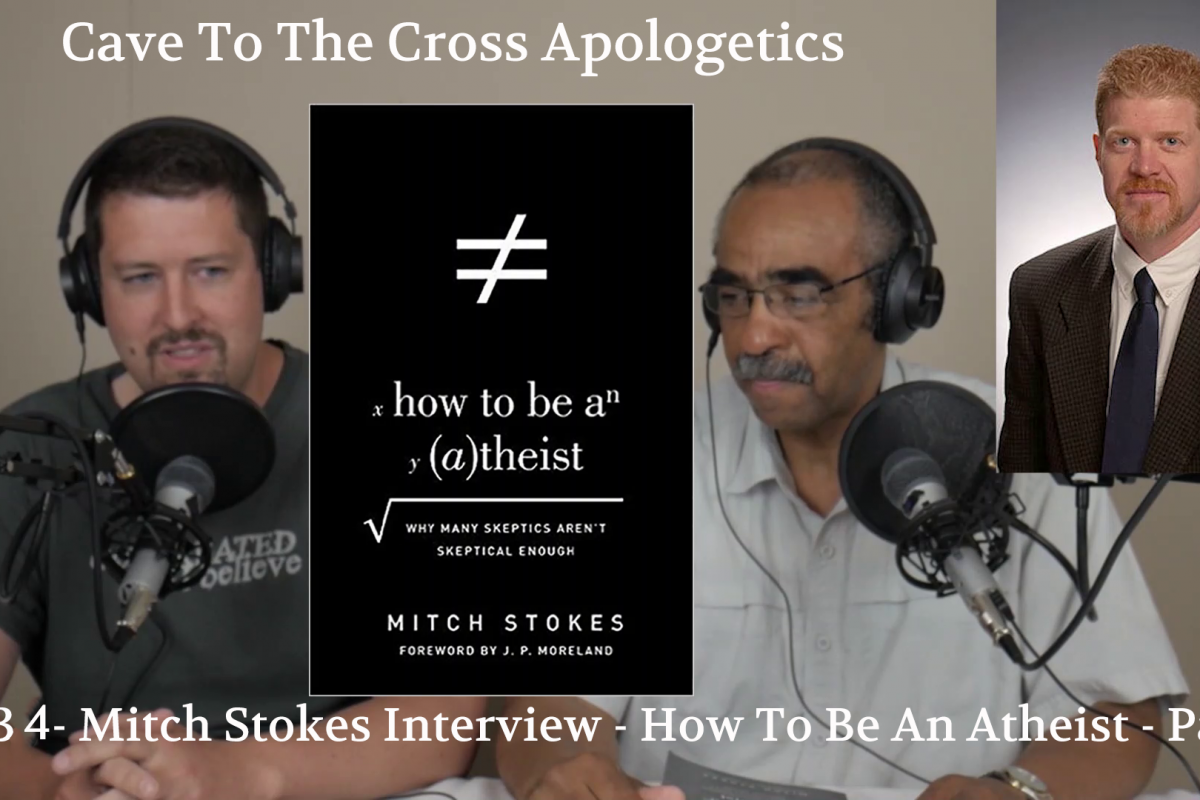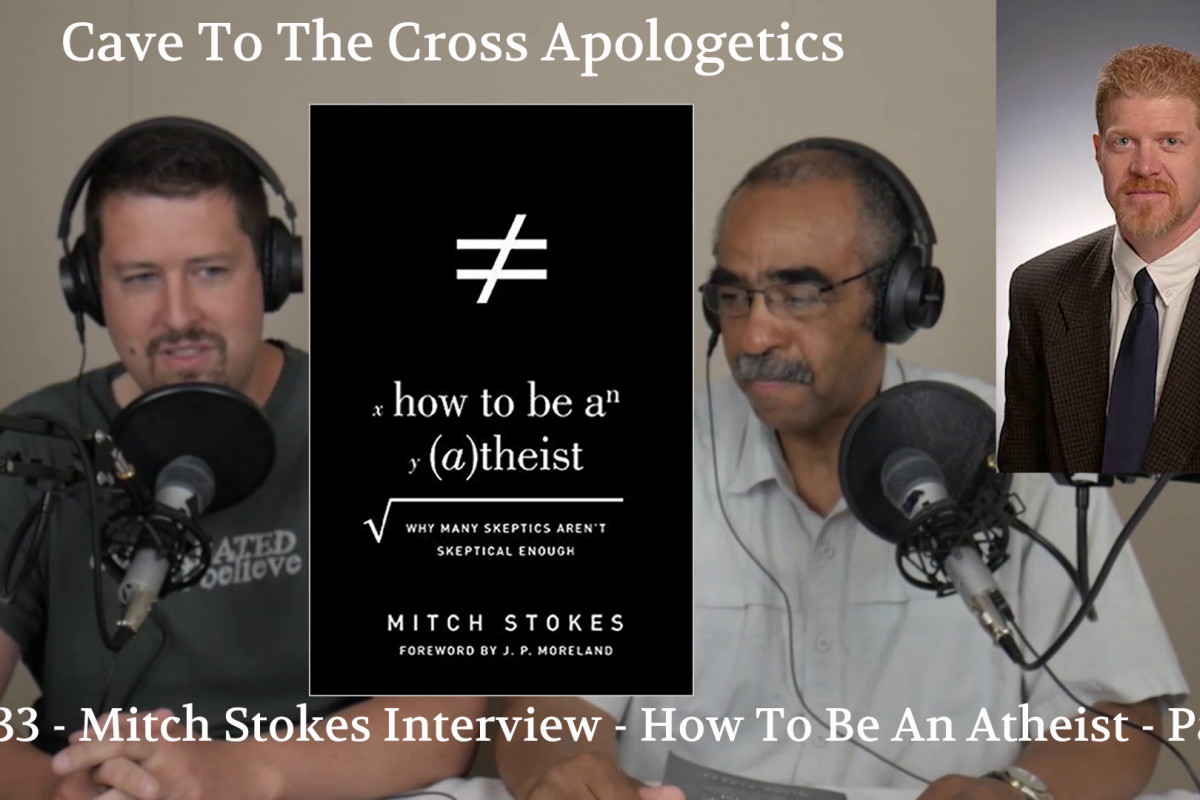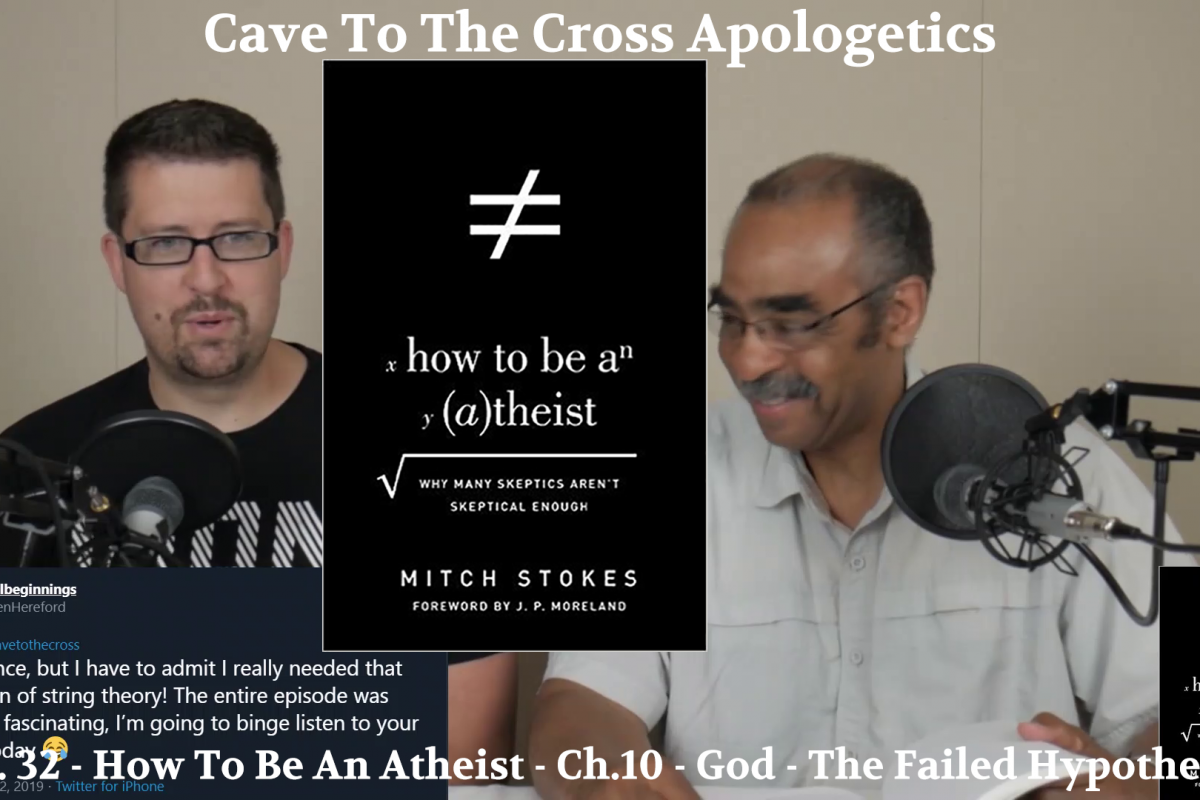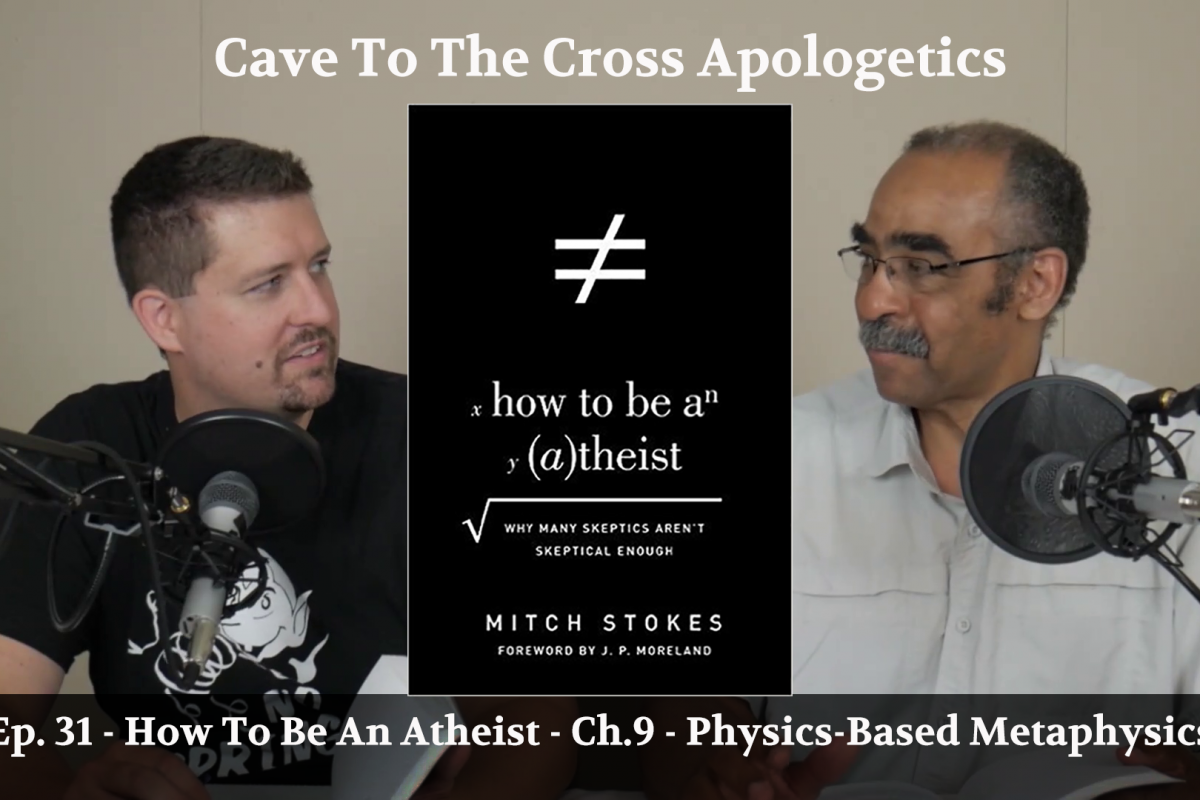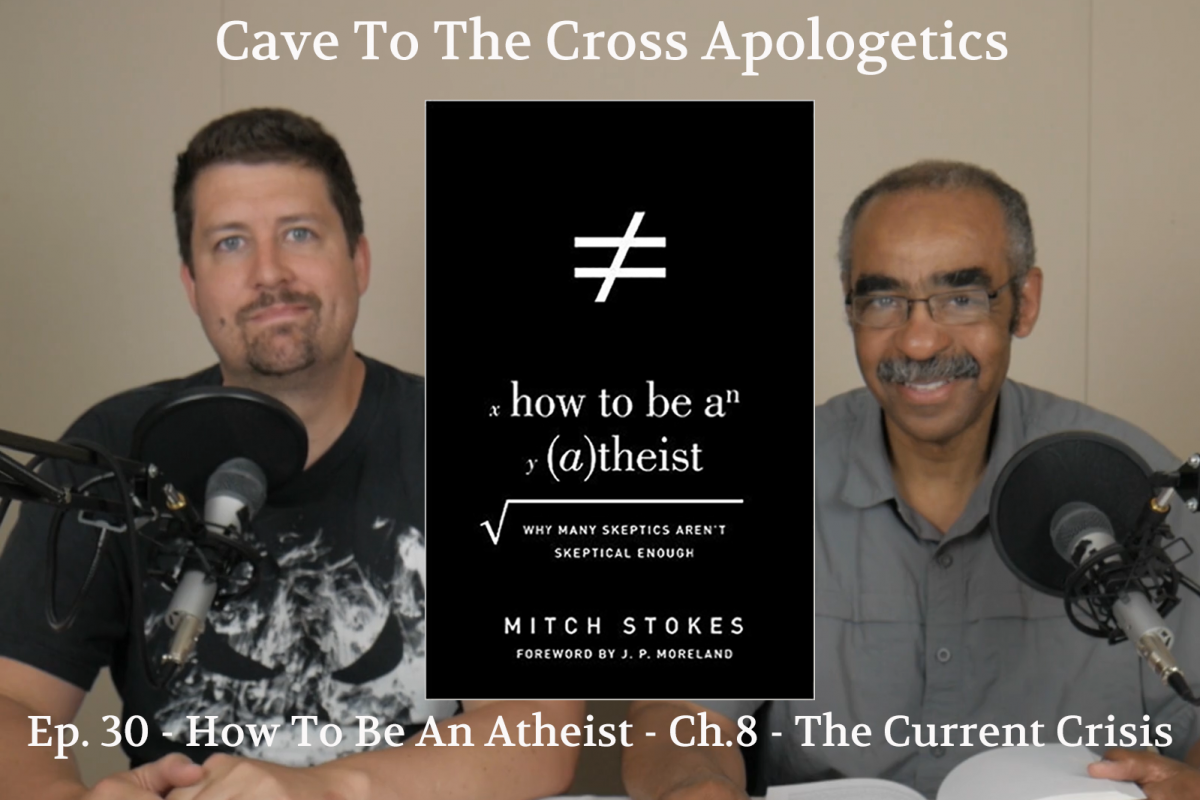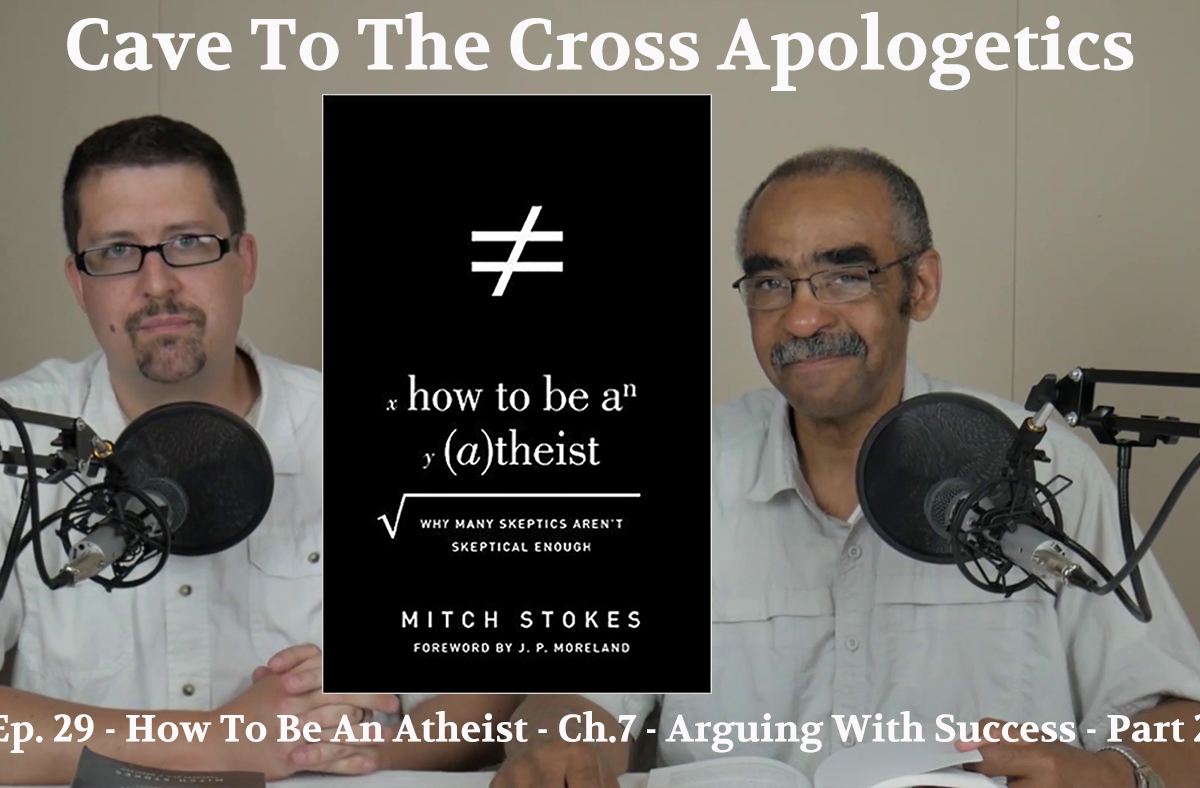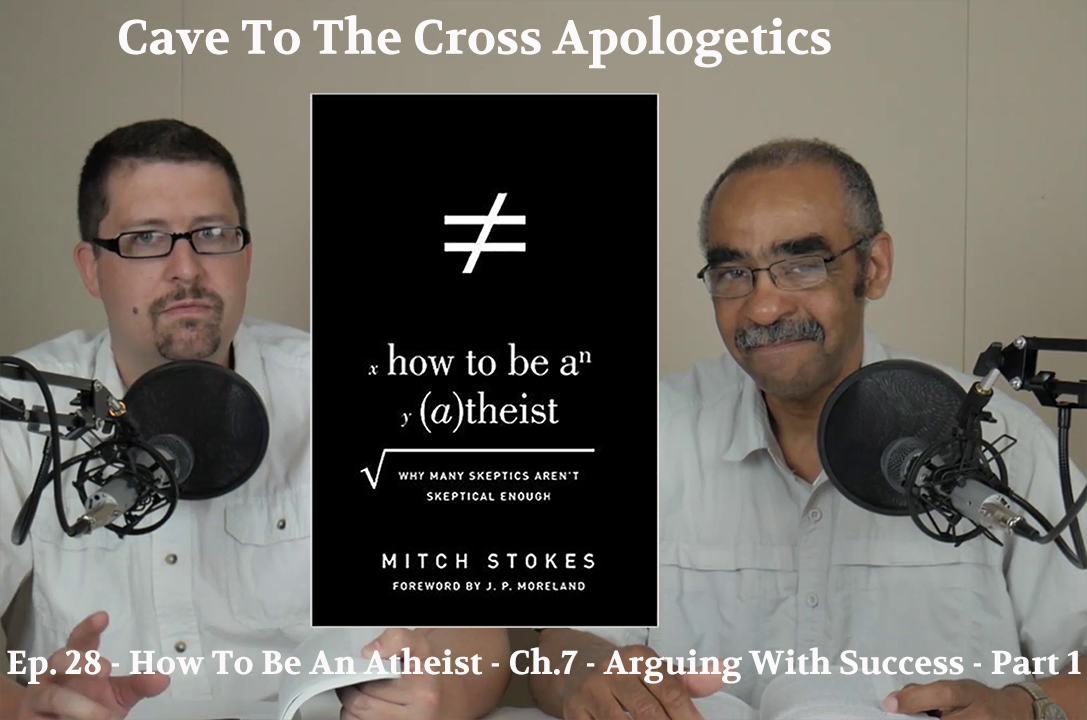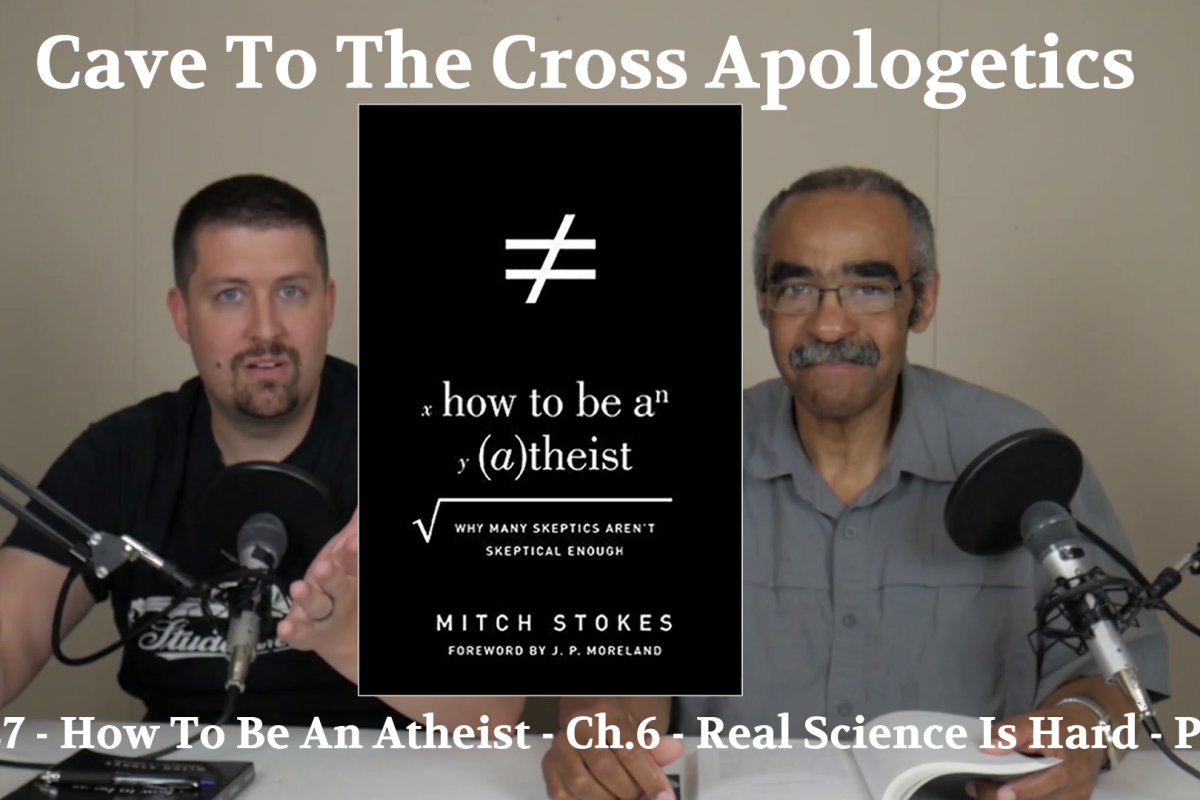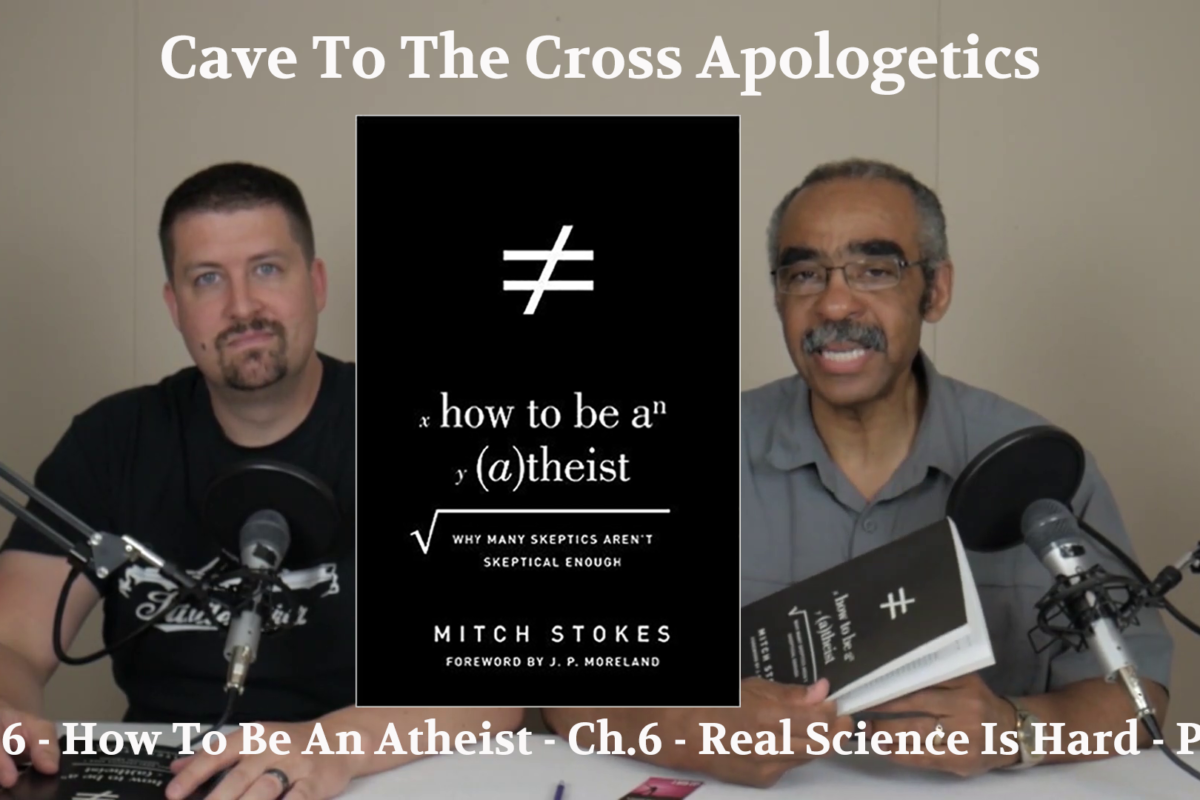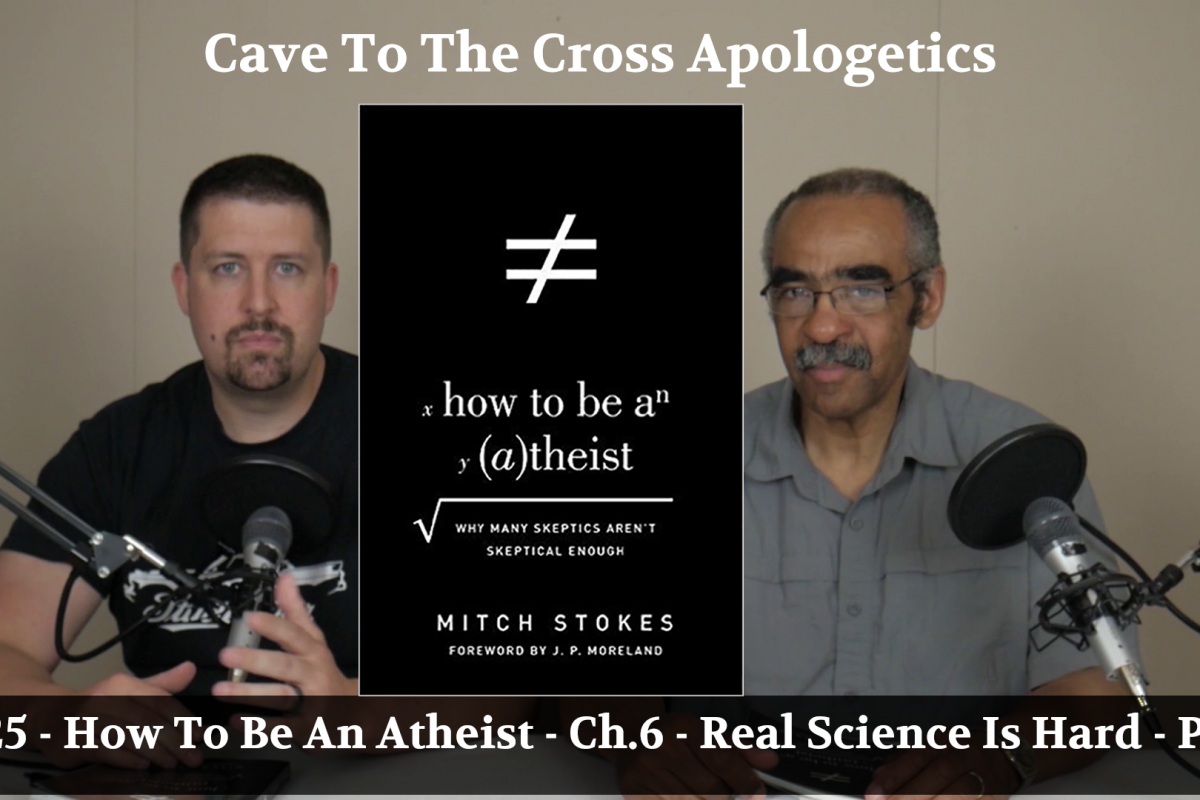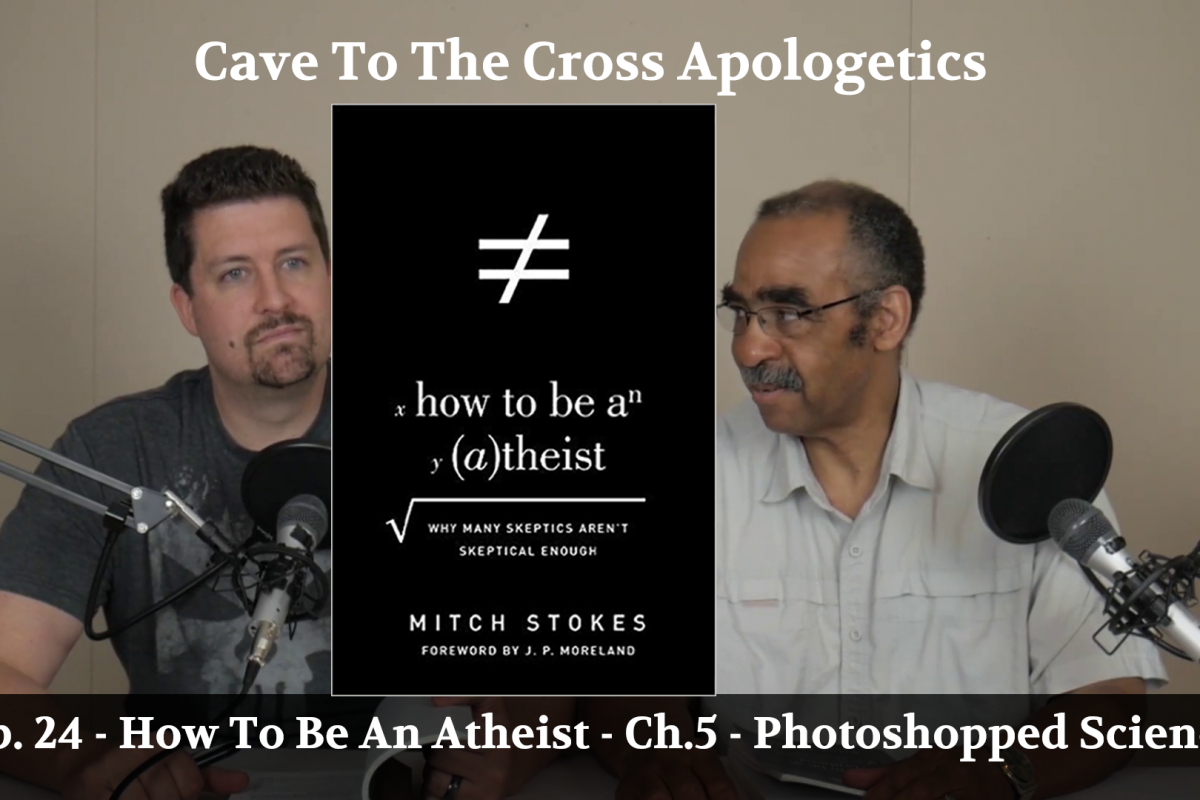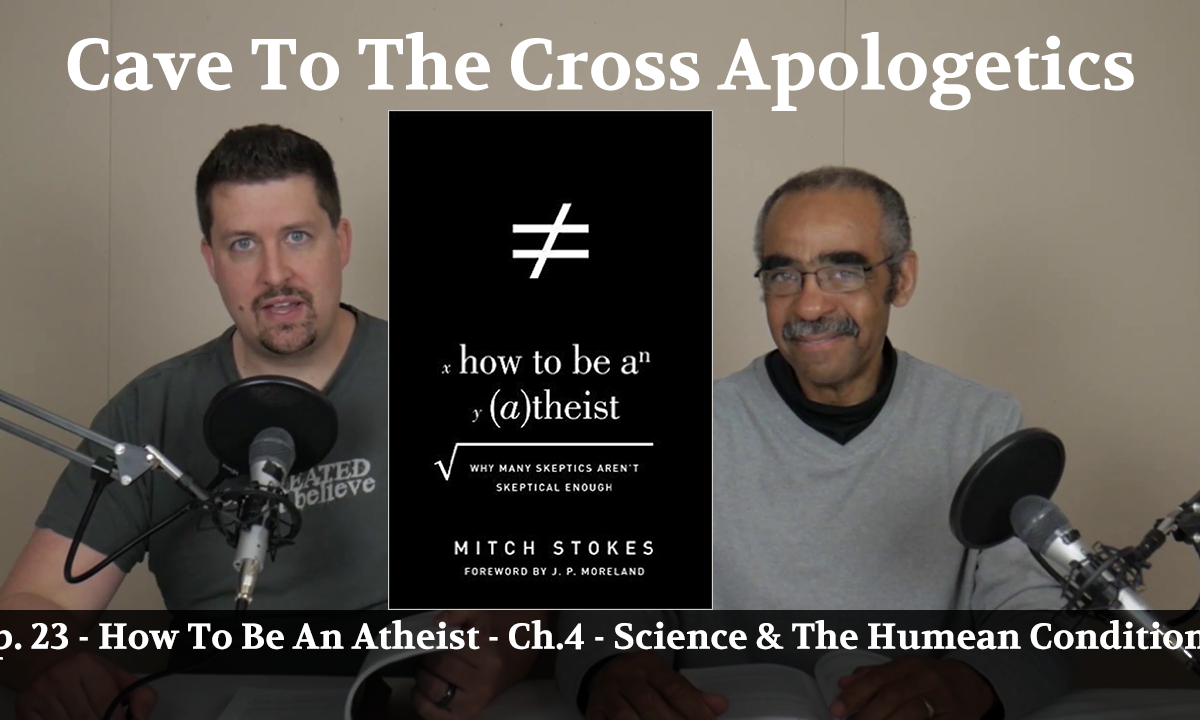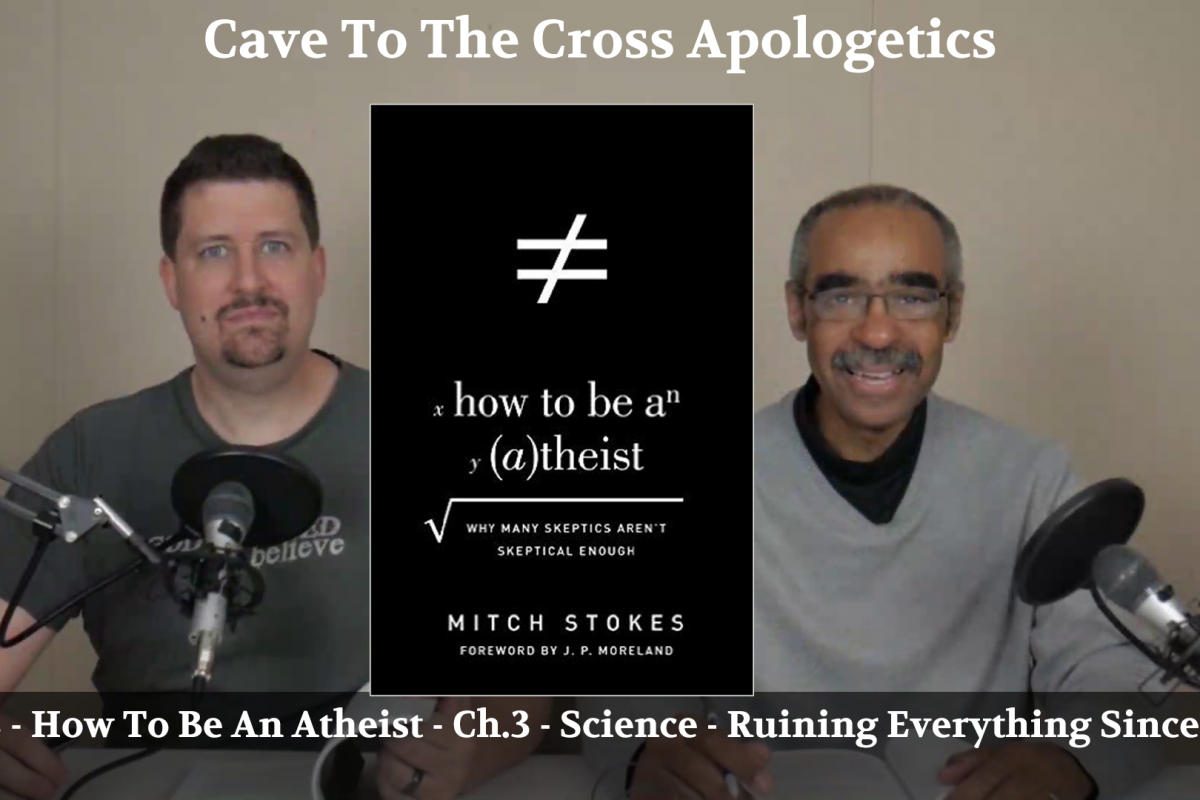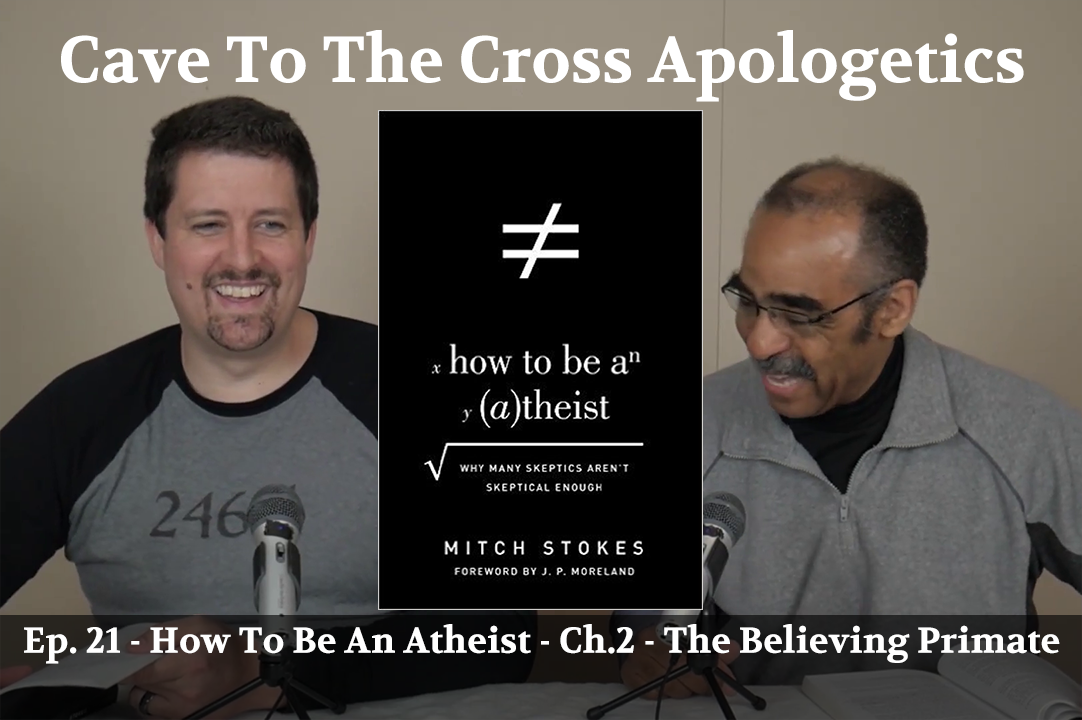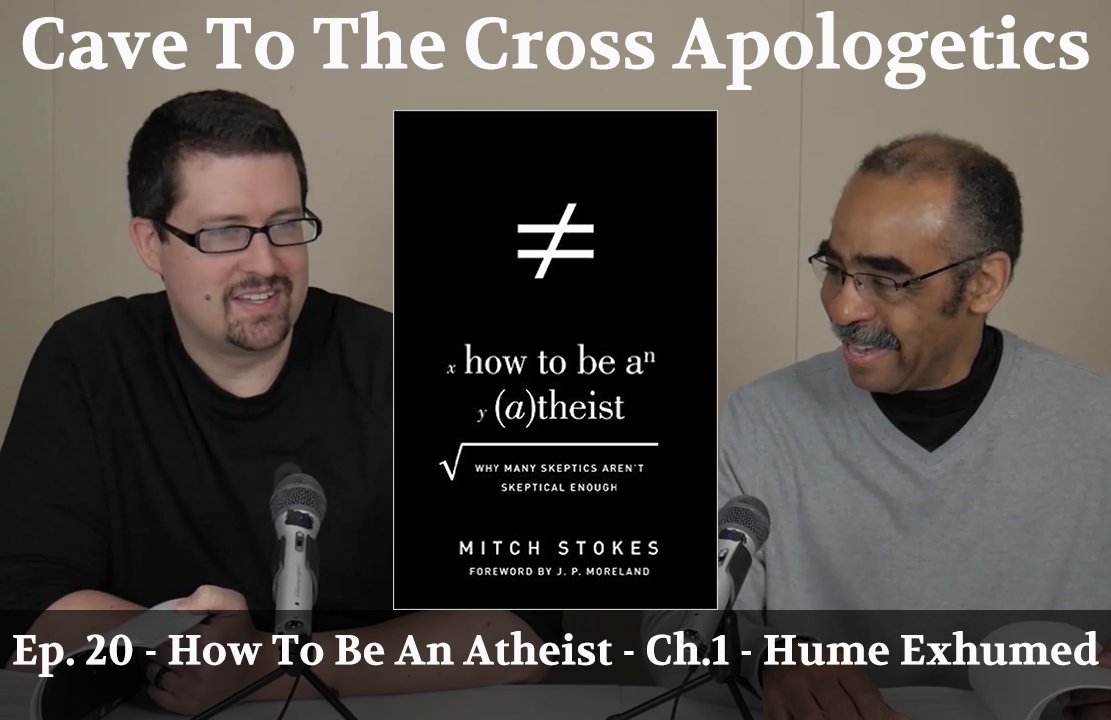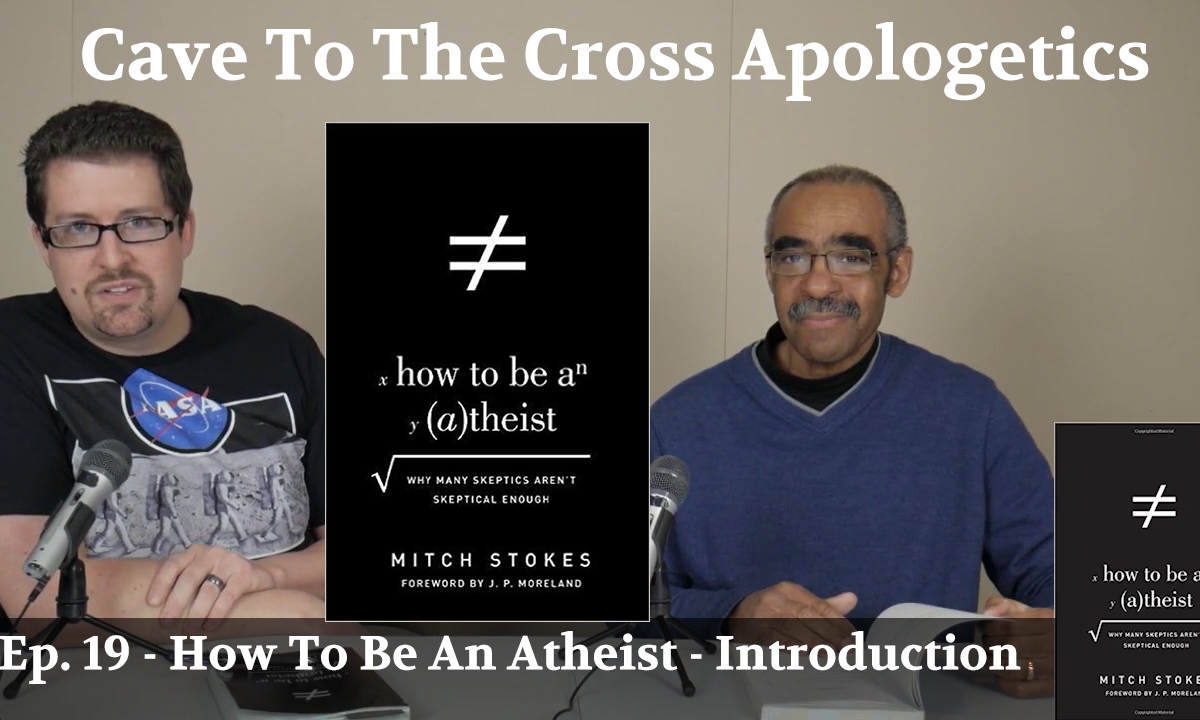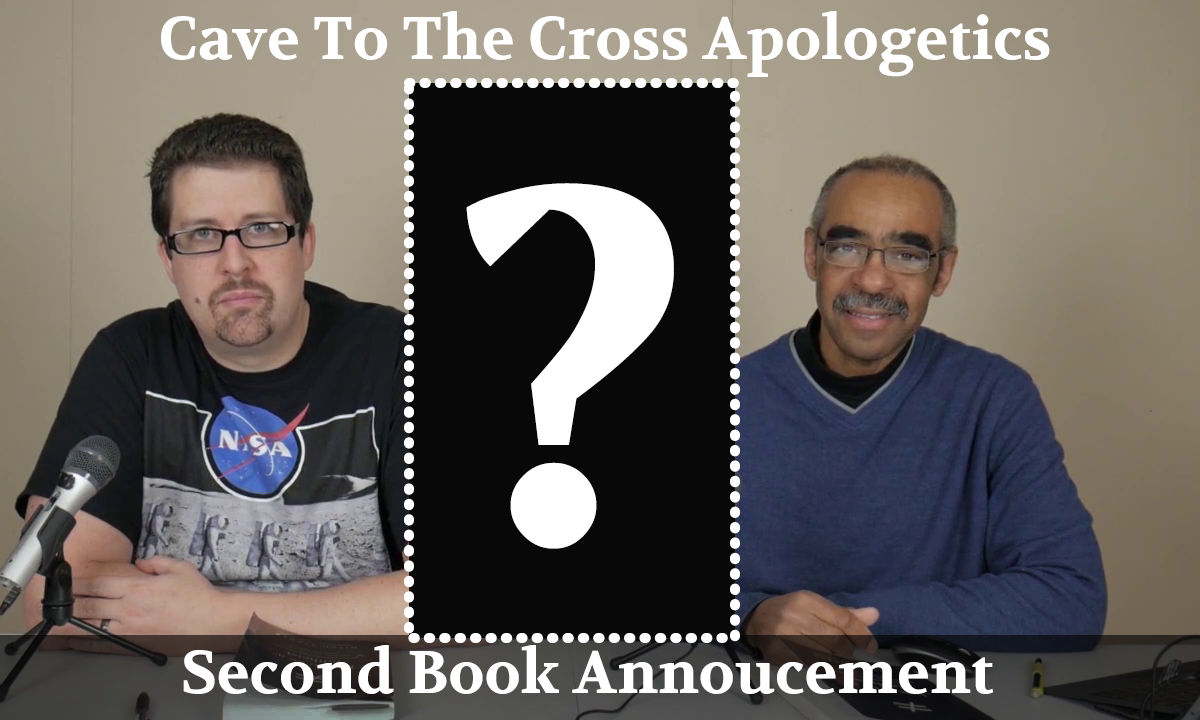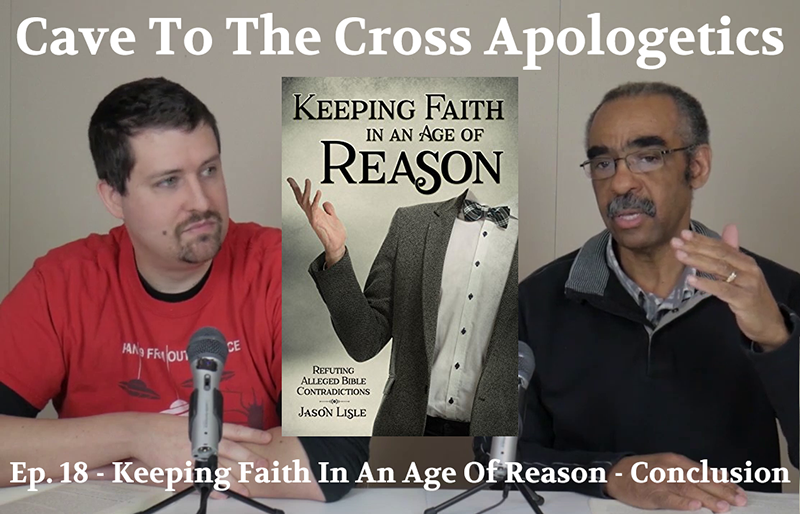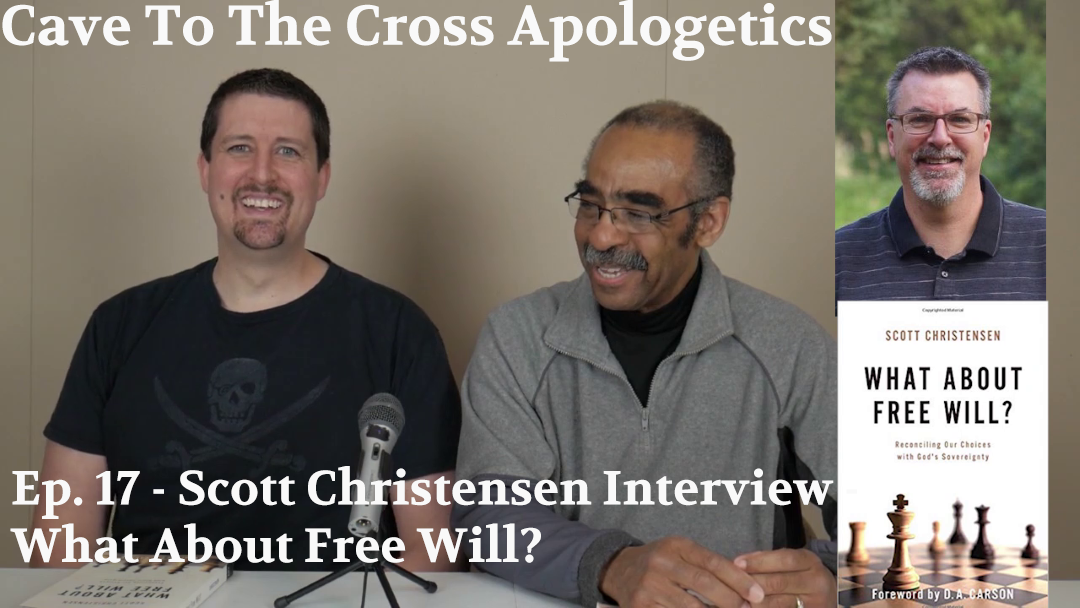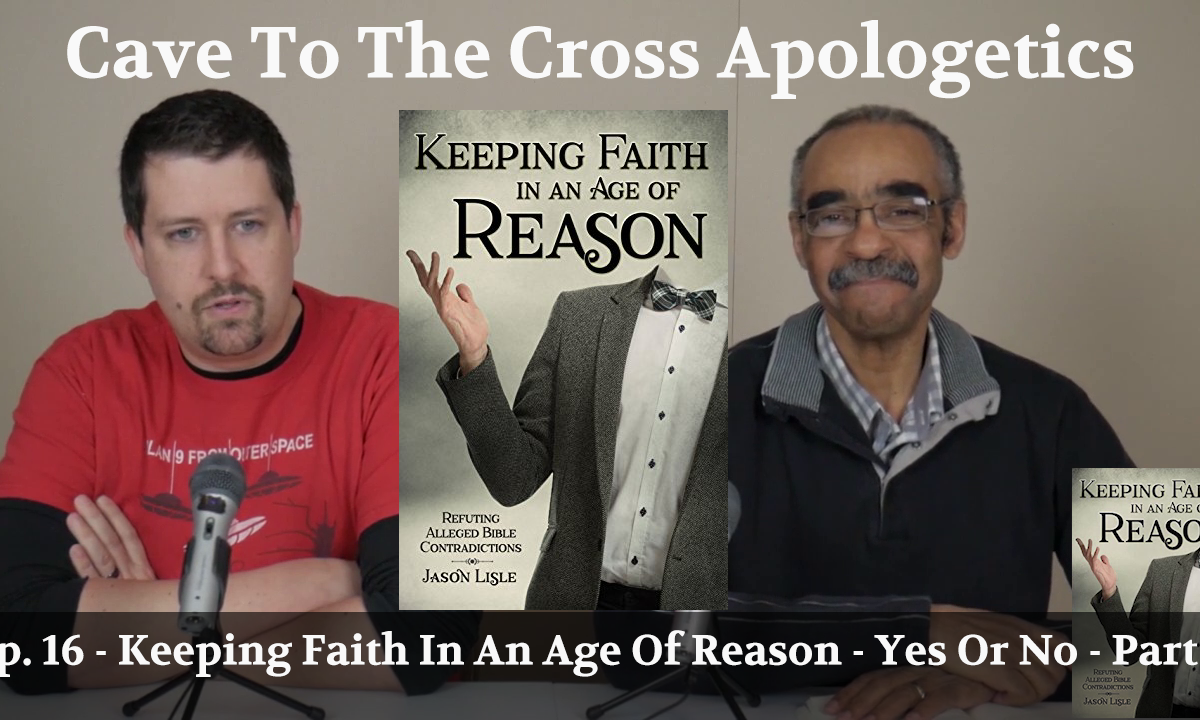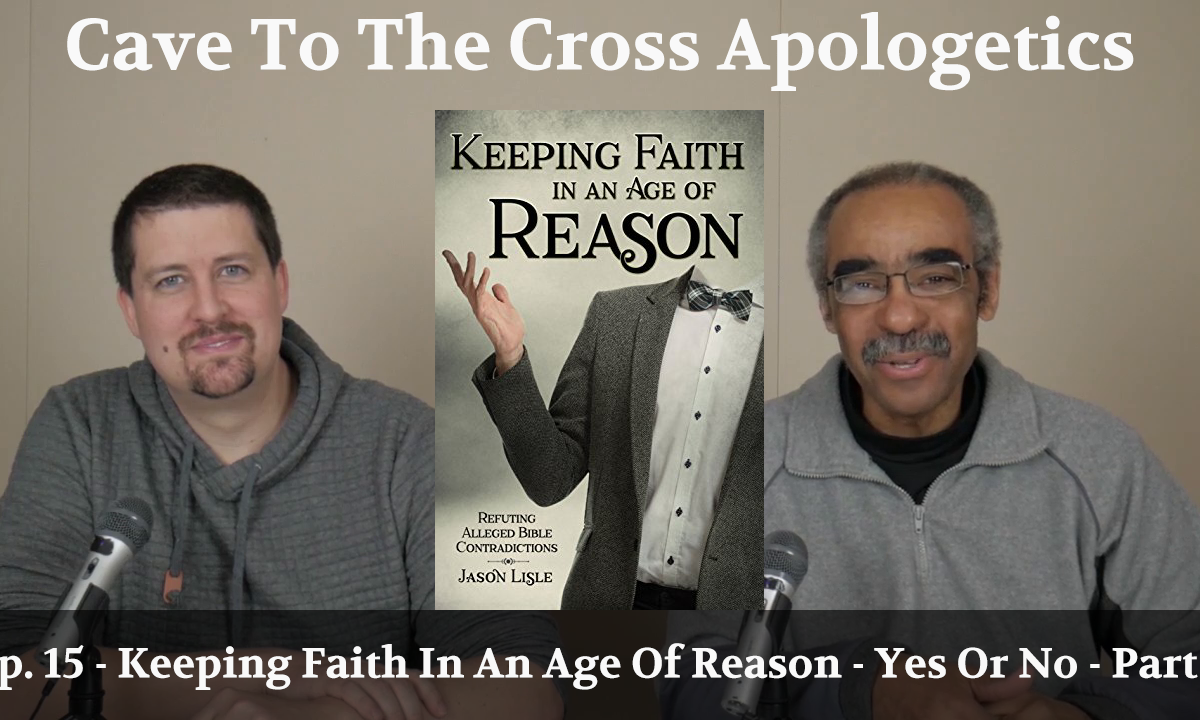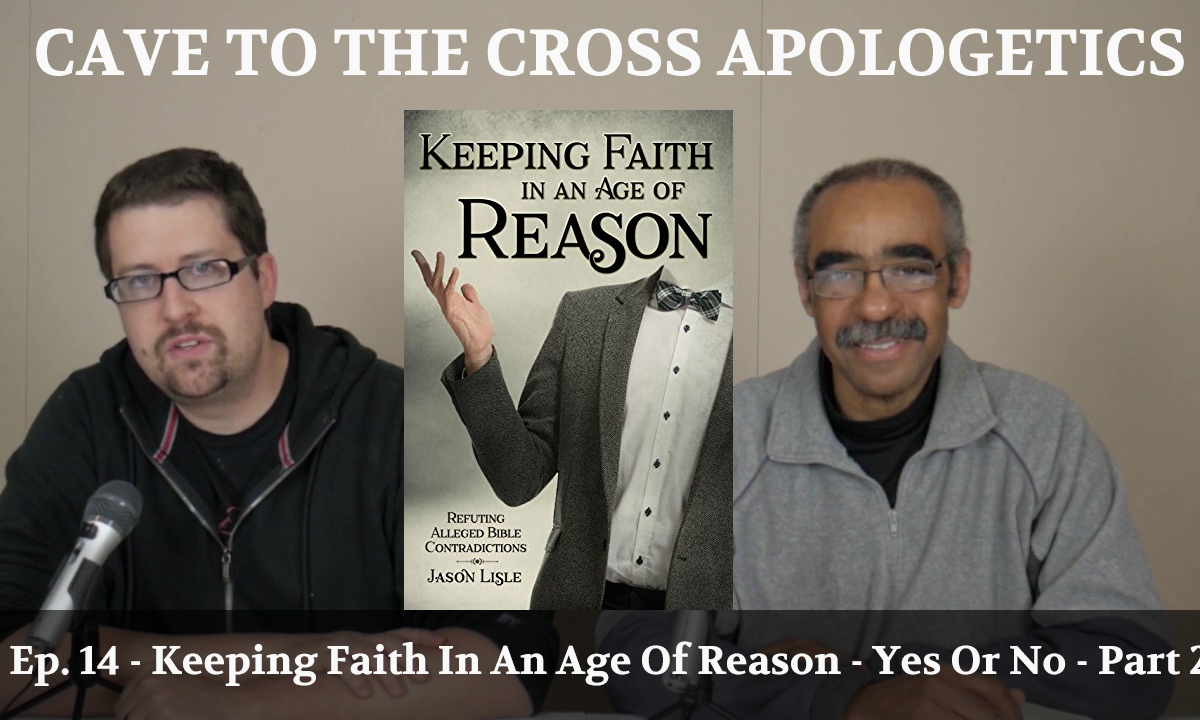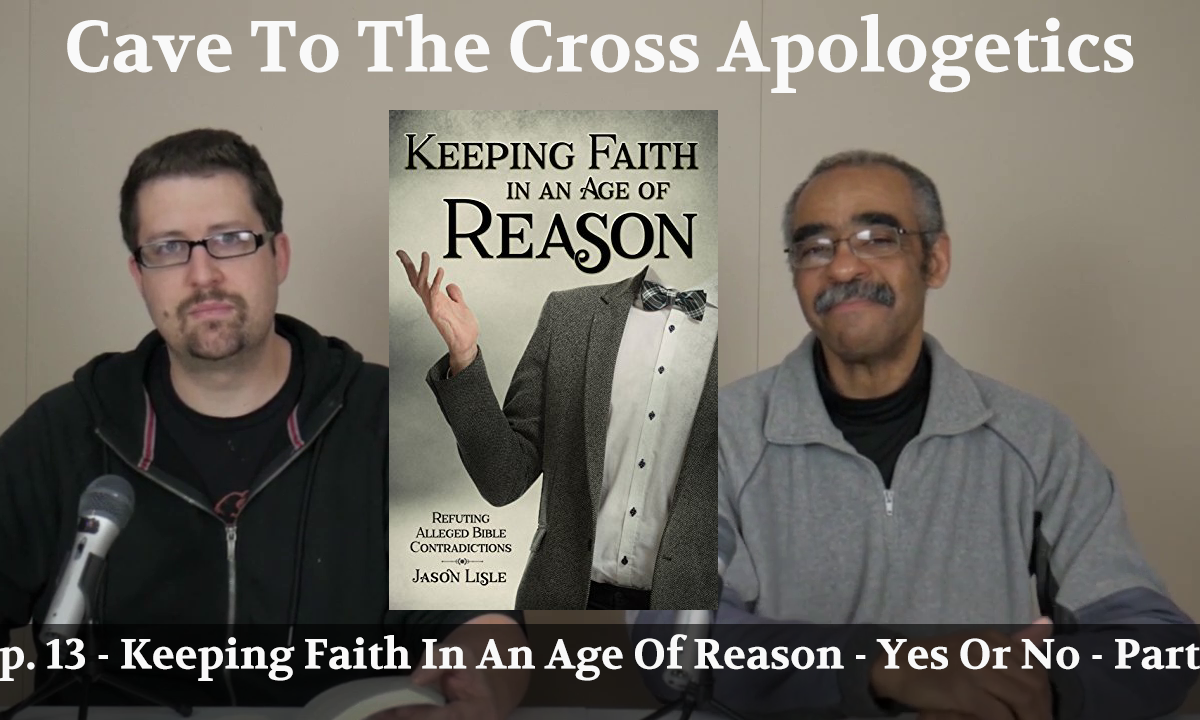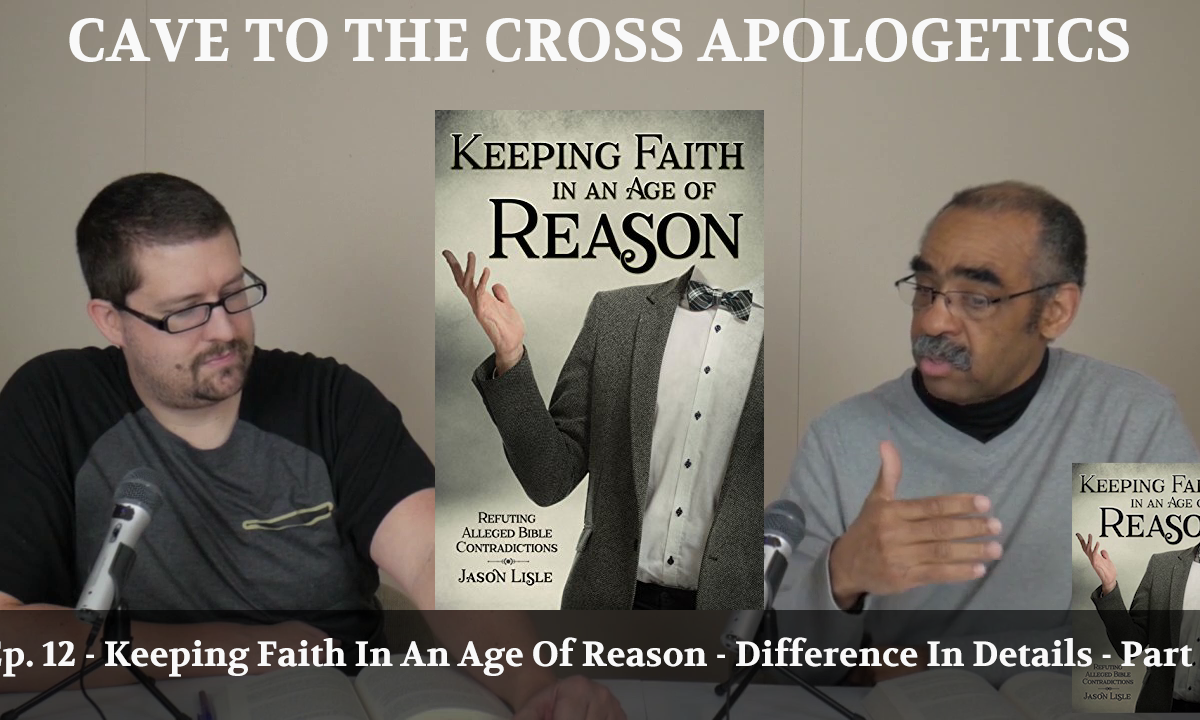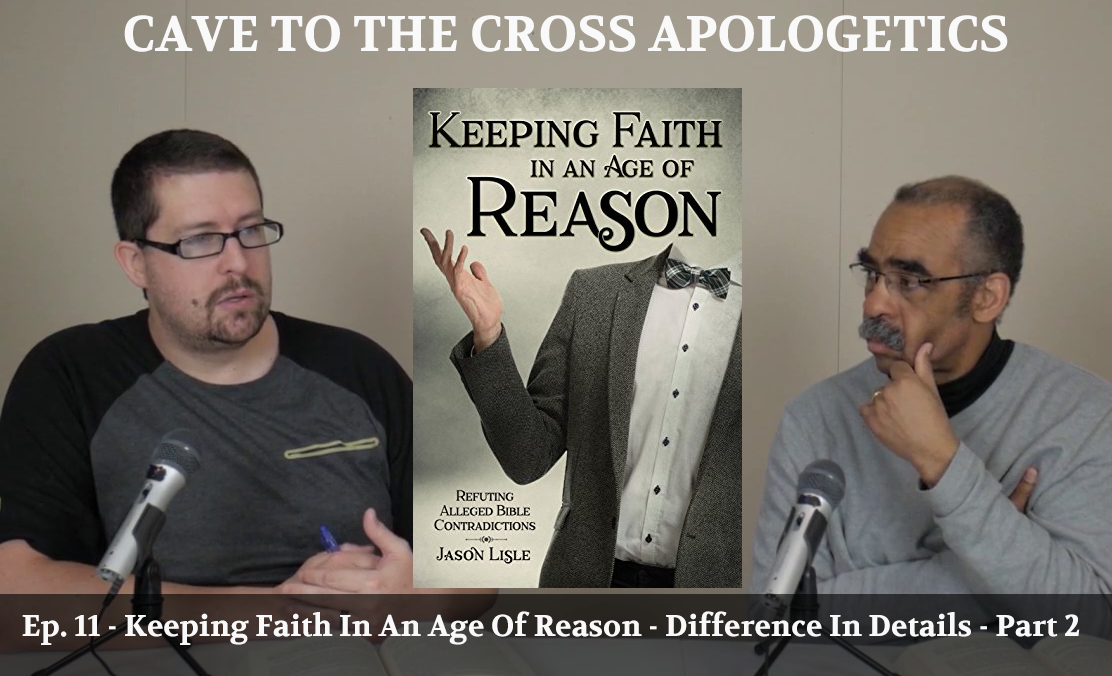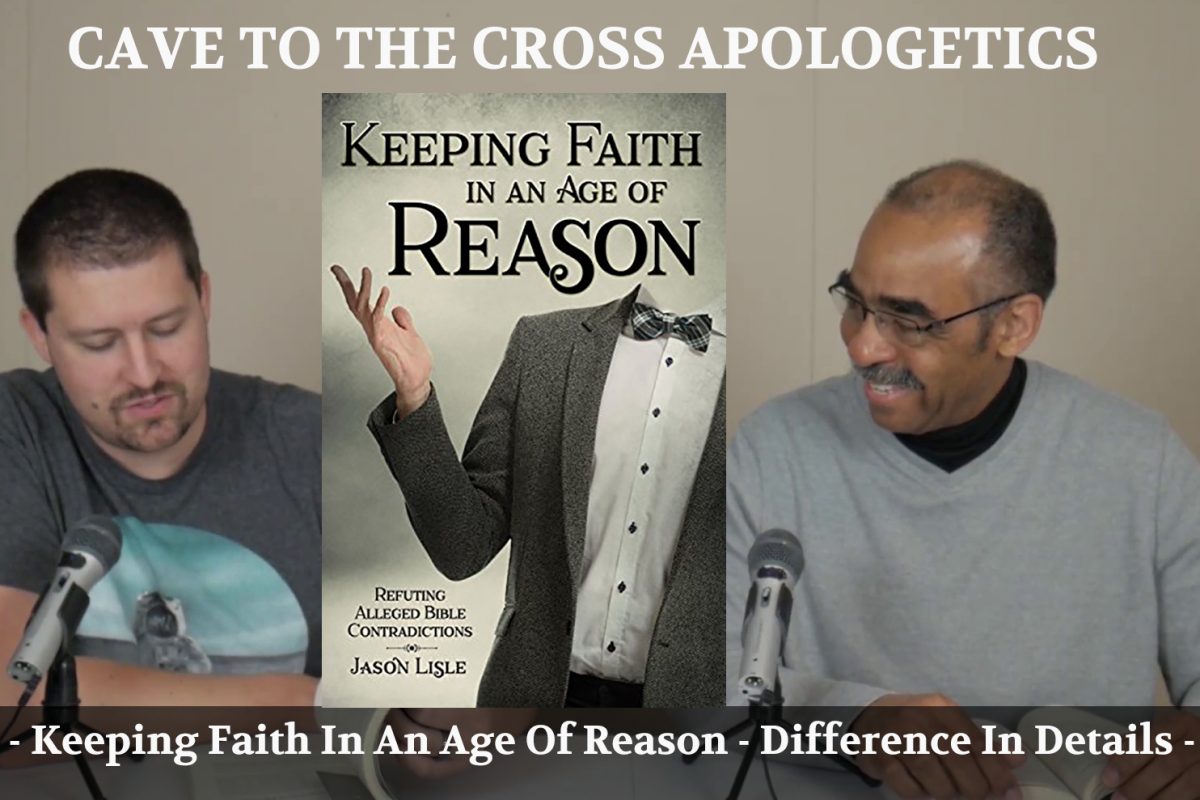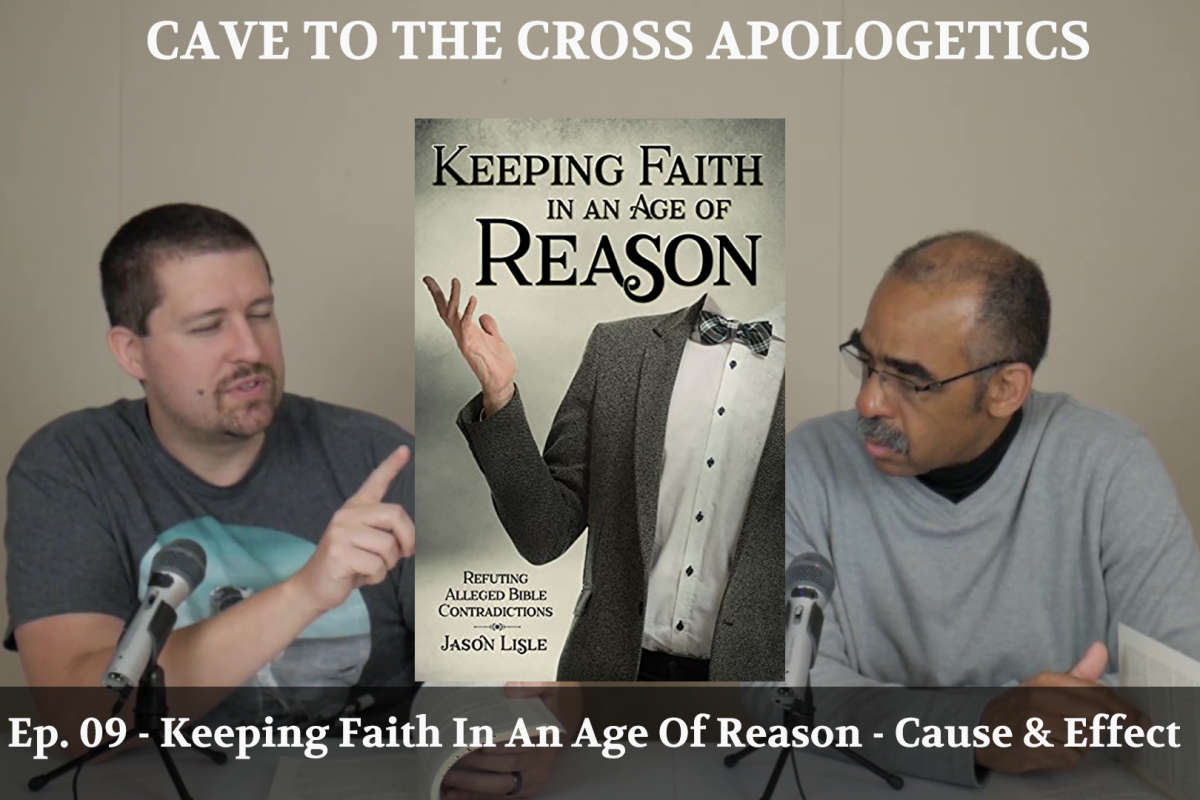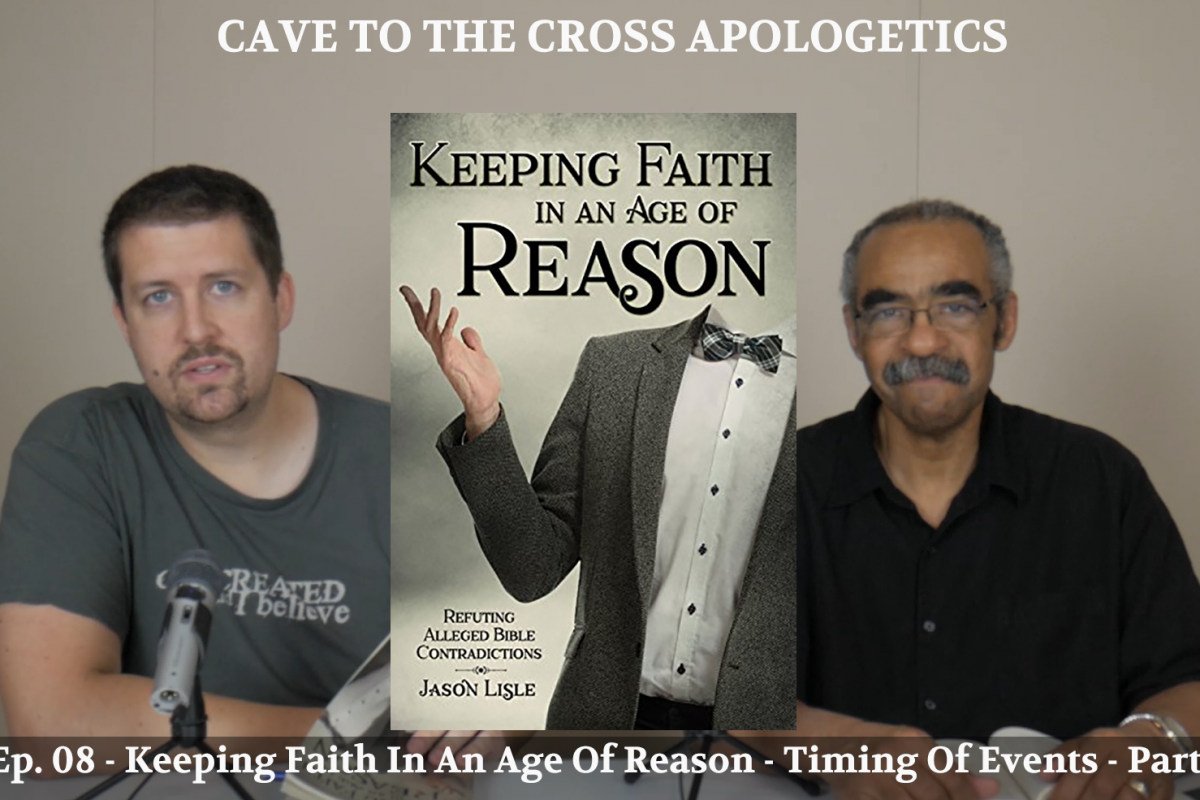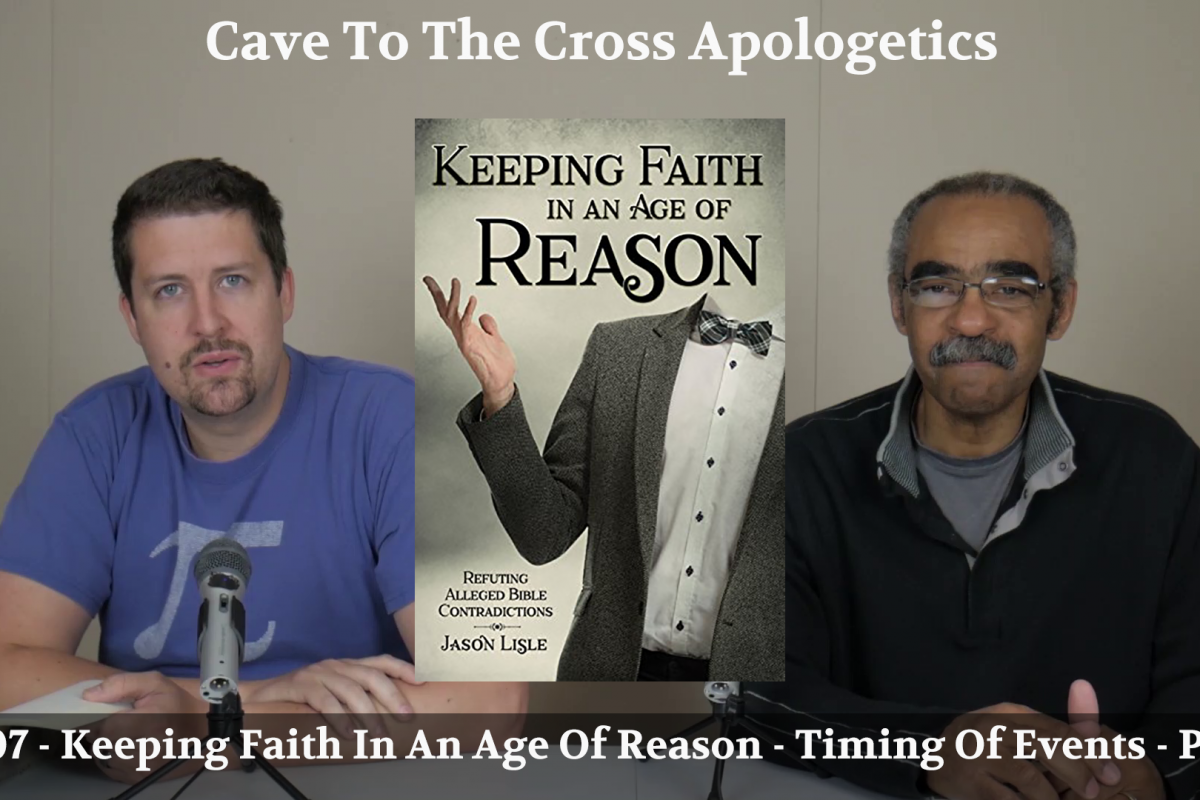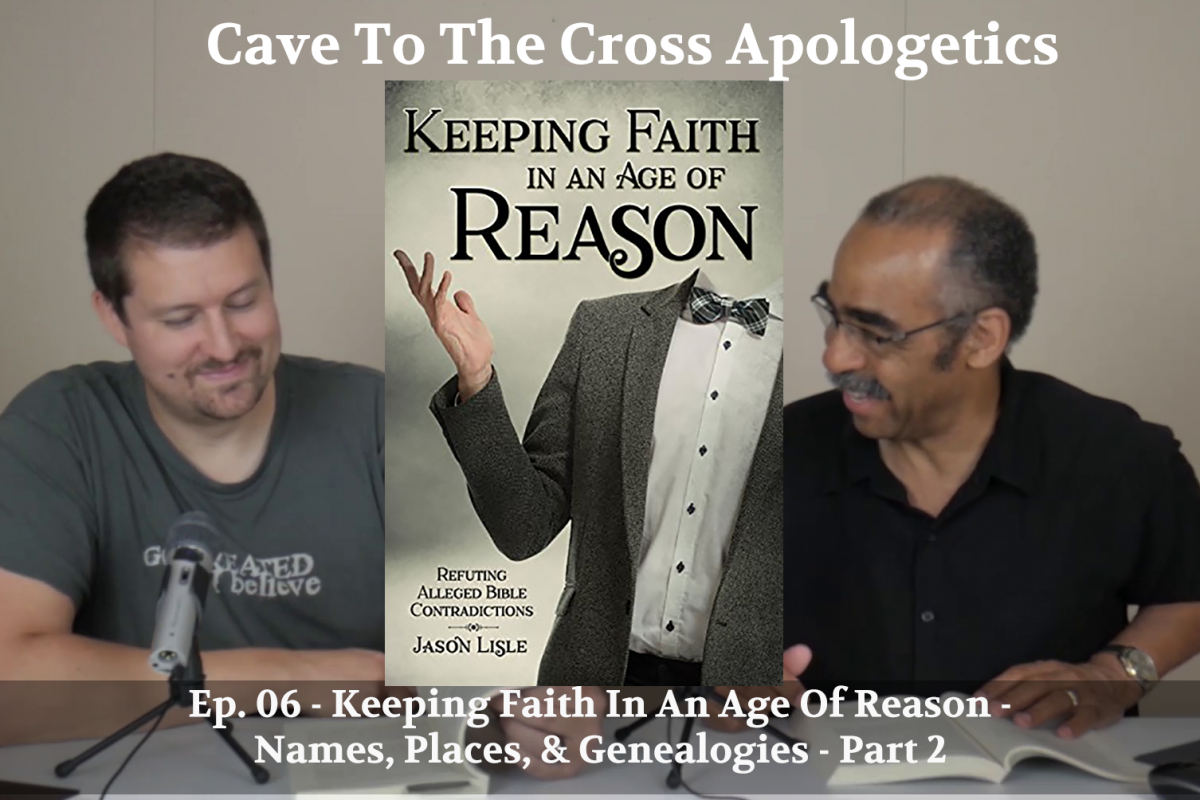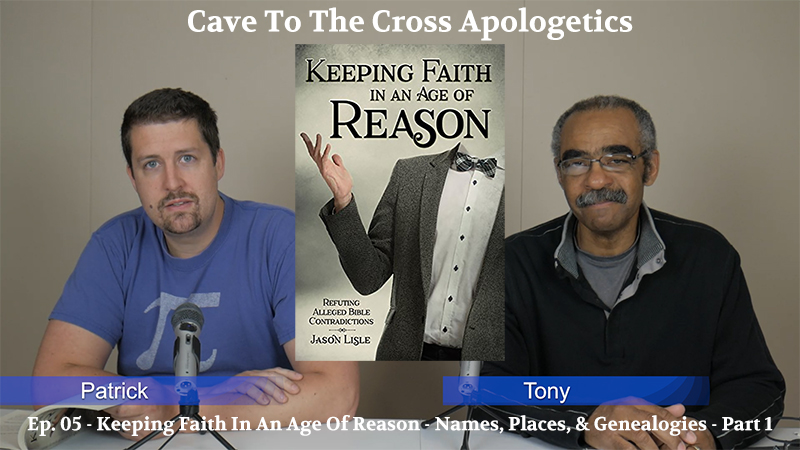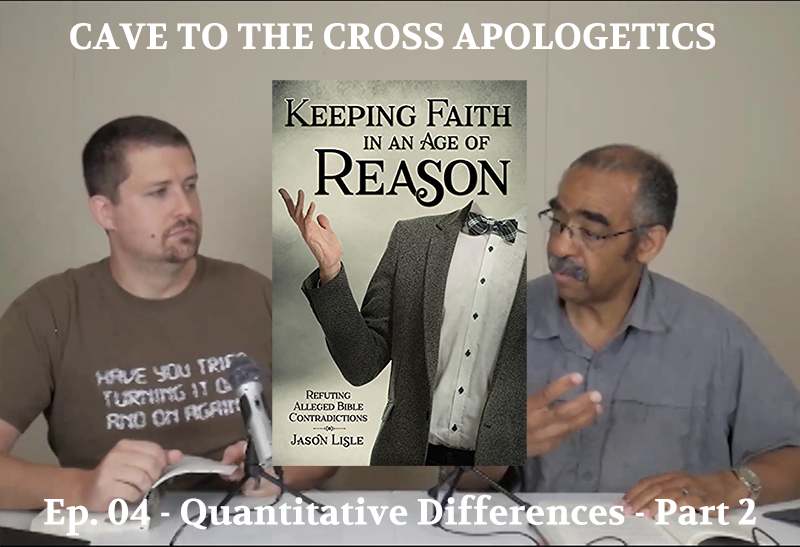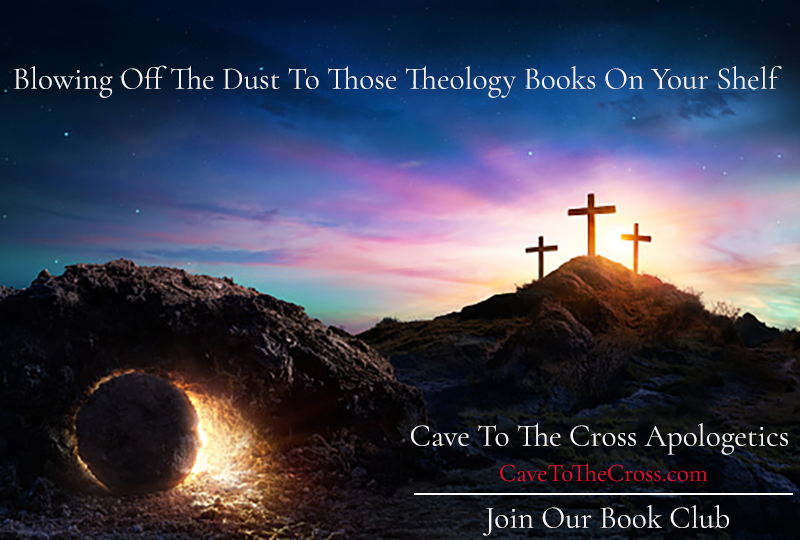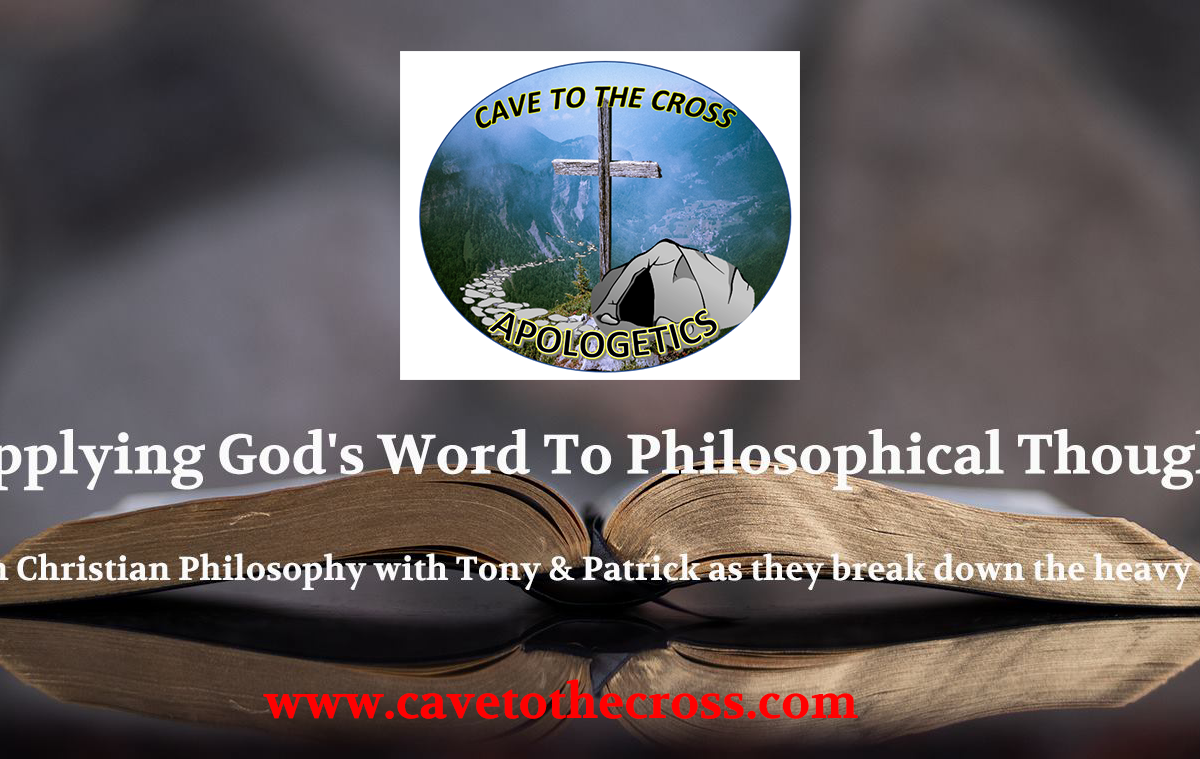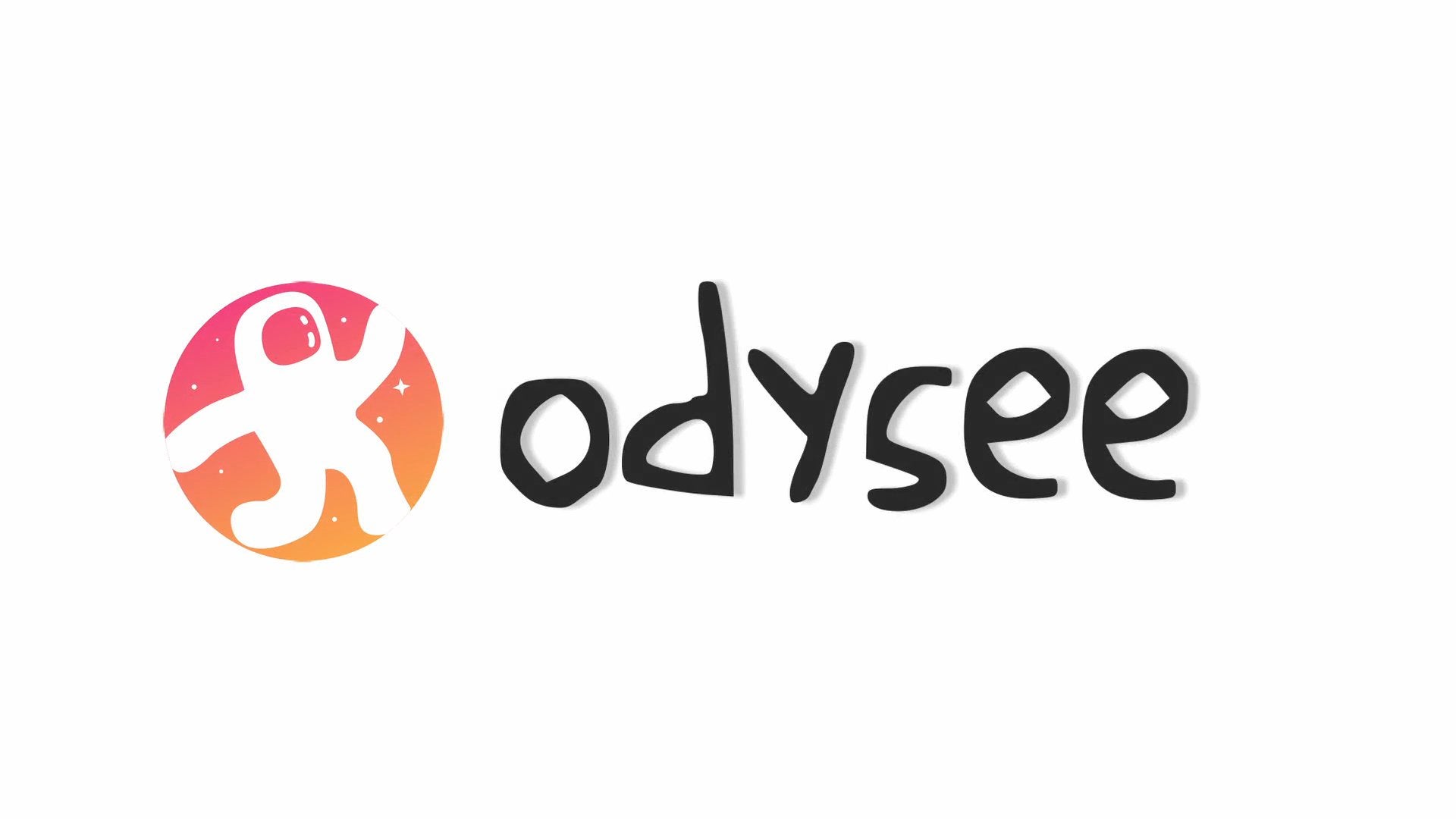We wrap up Professor Pearcey’s book with a challenge to Christians and to the Church. That challenge is to stand firm on the Word of God as you say that you do, learn and use critical thinking skills that God encourages us to use, and to go into the world preaching the Good News of the Gospel.
Ep. 75 – Finding Truth – Free-Loading Atheists – Part 2
We finish up Principle 5 by continuing to present examples of atheists freely admitting to stealing from Christianity’s superior worldview. So much so that non-theists attempt to elbow into areas addressed previously by Christianity – including atheist churches. Along with a warning about scientism, Christians are encouraged to present the Gospel with love and respect.
Ep. 74 – Finding Truth – Free-Loading Atheists – Part 1
Onto Principle 5! We talk about how and why the Christian should present the Christian worldview as the superior and most consistent one. We then go over where the atheist(s) freely admit to stealing from the Christian worldview in order to come to the beliefs they want to rather than the outcomes their beliefs would demand.
Ep. 73 – Finding Truth – Why Worldviews Commit Suicide – Part 3
https://media.blubrry.com/cavetothecross/cavetothecross.com/wp-content/uploads/2020/05/Cave-To-The-Cross-Apologetics-Ep.-73-Finding-Truth-Why-Worldviews-Commit-Sui-cide-Part-3.mp3Podcast: Play in new window | DownloadSubscribe: Apple Podcasts | Spotify | Amazon Music | Android | Pandora | iHeartRadio | JioSaavn | Podchaser | Gaana | Podcast Index | TuneIn | Deezer | RSS We finish up the chapter by looking at how the postmodern worldview, and it’s subsections, destroy themselves. We look at […]
Ep. 72 – Finding Truth – Why Worldviews Commit Suicide – Part 2
We continue our look at the internal critique of non-Christian worldviews and focus especially on Darwin. We also see what CS Lewis has to say about belief in atheism. Finally, we talk about the benefits of the Christian worldview and how it doesn’t fail the internal critique.
Ep. 71 – Finding Truth – Why Worldviews Commit Suicide
Principle 4 – does the worldview meet its own standard when it is applied to itself? Since non-Christian worldviews tend to be reductionistic they will be self-defeating. In this episode, we introduce the principle and why it is one of the most important tools you have in your apologetic quiver.
Ep. 70 – What Does Romans 13 Mean? (Tulips & Honey)
Strap in; we’re talking about religion and politics today! Our friend, Lauren, from the Tulips & Honey Podcast interviews Patrick on how Christians should respond to government in light of Scripture. The launchpad for this is Romans 13. From there, they discuss what does Romans 13 actually mean; what should the Christian’s response to the State and its overreach be; how should a Christian view the use of force against people and against government; and can one be a Christian and an anarchist?
Ep. 69 – Nancy Pearcey Interview
How exciting is this?! We welcome Professor Nancy Pearcey herself to the show! We talk to her about her coming to faith in Christ and her experience at L’Abri with Francis Schaeffer. Then we talk about her book we’ve been going over “Finding Truth” and talk about the book in general and in specific.
Ep. 68 – Finding Truth – Secular Leaps Of Faith – Part 3
Finishing up the chapter, we look at the worldviews of postmodernists and its failure to account for what’s seen in the exterior world. When failing to live consistently with the belief that everyone is a robot and no one should really be held accountable for their actions, we see many fall back to wanting to believe Christianity is true but believing that it accounts for the facts too well.
Ep. 67 – Finding Truth – Secular Leaps Of Faith – Part 2
https://media.blubrry.com/cavetothecross/cavetothecross.com/wp-content/uploads/2020/04/Cave-To-The-Cross-Apologetics-Ep.-67-Finding-Truth-Secular-Leaps-Of-Faith-Part-2.mp3Podcast: Play in new window | DownloadSubscribe: Apple Podcasts | Spotify | Amazon Music | Android | Pandora | iHeartRadio | JioSaavn | Podchaser | Gaana | Podcast Index | TuneIn | Deezer | RSS Here we delve deeper into the secular materialist when it comes to failing to account for the things seen in […]
Ep. 66 – Finding Truth – Secular Leaps Of Faith – Part 1
Picking up on the third principle, we now look at how non-Christian worldviews don’t explain what is seen in the world. With an idol replacing God, secular worldviews come upon truths in human nature or universal makeup or within the confines of experience that it must dismiss as an illusion or explain it away as not real. The quotes taken from leaders in the field are quite shocking and honest but necessarily follows from their basic outlook on the world.
Ep. 65 – Interview With A Pastor – Bret Laird
Tony and Patrick had the distinct pleasure of interviewing their pastor at Calvary Bible Church in Kalamazoo, MI; Pastor Bret Laird. Pastor Bret discusses why he decided to be a pastor as well as his time serving in Ukraine as a missionary pastor. Finally, we also talk about the state of the American church and the role of apologetics. Plus, a few book recommendations!
Ep. 64 – Finding Truth – How Nietzsche Wins – Part 4
We finish our look at how non-Christian worldviews reduce humanity by looking at four different worldviews. Looking at pantheism, Islam, Nazism, and communism shows that other worldviews need to cut off areas of humanity that they can’t explain or that they must explain away.
Ep. 63 – Finding Truth – How Nietzsche Wins – Part 3
Who knew that a concept that doesn’t believe in absolute truth would generate so much discussion? Last week we introduced postmodernism and this week we look at how it reduces human value. We also look at post-postmodernism and how Critical Race Theory, Social Justice, and Identity Politics is the new avenue of postmodern thought and how it still devalues humanity.
Ep. 62 – To Judge Or Not To Judge (Tulips & Honey)
Patrick had the pleasure of being a guest on the Tulips And Honey Podcast with Lauren and Becca. The trio discuss the appropriate way and place to respond to false teachers and heresies. They present the biblical definition of these theological words as well as the Scriptural basis where we see the writers of the New Testament encourage confronting false teachers and encouraging those newer to the faith to turn away from bad doctrine like the Word of Faith movement.
Ep. 61 – Finding Truth – How Nietzsche Wins – Part 2
We continue the chapter discussing how materialism and post-modernism sets up a reductionist view of humanity. Materialism attempts to explain away consciousness and post-modernism attempts to spiritualize matter.
Ep. 60 – Finding Truth – How Nietzsche Wins – Part 1
We introduce the concept of the second of five parts in Pearcey’s apologetic method. When people make idols they end up replacing God with a substitute. Another outcome is they reduce the proper view of man for something lesser. We should always have a proper Creator/creature distinction, but we should never devalue those made in the image of God.
Ep. 59 – Finding Truth – Twilight Of The Gods – Part 2
We complete the section on identifying the idols different worldviews put in place of God. Whether it be Marxism, naturalism, idealism, romantism, or other religions – each one tries to replace God for another divine understanding.
Ep. 58 – Finding Truth – Twilight Of The Gods – Part 1
We begin looking at the first principle for evaluating worldviews – identify the idol the worldview tries to replace God with. Before looking at specific worldviews, we need to establish if there is any neutral ground, universality of worldviews, does every worldview count as a religion, and does every worldview have an understanding of something of the divine.
Ep. 57 – Finding Truth – I Lost My Faith At An Evangelical College – Part 2
We complete the introduction of our new book “Finding Truth” by Nancy Pearcey. We look at how humans suppress the knowledge of God by creating idols and the consequences of following after those false gods. We then do an overview of the “5 Principles for Unmasking Atheism, Secularism, and Other God Substitutes”. Those five principles will be looked at in greater detail in episodes to come.
Ep. 56 – Finding Truth – I Lost My Faith At An Evangelical College – Part 1
We begin our new book “Finding Truth” by Nancy Pearcey today! Covering the first part of Part 1, we talk about the purpose and goal of the book. Very important, right? We cover Pearcey’s presentation that the Bible gives us revelation of God’s existence and that everyone has evidence for His existence. Finally, we cover why not everyone believes even with the knowledge and evidence people have.
Ep. 55 – One Shot – Five Views On Apologetics & Faith Has Its Reasons
This week’s installment is “Five Views on Apologetics” by Gary Habermas, William Lane Craig, Paul D. Feinberg, Kelly James Clark, John M. Frame. This is a really interesting book in an interesting book series “Counterpoint Series”. It brings five powerhouses of apologetics in conversation over what is the best way to do apologetics. Each person presents a positive case for their preferred way and the others respond in critique and then a final response from the original presenter. It is amazing these authors brought together on this subject.
We also present a little bit on a larger book in a similar subject and style from two authors categorizing apologetic methods and their development – “Faith Has Its Reasons” by Kenneth Boa and Robert M. Bowman Jr.
Quick Questions with Patrick From Cave To The Cross Apologetics – Books – Hebrews – Evangelism – Video Games – & More
Just a fun response video to our friends at the Tulips & Honey podcast. Patrick got called out to give some answers to questions he posed to the ladies. This doesn’t need to be counted as a regular episode and we’ll continue the normal Monday morning posts.
Ep. 54 – One Shot – Defending Inerrancy
This week’s installment is “Defending Inerrancy” by Norman Geisler and William Roach. Their assertion is that belief in biblical inerrancy is one of the major factors of a seminary falling into liberalism. In this book, the authors present the Chicago Statement on biblical inerrancy. From there they respond to critical responses to it and positive cases for the doctrine.
Ep. 53 – One Shot – The Heresy of Orthodoxy
For the first installment, we introduce to you “The Heresy Of Orthodoxy” by Michael J. Kruger & Andreas J. Köstenberger. If you’ve ever read or heard anyone reference Bart Ehrman and his take on where the New Testament came from you’ve interacted with the Walter Bauer theory that Ehrman adapts. The book attempts to refute the idea that at first there was what we now consider “heresy” and it only became “orthodoxy” after the might made it right.
Ep. 52 – J. Warner Wallace Interview – Part 2
In this episode, we take a deeper look into Detective Wallace’s process of establishing the Gospels as credible eye witness testimony. He then responds to how he deals with evaluating the possibility of supernatural causes in everyday life. We, of course, have to talk about how he responds to presuppositionalists and also the great case for morality Christians have. We finish up with a charge and challenge from Detective Wallace on always being ready to give a defense for the hope we have.
Ep. 51 – J. Warner Wallace Interview – Part 1
In this first part of the interview, we discuss what Detective Wallace’s background is and what led him to start questioning the claims of Christianity. He talks about using his approach for looking at the veracity and claims of the biblical Gospels and how the Gospels differ from the Book Of Mormon. Finally, we discuss some responses from critics of the Gospels.
Ep. 50 – How To Be An Atheist – Ch.19 – What’s The Point Of It All
The final chapter of Dr. Mitch Stoke’s book. We want to thank Dr. Stokes for his work and for coming on our show (Ep.33 & 34). We also want to thank you all for watching/listening and sharing the links to such an interesting subject. Stay tuned for more!
We look at further implications of nihilism. If all life is pain, why not just end it now? What is an atheist to do with living nihilisticly? And of course, we cover the Christian theist response and the better explanation to the concept of moral truth.
Ep. 49 – How To Be An Atheist – Ch.18 – Living With Moral Nihilism
We look at the consistent outcome of naturalism when it comes to morality – that of nihilism. Because definitions are important, we cover the definition of nihilism as there seems to be some misunderstanding of what it is and what it isn’t. We then look at why nihilism should result from belief in naturalism and the implications nihilism brings forth.
Ep. 48 – Bob Murphy Interview – Economist & Christian – Part 2
In this second part of the interview, Dr. Murphy talks about where economic truth derives from. If the Fall never occurred would economic principles still stand? Then we talk about some of the weird stances people can have when applying economic principles to other parts of their lives.
Dr. Murphy and Patrick have a discussion on the similarities Austrian Economics has with Presuppositional Apologetics. Dr. Murphy gives some advice to Christians from an economic standpoint & encourages other Christians to learn economics as part of God’s ordered universe.
Ep. 47 – Bob Murphy Interview – Economist & Christian – Part 1
In this first part of the interview, Dr. Murphy talks about what economics is and why Christians should care. We also discuss the fact that the Christian worldview accounts for economic theories. We also talk about the application of Austrian Economic theory, a theory based on presuppositional claims, when it comes to showing that slavery is not only immoral but a terrible economic decision.
Ep. 46 – How To Be An Atheist – Ch.17 – Can God Ground Morality – Part 2
We look at Dr. Stokes’ take on the divine command theory to ground morality in an objective state and answer the objections to the infamous Euthyphro dilemma. The biggest argument is that the commands God gives appear to be arbitrary. In some ways that appear to be the case, however, God being God and not man requires us to look at the issue more closely.
Ep. 45 – How To Be An Atheist – Ch.17 – Can God Ground Morality – Part 1
We look at Dr. Stokes’ take on the divine command theory to ground morality in an objective state. This, of course, brings up the infamous Euthyphro dilemma. The argument is one that many bring up when objecting to the claim that God can coherently be the source of morality. In this episode, we cover the introduction to the dilemma and next episode we’ll cover the refutations of the objections.
Ep. 44 – Tulips & Honey Podcast Interview
We talk about our salvation story, how we met, what our show is about, and how we picked the name “Cave To The Cross Apologetics”. We also cover topics like why Christians should be readers, Christians need to learn from their history, Christian living, and what books we recommend and don’t. We also engage in some tomfoolery that is completely to blame on Lauren & Becca.
Ep. 43 – How To Be An Atheist – Ch.16 – Morality Is Personal – Part 2
We finish up this chapter with the discussion of Dr. Stokes’ critique of values when it comes to morality. If naturalism is true, there seems to be a lot of issues that result in understanding what values are and therefore what moral imperatives are. This is a lead up to his main argument of why the Christian God offers a better alternative to naturalism in making sense of moral reality.
Ep. 42 – How To Be An Atheist – Ch.16 – Morality Is Personal – Part 1
We once again slow down to cover an important part of Dr. Mitch Stokes’ argument. We want to be clear in our presentation of his arguments. While a non-careful reader could see Stokes going down the route of making a post-modernist argument this chapter and the next really set up his entire point of the need to ground morality in God and not in the case of naturalism.
Ep. 41 – How To Be An Atheist – Ch.15 – Can Science Determine Human Values
In Chapter 15 we go over Dr. Stoke’s critique of Sam Harris’ well-being theory for objective morality. It does appear that what Harris claims is objective is just another subjective standard.
Ep. 40 – How To Be An Atheist – Ch.14 – An All-Natural Morality – Part 2
In this second part of chapter 14, we continue to look at Sam Harris’ attempt to use well-being as an objective grounds for morality. We look at well-being from a standpoint of whether it’s a moral good or more of a prudential good (a good thing to do rather than being good in and of itself).
Ep. 39 – How To Be An Atheist – Ch.14 – An All-Natural Morality – Part 1
We take this chapter a little slower since there are some big concepts to understand. We look at Sam Harris’ attempt to define morality as being concerned with a creature’s well-being. This measurable value gives morality a scientific component and allows it to be measured and objective.
Has Harris done what David Hume failed to do and given atheists a very big weapon in combating the claims of Christians? That’s what we cover in this and the next two episodes.
Ep. 38 – How To Be An Atheist – Ch.13 – Moral Mammals – The Evolution Of Ethics
Ethics is the principles by which people act morally. If the world is guided by evolution, where does morality come from? How do we make sense of what seems to be a strong desire to understand right and wrong? Does science hold the key to living our best atheist life now?
Ep. 37 – How To Be An Atheist – Ch.12 – Some Brush Clearing
In this chapter, Mitch Stokes wants to clear up some misconceptions that both sides of moral realism seem to perpetuate.
Atheists need to provide a reason why anyone should be good. Some Christians insinuate that atheists should just go around being completely amoral. Both sides sometimes take part is talking past each other because morality is such an important and strongly felt topic.
We also get into what our friend, David Hume, attempted to form as his basis for a moral foundation. We then take that apart.
Ep. 36 – How To Be An Atheist – Ch.11 – If God Is Dead, Is Everything Permissible?
We come to the 3rd and final section of our book. We open to the concept of morality and how the atheistic worldview deals with it. With atheism, naturalism is the concept through which one looks at the world and all facts with. Naturalism says nature is all there is – property and causes all have natural explanations.
So you can see where naturalism might have a little problem with the concept of objective moral standards. How can one test that murder, rape, and lying are evil when those aren’t physical things? And what is the Christian explanation? Where should we stand?
Ep. 35 – Jason Lisle Interview – Keeping Faith In An Age Of Reason
Dr. Lisle talks about his background, his approach, and why presuppositionalism is the way to do apologetics; and the way Greg Bahnsen did it. It was a real pleasure to talk with Dr. Lisle and we thank him for his time and his work.
Ep. 34 – Mitch Stokes Interview – How To Be An Atheist – Part 2
We continue with our interview with Dr. Mitch Stokes who authored the book we are currently going through on the show. This part deals with the moral objections section. There are spoilers to what we will be covering if you care about that with a theology book.
Ep. 33 – Mitch Stokes Interview – How To Be An Atheist – Part 1
We are very pleased to welcome Dr. Mitch Stokes who authored the book we are currently going through to the show. The first part of the interview is getting the very interesting history of Dr. Stoke’s professional journey. We then discuss the first part of the book, How To Be An Atheist. We hope you enjoy this as much as we did. Thank you, Dr. Mitch Stokes!
Ep. 32 – How To Be An Atheist – Ch.10 – God – The Failed Hypothesis
We close the science section of the book with the discussion about whether or not science could even attempt to tell us whether or not God exists. But does the belief in God root itself scientifically and does it have an impact? We discuss!
Ep. 31 – How To Be An Atheist – Ch.9 – Physics-Based Metaphysics
Don’t worry – we start off explaining what metaphysics is and why it’s important. We then go in and discuss the failure of natural physicists to try and explain metaphysics using only a physics-based approach. We get partial and also discuss in what way people do come to their belief in God. Then we cap it off by asking the question, “Why does God allow us to fail in science?”.
Ep. 30 – How To Be An Atheist – Ch.8 – The Current Crisis
Is this episode we attempt to explain…string theory! We also look at the strained relationship between general relativity and quantum mechanics and the trouble both are in. Oh, and that idea that scientists have this brilliant idea of making science look smart and logical – ya, seems like the best idea they have right now to find a working theory is to look for theories with beauty and elegance to them. A sober skeptic should have a correct understanding of how scientists work and look at their so call conclusions about God with skepticism if they can’t tell us what the physical universe looks like.
Ep. 29 – How To Be An Atheist – Ch.7 – Arguing With Success – Part 2
We take a look at the two most current theories of science, general relativity and quantum mechanics. Those have to be the ones that are revealing truth to us! Those are the cutting edge of discovery to how the universe functions and what it is made up of. And those scientists tell us there is no God and no need for God. Well except for the pesky fact that the scientists who came up with those theories don’t believe those theories are true…oh and both theories are diametrically opposed to each other. What was it they said about God again?
Ep. 28 – How To Be An Atheist – Ch.7 – Arguing With Success – Part 1
Alright, look! Science may be hard and it may not be as sterile as we think it is, but look at what science has given us! You can’t argue with success, right? Well, sure, we have technology and answers that advance theories. But – haven’t we always had that even when the theories turned out to be wrong? Can a theory work without actually being true? That’s the topic of the chapter we cover in this part one of two episode.
Ep. 27 – How To Be An Atheist – Ch.6 – Real Science Is Hard – Part 3
https://media.blubrry.com/cavetothecross/cavetothecross.com/wp-content/uploads/2019/07/Cave-To-The-Cross-Apologetics-Ep.-27-How-To-Be-An-Atheist-Ch.6-Real-Science-Is-Hard-Part-3.mp3Podcast: Play in new window | DownloadSubscribe: Apple Podcasts | Spotify | Amazon Music | Android | Pandora | iHeartRadio | JioSaavn | Podchaser | Gaana | Podcast Index | TuneIn | Deezer | RSS We finish up the chapter about the difficulty of true science. We look at just how hard scientists hold onto […]
Ep. 26 – How To Be An Atheist – Ch.6 – Real Science Is Hard – Part 2
https://media.blubrry.com/cavetothecross/cavetothecross.com/wp-content/uploads/2019/06/Cave-To-The-Cross-Apologetics-Ep.-26-How-To-Be-An-Atheist-Ch.6-Real-Science-Is-Hard-Part-2.mp3Podcast: Play in new window | DownloadSubscribe: Apple Podcasts | Spotify | Amazon Music | Android | Pandora | iHeartRadio | JioSaavn | Podchaser | Gaana | Podcast Index | TuneIn | Deezer | RSS We continue to look at what actually doing science is and how scientists actually do science. In this episode, we […]
Ep. 25 – How To Be An Atheist – Ch.6 – Real Science Is Hard – Part 1
https://media.blubrry.com/cavetothecross/cavetothecross.com/wp-content/uploads/2019/06/Cave-To-The-Cross-Apologetics-Ep.-25-How-To-Be-An-Atheist-Ch.6-Real-Science-Is-Hard-Part-1.mp3Podcast: Play in new window | DownloadSubscribe: Apple Podcasts | Spotify | Amazon Music | Android | Pandora | iHeartRadio | JioSaavn | Podchaser | Gaana | Podcast Index | TuneIn | Deezer | RSS We start a very interesting chapter that looks at what goes into developing a conclusion using the scientific process. […]
Ep. 24 – How To Be An Atheist – Ch.5 – Photoshopped Science
https://media.blubrry.com/cavetothecross/cavetothecross.com/wp-content/uploads/2019/06/Cave-To-The-Cross-Apologetics-Ep.-24-How-To-Be-An-Atheist-Ch.5-Photoshopped-Science.mp3Podcast: Play in new window | DownloadSubscribe: Apple Podcasts | Spotify | Amazon Music | Android | Pandora | iHeartRadio | JioSaavn | Podchaser | Gaana | Podcast Index | TuneIn | Deezer | RSS Today’s episode is of Chapter 5 of “How To Be An Atheist” by Mitch Stokes (Amazon Link – https://amzn.to/2DVJmw6). This […]
Ep. 23 – How To Be An Atheist – Ch.4 – Science & The Humean Condition
https://media.blubrry.com/cavetothecross/cavetothecross.com/wp-content/uploads/2019/06/Cave-To-The-Cross-Apologetics-Ep.-23-How-To-Be-An-Atheist-Ch.4-Science-The-Humean-Condition.mp3Podcast: Play in new window | DownloadSubscribe: Apple Podcasts | Spotify | Amazon Music | Android | Pandora | iHeartRadio | JioSaavn | Podchaser | Gaana | Podcast Index | TuneIn | Deezer | RSS Today’s episode is of Chapter 4 of “How To Be An Atheist” by Mitch Stokes (Amazon Link – https://amzn.to/2DVJmw6). We […]
Ep. 22 – How To Be An Atheist – Ch.3 – Science – Ruining Everything Since 1543
Today’s episode is of Chapter 3 of “How To Be An Atheist” by Mitch Stokes. Dr. Stokes looks at two prominent scientists that have attempted to create theories that try to explain away both God and philosophy. Stokes looks at Stephen Hawkings and Laurence Krauss’ theories of the universe.
Ep. 21 – How To Be An Atheist – Ch.2 – The Believing Primate
https://media.blubrry.com/cavetothecross/cavetothecross.com/wp-content/uploads/2019/05/Cave-To-The-Cross-Apologetics-Ep.-21-How-To-Be-An-Atheist-Ch.2-The-Believing-Primate.mp3Podcast: Play in new window | DownloadSubscribe: Apple Podcasts | Spotify | Amazon Music | Android | Pandora | iHeartRadio | JioSaavn | Podchaser | Gaana | Podcast Index | TuneIn | Deezer | RSS We continue with Chapter 2 of “How To Be An Atheist” by Mitch Stokes (Amazon Link – https://amzn.to/2DVJmw6). Dr. Stokes, […]
Ep. 20 – How To Be An Atheist – Ch.1 – Hume Exhumed
Dr. Stokes sets the stage for how to be a good skeptical atheist by invoking David Hume. Hume is the philosopher that many atheists/new atheists trace back to questioning the existence of God.
However, Hume doesn’t appear to take his skepticism far enough and atheists of today don’t see the implications of what Hume has taken on.
Ep. 19 – How To Be An Atheist – Introduction
In this book Dr. Stokes challenges everyone to be a sober skeptic. He points out the views that atheists claim to hold are either inconsistent or don’t go far enough. He challenges atheists to think more about what they are claiming and if they want to be skeptical – keep going.
It is not only a book for atheists but a book for Christians as they look at the other side’s worldview and see where the inconsistencies lie – especially when it’s wrapped up in the shield of “SCIENCE” and “REASON”. We are challenged to be sober skeptics as well and to think through what it really means to hold the claims we do.
Cave To The Cross Apologetics – Our Second Book Announcement
Today we announce what our second book is. To get a copy and help support the show check out the link here – https://amzn.to/2DVJmw6
Ep. 18 – Keeping Faith In An Age Of Reason – Conclusion
The conclusion covers a brief overview of the superiority of the Christian worldview over the naturalistic one. The Christian worldview is the only consistent one that allows for the justification of science, logic, and morality. Even the unbeliever must assume the Christian worldview too.
Ep. 17 – Scott Christensen Interview – What About Free Will?
We are excited to welcome author and pastor Scott Christensen to the show as our first interview.
Scott has written a great book on the subject of human free will called “What About Free Will? Reconciling Our Choices With God’s Sovereignty”
Ep. 16 – Keeping Faith In An Age Of Reason – Yes Or No – Part 4
Has there ever been a just person; Has anyone been justified; Has there ever been a righteous person? (Q366 & Q367 & Q387)
Is it okay to take oaths? (Q377)
Should Christians pray in public? (Q382)
Do Christians sin? (Q399)
Is there an unforgivable sin? (Q382)
This chapter deals with supposed opposite yes or no answers The Bible presents. However, we will see that contradictions do not abound.
Ep. 15 – Keeping Faith In An Age Of Reason – Yes Or No – Part 3
Is God the creator of evil? (Q329)
Did Moses see God face to face? (Q331)
Is it possible to fall from grace? (Q332)
Did Moses fear the king? (Q334)
Are we punished for the sins of others? (Q355)
Did Jesus know everything? (Q362)
To judge or not to judge? (Q364)
Patrick and Tony cover the third part Chapter 7 of Dr. Jason Lisle’s book, Keeping Faith in the Age of Reason (Amazon Link – https://amzn.to/2UqI16I).
This chapter deals with supposed opposite yes or no answers The Bible presents. However, we will see that contradictions do not abound.
Ep. 14 – Keeping Faith In An Age Of Reason – Yes Or No – Part 2
Can God do anything? (Q305)
Is God the author of confusion? (Q308)
How did David kill Goliath? (Q309)
Did Adam die on the day he ate from the tree of knowledge of good and evil? (Q312)
Does God desire animal sacrifices? (Q316)
Patrick and Tony cover the second part Chapter 7 of Dr. Jason Lisle’s book, Keeping Faith in the Age of Reason (Amazon Link – https://amzn.to/2UqI16I).
This chapter deals with supposed opposite yes or no answers The Bible presents. However, we will see that contradictions do not abound.
Ep. 13 – Keeping Faith In An Age Of Reason – Yes Or No – Part 1
For this episode, Patrick and Tony go over just one question as it’s a practical way of doing apologetics as a whole.
Many people have not heard of presuppositional apologetics when it comes to defending or presenting the Christian faith. However, it is quickly becoming a more popular and helpful approach as we present the world with the truth of the Gospel.
We feel like it was important to take the time to go into more detail to this approach and why we find it so compelling.
This episode is the first part of Chapter 7 of Dr. Jason Lisle’s book, Keeping Faith in the Age of Reason (Amazon Link – https://amzn.to/2UqI16I).
This chapter deals with supposed opposite yes or no answers The Bible presents. However, we will see that contradictions do not abound.
Ep. 12 – Keeping Faith In An Age Of Reason – Difference In Details – Part 3
How did Judas die? (Q228)
Is God merciful? (Q239)
How much power did Jesus have? (Q258)
Can God be found through reason alone? (Q261)
What is the Earth set upon? (Q271)
What did the sign of Jesus’ head say? (Q273)
Patrick and Tony cover the second part Chapter 6 of Dr. Jason Lisle’s book, Keeping Faith in the Age of Reason (Amazon Link – https://amzn.to/2UqI16I).
This chapter deals with supposed differences in the text of the Bible. Here’s where we should see a majority of mistakes/differences/etc if they exist. But do they?
Ep. 11 – Keeping Faith In An Age Of Reason – Difference In Details – Part 2
Did David sin (clean and righteous)? (Q193)
How Should We Treat Our Enemies? (Q204)
Has Anyone Ever Ascended Into Heaven? (Q205)
Were the men with Paul knocked to the ground; Did Paul see Jesus on the road to Damascus; Did the men with Paul hear the voice? (Q206 & Q251 & Q287)
This chapter deals with supposed differences in the text of the Bible. Here’s where we should see a majority of mistakes/differences/etc if they exist. But do they?
Ep. 10 – Keeping Faith In An Age Of Reason – Difference In Details – Part 1
Did the city of Ai exit after Joshua destroyed it? (Q157)
Does God want some to go to hell? (Q158)
Who was to blame for original sin? (Q170)
Who appeared to Moses in the burning bush? (Q175)
Did God kill all the Egyptian cattle in the sixth plague? (Q179)
Did Jesus ask God to save Him from crucifixion? (Q189)
Who carried Jesus Cross? (Q192)
Patrick and Tony cover Chapter 6 of Dr. Jason Lisle’s book, Keeping Faith in the Age of Reason (Amazon Link – https://amzn.to/2UqI16I).
This chapter deals with supposed differences in the text of the Bible. Here’s where we should see a majority of mistakes/differences/etc if they exist. But do they?
Ep. 09 – Keeping Faith In An Age Of Reason – Cause & Effect
This chapter deals with supposed differences in the things that come first that supposedly lead to an end result.
Was Abraham justified by faith or by works (Q139)
Who sent the Holy Ghost (Q146)
Who brought evil on Job (Q147)
Who raised Jesus from the dead (Q151)
Ep. 08 – Keeping Faith In An Age Of Reason – Timing Of Events – Part 2
This chapter deals with supposed differences in the timing of certain events in the Bible.
At what time of day of Jesus crucified (Q122)
What came first – the calling of Peter and Andrew or the imprisonment of John the Baptist (Q124)
Was Jesus crucified the day before or the day after the Passover meal (Q133)
When did Satan enter Judas (Q135)
When did Jesus temple tantrum occur (Q138)
Ep. 07 – Keeping Faith In An Age Of Reason – Timing Of Events – Part 1
This chapter deals with supposed differences in the timing of certain events in the Bible.
When did the Temple curtain rip (Q114)
When did the women (or woman) arrive at the sepulcher (Q115)
When did the curse fig tree die & When did Jesus curse the fig tree (Q118 & Q119)
When was the Holy Ghost given (Q120)
Ep. 06 – Keeping Faith In An Age Of Reason – Names, Places, & Genealogies – Part 2
This chapter deals with supposed differences in the different names of people, supposed differences in places, and relations of people in the Bible.
From which of David’s sons was Jesus descended (Q73)
Where did Aaron die? (Q79)
Where did John baptize? (Q88)
Who was Moses’ father-in-law? (Q95)
Where did Moses receive the Ten Commandments? (Q100)
Where did Moses get water from a rock? (Q104)
Ep. 05 – Keeping Faith In An Age Of Reason – Names, Places, & Genealogies – Part 1
This chapter deals with supposed differences in the different names of people, supposed difference in places, and relations of people in the Bible.
Among the questions are:
Was Abiathar the father or son of Ahimelech? (Q55)
Who was Achan’s father? (Q58)
What were the names of the Apostles? (Q63)
Who named Beersheba? (Q65)
Where did Joseph and Mary live before the birth of Jesus? (Q66)
Where did Jesus cure the blind man? (Q70)
Ep. 04 – Keeping Faith In An Age Of Reason – Quantitative Differences – Part 2
This chapter deals with supposed differences in the number of things (objects, people, horses, etc.).
Among the questions are:
How many were in Jacob’s family when they came into Egypt? (Q28)
What is the human life span? (Q32)
How old was Abraham when he left Haran? (Q36)
Was Jesus a ransom for many or for all? (Q42)
Ep. 03 – Keeping Faith In An Age Of Reason – Quantitative Differences – Part 1
This chapter deals with supposed differences in the number of things (objects, people, horses, etc.).
Among the questions are:
How Did Jesus say before the cock crows or before the cock crows twice? (Q16)
How many years of famine were there? (Q20)
How long was the Ark afloat? (Q21)
How many God/gods are there? (Q24)
Ep. 02 – Keeping Faith In An Age Of Reason – Introduction – Part 2
Patrick & Tony continue to cover the Introduction to Dr. Jason Lisle’s book, Keeping Faith in the Age of Reason
Ep. 01 – Keeping Faith In An Age Of Reason – Introduction – Part 1
Dr. Lisle’s book covers 420 different alleged Bible contradictions in a nice referenced guide book. The series will go over the way Dr. Lisle approaches different types of objections and expand upon certain ones throughout the book.
Ep. 00 – Introduction
Two Christians who enjoy reading and discussing philosophy do the heavy lifting. Each episode is a discussion on a book or article on philosophy, theology, or similar subject. They discuss and break down the subject material and present it in each episode. You may have wanted to read or had some interest but were intimated by the material. Join Patrick and Tony in their book discussion breaking it down sometimes chapter by chapter.

